IMPACT



4 / Letter from our Vice President
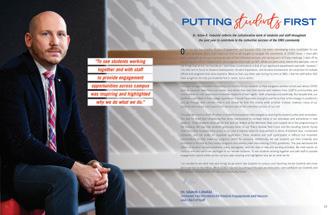
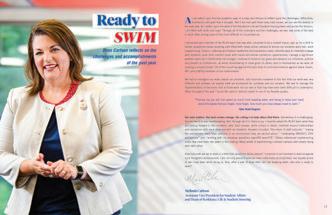
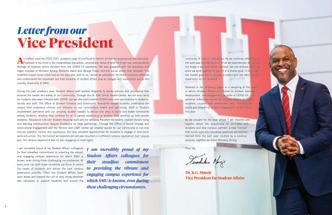
Division of Student Affairs creates and supports a robust student experience and forges strategic partnerships to best serve the entire community. As educators and scholar-practitioners, we create purposeful learning and leadership opportunities for students to and develop their knowledge, values, skills, and identitieschallenging each to become a world changer.

46 / THE WONDERFUL GIFT OF INNOVATION
Reverend Lisa Garvin reflects on leadership transition and opportunities to innovate in the Office of the Chaplain and Religious Life
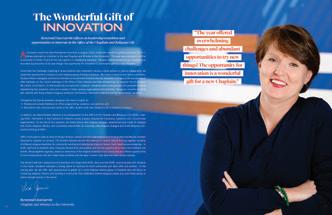
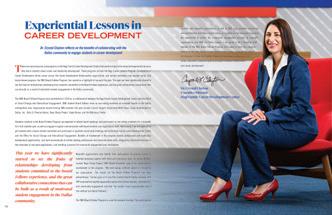
Dr. Crystal Clayton reflects on the benefits of collaborating with the Dallas community to engage students in career development
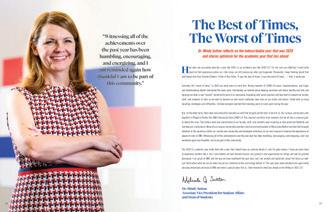
SELECTED FEATURES
6 / PEACE AND JUSTICE IN ACTION
8 / STAYING ENGAGED AROUND THE COUNTRY
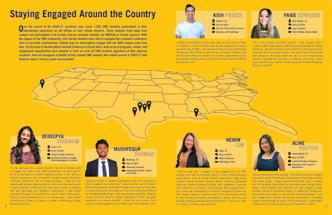
How involvement in Student Affairs initiatives supported fully remote students in a pandemic year
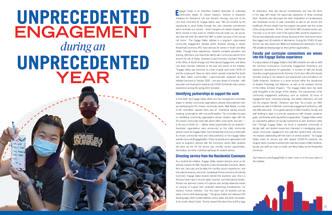
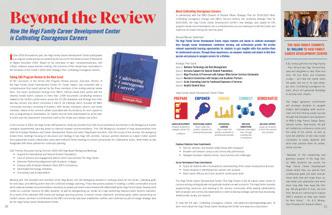
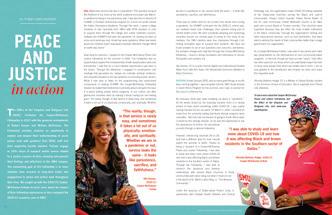
18 / WELCOME TO THE RODEO
Move-in and Stampede amidst a global pandemic
20 / BEYOND THE REVIEW
How a newly launched strategic plan and Hegi family's most recent gift are helping students to Cultivate Courageous Careers
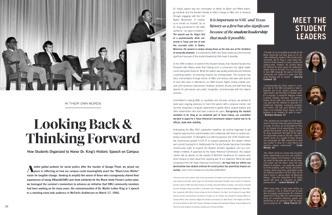
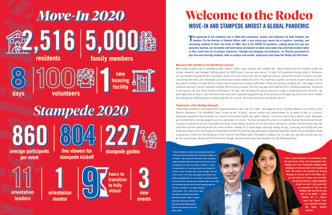
28 / LOOKING BACK AND THINKING FORWARD
How students organized to honor Dr. King's historic speech on campus
30 / UNPRECEDENTED ENGAGEMENT DURING AN UNPRECEDENTED YEAR
The Engage Dallas initiative launches in a time of great need
40 / KEEPING US SAFE
The Dr. Bob Smith Health Center leads the way in stopping the spread of COVID-19 on campus
44 / HOPE ON THE HILLTOP
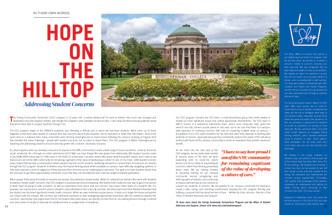
The Caring Community Connection program addresses student concerns within a culture of care
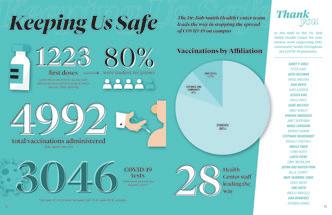
As I reflect upon the 2020-2021 academic year, it is difficult to fathom all that we experienced and overcame. Foremost in my mind is the unparalleled disruption, uncertainty, sense of grief for those lost, and pervasive feelings of isolation which resulted from the COVID-19 pandemic. We also grappled with the senseless and tragic murders of Ahmaud Arbery, Breonna Taylor and George Floyd, and the social unrest that followed. The indelible impact these crises had on the past year, and on us, cannot be overstated. Yet these situations affirmed and underscored the important role that divisions of student affairs play at colleges and universities across the country, especially at SMU.
During the past academic year, Student Affairs staff worked diligently to devise policies and procedures that ensured the health and safety of our community. Through the Dr. Bob Smith Health Center, we not only cared for students who were infected with COVID-19, but we also administered COVID-19 tests and vaccinations to students, faculty and staff. The Office of Student Conduct and Community Standards helped students understand the impact of their individual choices and behavior on our community’s health and well-being. Staff in Student Involvement partnered with our amazing student leaders to devise new ways to build and foster community among students, whether they enrolled for an in-person experience or whether they enrolled as fully-remote students. Residence Life and Student Housing staff and our amazing Resident Assistants created vibrant living and learning communities despite limitations on large gatherings. Through the Office of Social Change and Intercultural Engagement and the Women and LGBT Center we created spaces for our community to not only discuss systemic racism and oppression, but also provided opportunities for students to engage in anti-racist work and action. Yes, the tumult we experienced last year resulted in a different campus experience, but I assure you, the campus experience was no less engaging or meaningful.
I am incredibly proud of my Student Affairs colleagues for their steadfast commitment to providing the vibrant and engaging campus experience for which SMU is known, even during these challenging circumstances. At every turn, our staff made incredible sacrifices to center the needs of students and deliver the best campus experience possible. Often the Student Affairs team went above and beyond the call of duty, doing whatever was necessary to support students and ensure the

I am incredibly proud of my Student Affairs colleagues for their steadfast commitment to providing the vibrant and engaging campus experience for which SMU is known, even during these challenging circumstances.
continuity of campus operations. As we continue reflecting on the past year and taking stock of all we experienced, we should not forget a valuable lesson learned—we can achieve anything when we work together in pursuit of a shared goal. In this case, the shared goal was to provide a meaningful yet safe campus experience for our students.
Detailed in the following pages is a sampling of the ways in which Student Affairs contributed to student learning, development, and engagement, in spite of COVID-19. The personal reflections shared by Student Affairs staff and students, coupled with assessment data, illustrate the depth and breadth of student engagement on the Hilltop this year.
As we prepare for the year ahead, I am inspired and hopeful about the opportunity to co-create with students and dear campus partners, a new “normal” that builds upon the innovative practices and lessons learned from the past year. Unified by a common purpose, together we stand Mustang Strong.
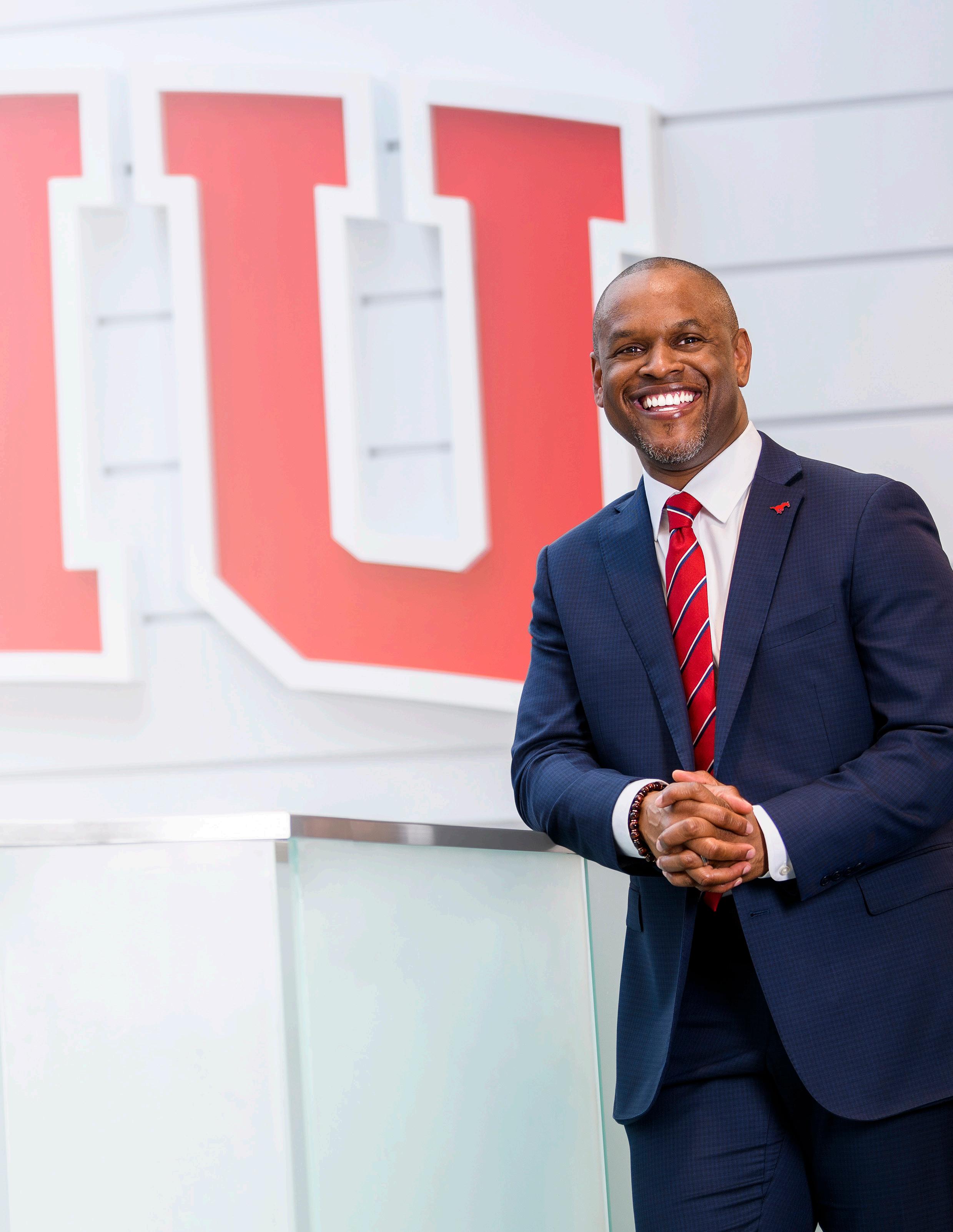
Pony Up,
Dr. K.C. Mmeje Vice President for Student Affairs
TheOffice of the Chaplain and Religious Life (OCRL) instituted the Cooper-McElvaney Fellowship in 2015 with the generous endowments of Robert Cooper and William McElvaney. The Fellowship provides students an opportunity to explore and deepen their understanding of social justice work with guidance from OCRL staff and their respective faculty mentors. Fellows engage in 100+ hours of research and/or service related to a justice concern of their choosing and present their findings and reflections to the SMU campus. The overarching goal of this fellowship is to move students from research to long-term action and engagement in peace and justice work throughout their lives. We caught up with the 2020-21 CooperMcElvaney Fellows to learn more about the impact of their fellowship experiences as they navigated the 2020-21 academic year at SMU.



NIA: What does service look like in a pandemic? This question hung at the forefront of my mind as the world suddenly shut down last March. In addition to being in my sophomore year, I was also the co-director of CHAMP, a Christian mentorship program for a local non-profit named the Dallas Champions Academy. Through this work, I paired college students of color (primarily from SMU) with DFW mentees of color to support them through the college and career readiness process. Halfway into CHAMP’s first year, the pandemic hit, leaving our team at a loss as to what was next. All we had were questions: What new needs would our mentees have? How would volunteer retention change? What on earth was Zoom?
Searching for direction, I applied to the Cooper-McElvaney Peace and Justice Fellowship for the summer of 2020. The Fellowship was an opportunity to explore the fundamentals of faith-based justice work and discipleship. I saw this as a much-needed opportunity to get back to the basics. Through the fellowship, I engaged in conversations and readings that grounded me, helped me cultivate spiritual resilience, and provided answers to the big questions surrounding public service. While it was easy to fixate on the programming and assessment components of leading CHAMP, the Cooper-McElvaney Fellowship helped me realize that mentorship is primarily about caring for the soul. It is about putting people before programs. In our culture, we often glamourize volunteer work by making it about having fun and feeling good. The reality, though, is that service is rarely easy, and sometimes it takes a lot out of us physically, emotionally, and spiritually. Whether
“The reality, though, is that service is rarely easy, and sometimes it takes a lot out of us physically, emotionally, and spiritually. Whether we are in a pandemic or not, service looks the same - it looks like persistence, sacrifice, and faithfulness.”
-Nia Kamau, 2020-21 Cooper-McElvaney Fellow
we are in a pandemic or not, service looks the same — it looks like persistence, sacrifice, and faithfulness.
There was no better time for me to learn this lesson than during a pandemic. As CHAMP continued into the 2020-21 school year, our mentees faced new challenges, from parents losing jobs to mental health crises. We were constantly adapting and reorienting ourselves around our primary goal of caring for the souls of our mentees. Our SMU mentors were true champions through it all, finding innovative ways to support their students. We have not found answers to all of our questions and concerns; sometimes, the answers change each day! But through the Cooper-McElvaney fellowship, I found a strong foundation and philosophy of service that guides and sustains me.
Nia Kamau ’22 is a junior Human Rights and International Studies Major from Little Elm Texas. Her Residential Commons affiliation is Boaz Commons.
RHONDA: It was January 2020, and so many great things in my life were coming together. I was accepted into the SMU Study Abroad in South Africa Program for the summer, and I was so excited for this once in a lifetime trip.

By February, there was news bubbling up about a “pandemic.”
As the weeks ticked by, the bubbling became more of a steady stream of news about something called COVID-19. I was quietly hoping it would not ruin my plans. On March 1, 2020, I received an email from the university stating that Study Abroad programs were cancelled. Not only had my dreams of going to South Africa been crushed by this strange disease, so too was the opportunity to use the experiences to further my educational pursuits through a national fellowship.
However, referencing Jeremiah 29:11-29, God had a different plan for how I would spend the summer of 2020. Thanks to being a recipient of a Cooper-McElvaney Peace and Justice Fellowship, I was able to study and learn more about COVID-19 and how it was affecting Black and Brown residents in the Southern sector of Dallas. Through the Fellowship, I was able to research the pandemic and develop relationships with several Black churches in those communities who were living out what it means to be in the words of Dr. Martin Luther King, Jr, “The Beloved Community.”
Under the auspices of Dallas-based Project Unity, in partnership with Catalyst Health Network and Clinical
Pathology Lab, the organization made COVID-19 testing available at five Dallas-area churches serving the Black and Latin-X communities. Project Unity’s founder, Pastor Richie Butler, of the St. Luke Community United Methodist Church is an SMU grad and current Board of Trustee member. The churches were important because they are often the most trusted institutions in the Black community. Through the organization’s testing and other wrap-around services, such as food distribution, they were able to address the needs of their communities better than a large government run organization.
As a Cooper-McElvaney Fellow, I was able to document and make two presentations on the effectiveness of such community-based programs. In the end, though we have our own “plans,” God often has other plans for us; those which can potentially impact the lives of many more people than which we initially had in mind. I am so very grateful to the benefactors who helped me learn and share this important work.
Rhonda Bellamy Hodge ‘21 is a Master of Liberal Studies student in the Simmons School of Education. She is originally from Phenix City, Alabama.
To learn more about the Cooper-McElvaney Peace and Justice Fellowship and the Office of the Chaplain and Religious Life, visit www.smu. edu/Chaplain.
“I was able to study and learn more about COVID-19 and how it was affecting Black and brown residents in the Southern sector of Dallas.”
Rhonda Bellamy Hodge, 2020-21 Cooper-McElvaney FellowPictured L-R: Nia Kamau and Rhonda Bellamy Hodge
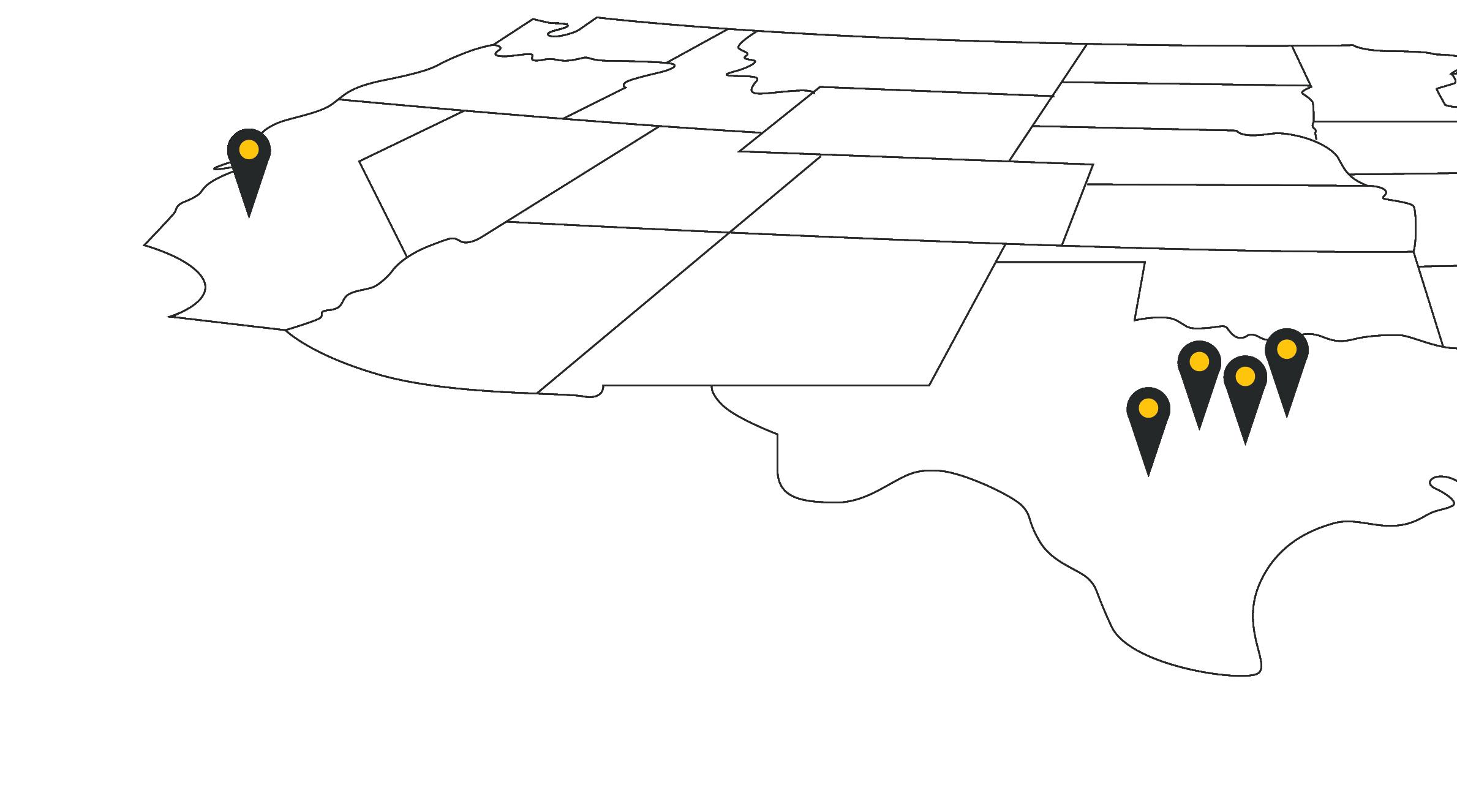
Overthe course of the 2020-21 academic year, some 1,300 SMU students participated in their educational experience on the Hilltop as fully remote students. These students lived away from campus and participated in all of their courses remotely (whether via SMUFlex or Virtual courses). With the support of the SMU community, fully remote students were able to navigate their academic endeavors and co-curricular involvements, finding ways to meaningfully engage with the SMU campus even from afar. The Division of Student Affairs worked tirelessly to ensure that a wide array of programs, events, and engagement opportunities were adapted in order to serve all SMU students regardless of their physical locations. Here we recognize a handful of fully remote SMU students who indeed proved in 2020-21 that distance doesn’t have to mean disconnected.
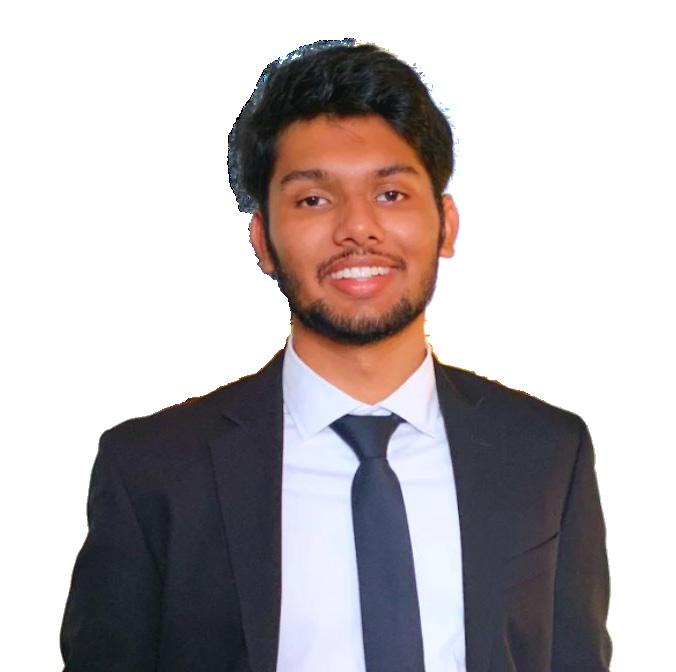
McKinney, TX
Class of 2021
“In the past year, as a remote student, I’ve felt a stronger need to engage and relate to the SMU community. I’ve been able to do so by serving as a Caswell Leadership Coach in the Office of Student Experience and a Research Assistant within Academic Initiatives (Residence Life & Student Housing). I have not only worked with student organizations on campus as they transition to a hybrid operation model but also been able to work on research that was meaningful and impactful. Additionally, I have stayed connected through my involvement in Indian Student Association, Feminist Equality Movement. In the coming year, I look forward to continuing to learn and grow as a leader and Mustang through these experiences.”
Armstrong Commons
International Studies, Health and Society
“Staying involved in student organizations kept me connected to SMU throughout the school year. I served as the chair of Student Senate’s Scholarship Committee through which I led our committee in conducting virtual interviews and financially supporting many of our hardworking Mustangs. I was also virtually involved in Program Council and the Muslim Student Association. From my great experience as a remote student, I know that as an alum, I can continue to stay engaged with my SMU community wherever I am!”
 Virginia-Snider Commons Business Analytics & Supply Chain Management, Statistics
Virginia-Snider Commons Business Analytics & Supply Chain Management, Statistics
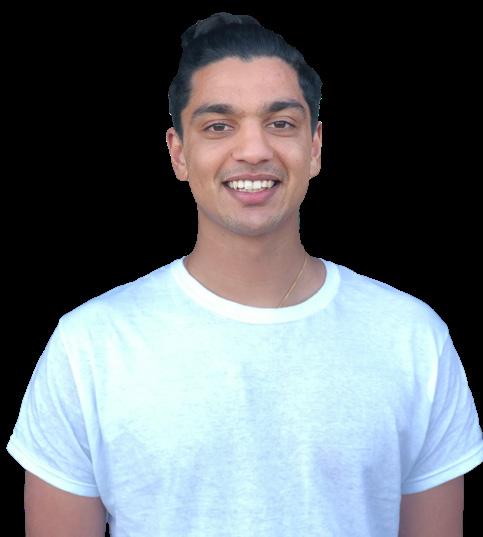
Oakland, CA
Class of 2022
Mary Hay Peyton Shuttles Commons
Business and Psychology
“Despite completing my entire junior year remotely from my home in California, I found multiple ways to stay engaged and have a wonderful year at SMU. I was involved in various clubs, like Mustang Heroes and SMU CHYK, as well as two on-campus research jobs with Student Affairs and ADAPT; all of these organizations did an amazing job hosting virtual events and making me feel involved all the way from CA.”
New Orleans, LA
Class of 2024
Loyd Commons
Film & Media, Human Rights
“As a fully remote First-Year student, I was involved with a couple student organizations like Rotunda & Association of Black Students. I was able to attend online events for both organizations. Even with all of my classes online, I was able to build connections with people in the same major and year as me through group projects. Although this year was not ideal for any of us, I had a good experience as a remote student because of fellow Mustangs, faculty, and staff!”

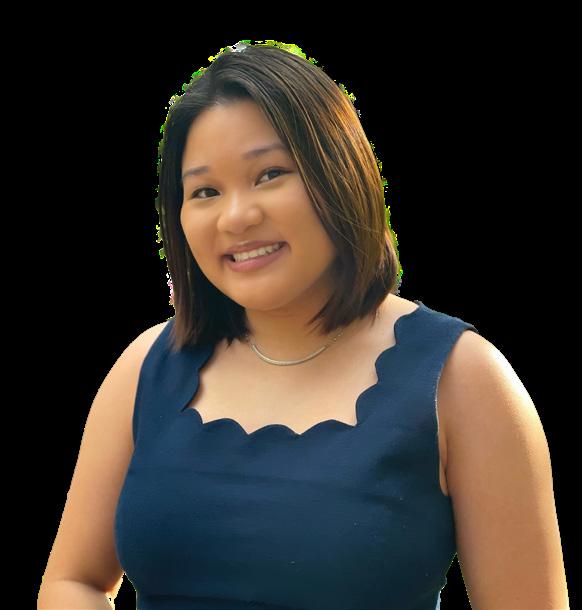
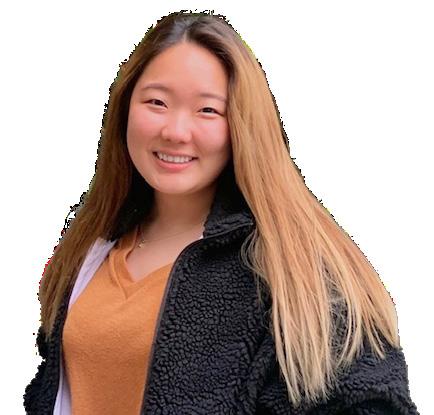
Flower Mound, TX
Class of 2024
Moore Commons
Marketing, French
“Over the past year, I managed to stay engaged with the SMU campus from afar by involving myself in many different student organizations, such as Korean Student Association, Hegi Career Leaders, Hilltop Scholars Advisory Board, Students Expanding American Literacy, Emerging Leaders, and Lead@SMU. I realized how difficult it is to make friends through zoom classes when I can’t have side conversations or natural conversations before and after classes. However, I was fortunate to find close friends outside of class through the student organizations I joined, and I even got to know amazing professors and mentors whom I can rely on when I’m finally on campus next semester!”
Class of 2024
Cockrell-McIntosh Commons
Economics with Financial Applications
“As a remote student this past year, I have been involved in Student Foundation as the Philanthropy Coordinator for the Campus Events Committee, where I helped plan PerunaPalooza 2021. I worked with The Birthday Party Project to fundraise money through profitshares, Venmo Bingo, and donations for their mission to plan birthday parties for homeless children in Dallas and filming over 50 birthday wish videos for the children at PerunaPalooza. I also stay engaged with campus through my involvement in Emerging Leaders and Mustangs for Hope. In the coming year, I look forward to being back on campus serving as an Orientation Leader!”
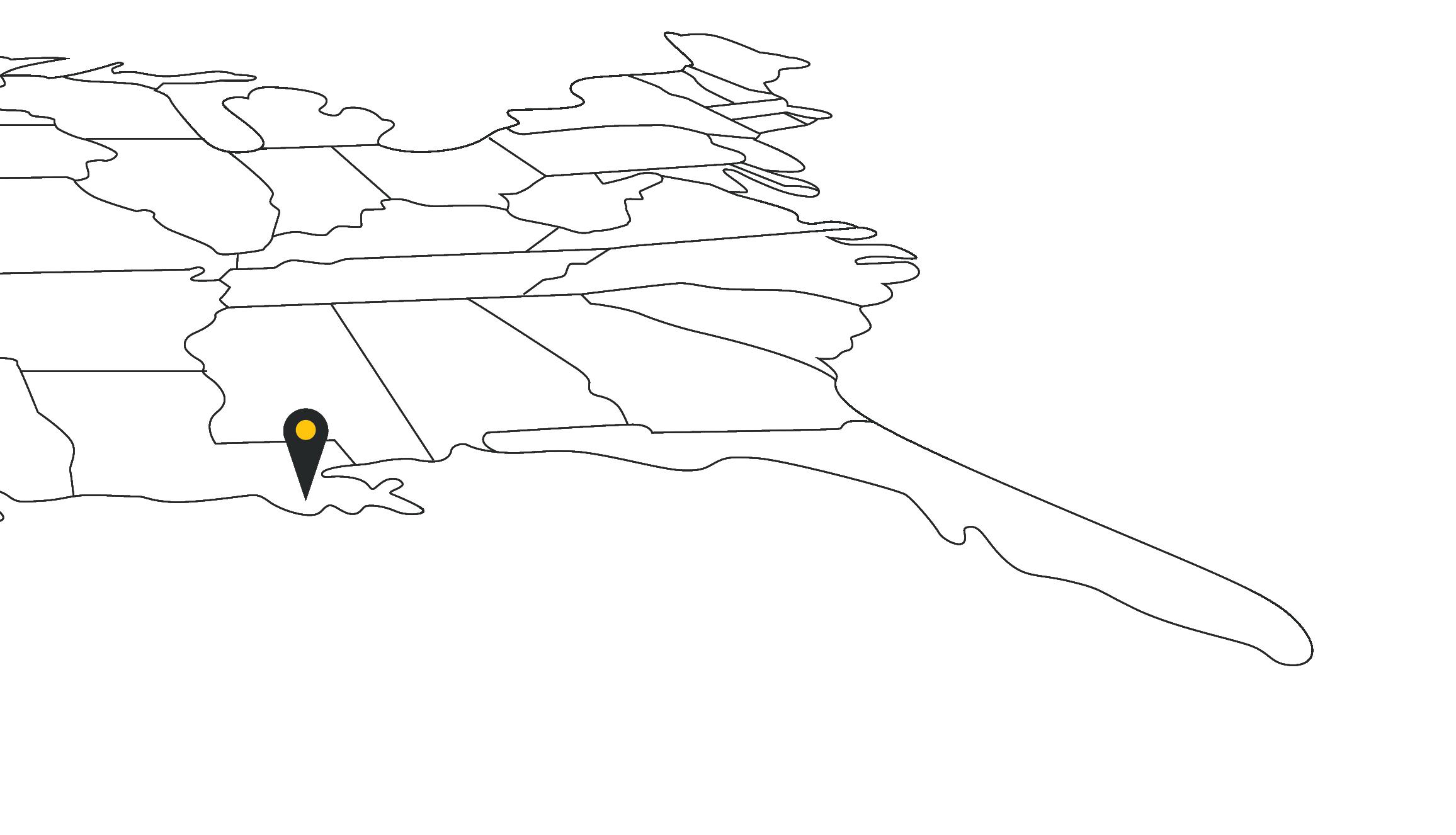
After Nationals were cancelled in 2020 due to the pandemic, the SMU Cheer, Pom, human mascot, and two members of the Mustang Band were excited to compete for yet another national title on April 6-10 in Daytona Beach, Florida. SMU has previously won a total of six national titles with Pom winning the Open Division in 2006, 2008, and 2009. Under the direction of current SMU Cheer coach Tiffany Fettinger, the cheer team won the Intermediate Small Coed Division in 2016, 2017, and 2018, but placed second by .09 in 2019. While a chance at redemption never came in 2020, the team was determined to come back stronger than ever in 2021.
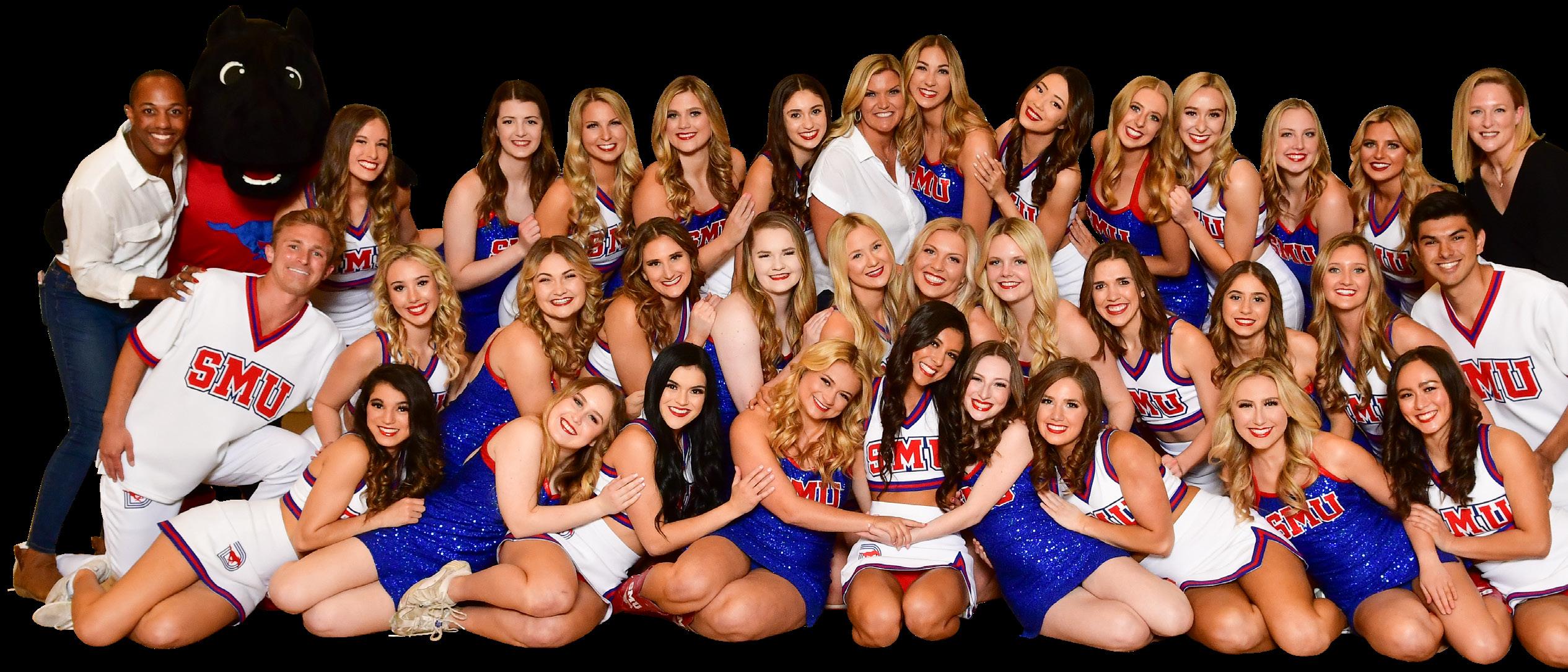
On the team’s national championship, Fettinger said, “The journey to nationals was extra challenging this year with COVID. We were given permission to go just a month before attending. We began rigorous practices in January consisting of 6ams, practicing until 10pm, and most weekends. The athletes pushed through blood, sweat, and tears to reach their full potential, despite the added stress of COVID quarantines, isolations, and precautions. The week of Nationals, we had three team members go into isolation due to COVID. Through it all, the team stayed unified, made replacements and last-minute changes, and worked together to make it happen."
After our first day of competition, we were in second place, so we made some improvements and came out swinging the next day to fight our way to victory.
“After these student athletes missed out on so much, I am so grateful SMU believed in us, gave us this opportunity, and the team trusted the process so we could bring the title home to the best university in the world.”
- Tiffany Fettinger, SMU Spirit Coach
After these student athletes missed out on so much, I am so grateful SMU believed in us, gave us this opportunity, and the team trusted the process so we could bring the title home to the best university in the world. It means so much to the graduating seniors of the 2021 class, but also for the 2020 seniors who never got to finish their fight back to the top.”
Despite the challenges brought on because of the pandemic, SMU’s Cheer and Pom teams proved that there was still a path to victory, even if it came a bit later than expected.
The Division of Student Affairs extends congratulations to the 2021 Cheer and Pom teams on their National Championship success.
To learn more about SMU spirit programs, including Pom, Cheer, Band, and Peruna, visit www.smu.edu/ studentaffairs/campusrecreation.
During the 2020-21 academic year, the Student Affairs Administration team proudly launched two new divisional reporting and storytelling initiatives: the Quarterly Update and the Newsstand. In addition to this annual Impact publication, these two additional reporting mediums aim to provide students, staff/faculty, alumni, and the community with regular recaps of signficant events and initiatives occurring around the Division.
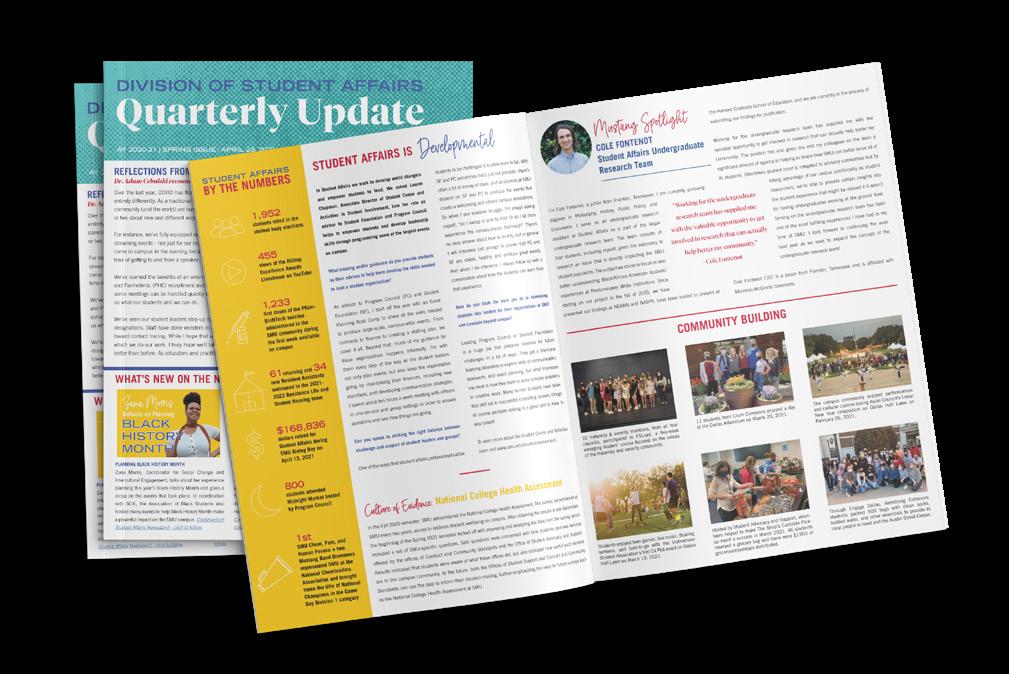
Published quarterly in sequence with SMU’s Board of Trustee meetings, the Quarterly Update is an electronic format newsletter featuring recent events, student leader profiles, utilization data, assessment and research insights, and more.
The Newsstand is Student Affairs’ blog site, featuring student spotlights, recaps of signature events and major initiatives, and general SMU happenings.
We invite you to visit the Newsstand and peruse our recent Quarterly Updates at www.smu.edu/sanews.
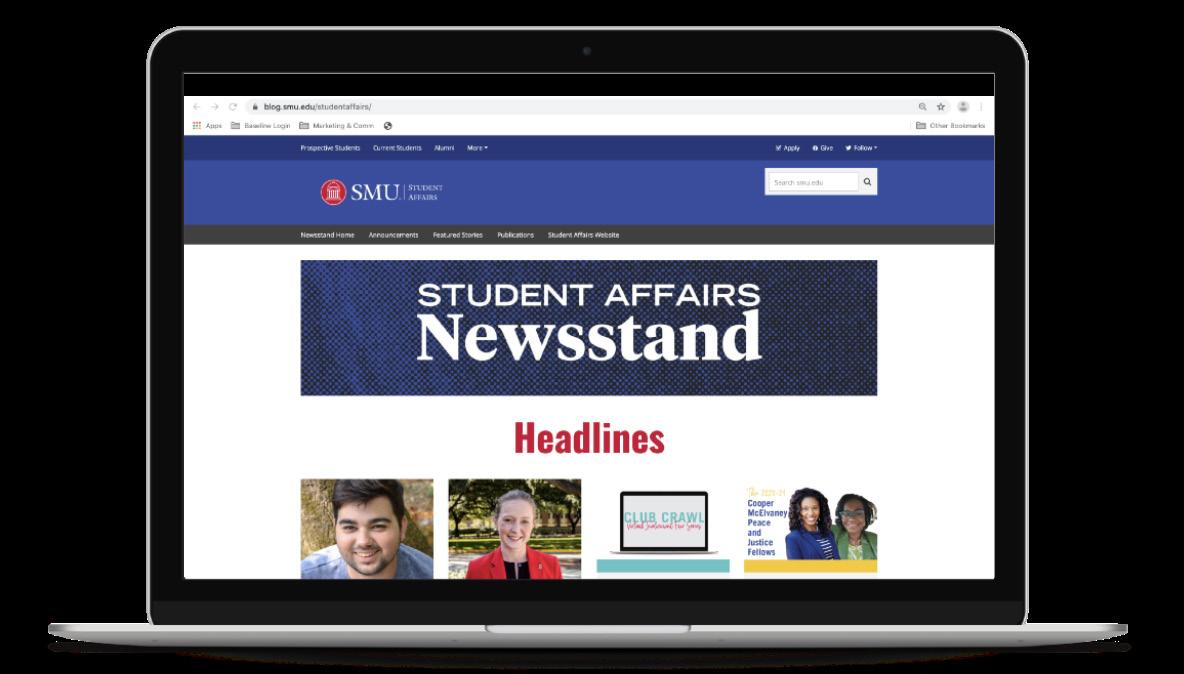
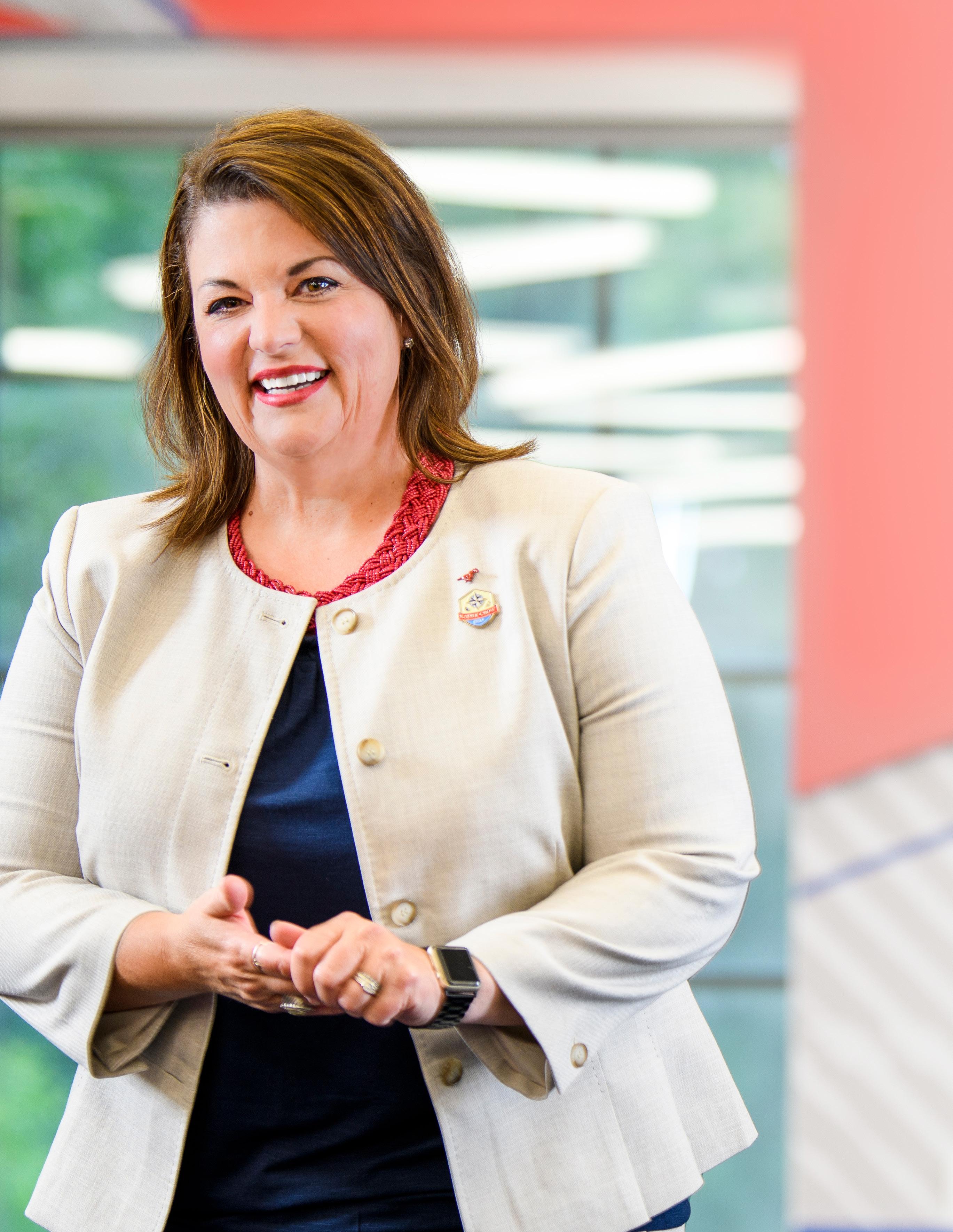
As we reflect upon the last academic year, it is easy and obvious to reflect upon the challenges, difficulties, frustrations and grief that it brought. But if we look past those (very real) issues, we can see the beauty in the past year. As I reflect upon the work of the Residence Life and Student Housing team and across the division, I am filled with pride and hope. Through all of the unknowns and the challenges, we also saw some of the best in each other among some of the most difficult of circumstances.
I witnessed each member of the RLSH team that was able, volunteer to be a contact tracer, sign up for a shift to deliver quarantine meals (pushing carts filled with meals across campus to ensure our students were fed), pivot programming, move-in, advising and student leadership and supervision plans, identify ways to creatively engage with students, push their comfort zones with media and virtual connection opportunities, manage a significant weather event (as if COVID were not enough), continue to build on our goals and advance our initiatives, publish and present at conferences, all while remembering to show grace to others (and to themselves) as we were all carrying a unique burden. All of this occurring against the back drop of continued violence against black, brown, API, and LGBTQ members of our communities.
We had to reimagine our work, adjust our priorities, and reconcile ourselves to the fact that our work was very different and perhaps not exactly what we envisioned for ourselves and our vocation. We had to manage the implementation of decisions that at times were not our own or that may have even been difficult to understand. Often throughout the year I found the need to remind myself of one of my favorite quotes,
“Promise me you will not spend so much time treading water and trying to keep your head above the waves that you forget, truly forget, how much you have always loved to swim.”
-Tyler Knott GregsonOur work matters. Our work creates change. Our calling is to help others find theirs. Sometimes it is challenging. Sometimes it is even heartbreaking. But, through all of it, there is joy. I recently asked the RLSH team what they are looking forward to this academic year. Each answer, while unique in detail, centered around relationships and connection with each other and with our students. Answers included, “the return of staff potlucks,” “seeing the sophomores reach their potential in an environment they are excited about,” “celebrating SMUSH’s 25th anniversary,” and “working with my amazing operations team/RA team/FiR.” Others referenced implementing plans that have been two years in the making. Many spoke of experiencing a vibrant campus and simply being with each other.
How fortunate are we to work in a field that values the whole person? I continue to be humbled to work alongside such thoughtful professionals. I am not only proud of what we have collectively accomplished, but equally proud of who have been while doing so. And, after a year of what often felt like treading water, who else is ready to swim?

 Melinda Carlson Assistant Vice President for Student Affairs and Dean of Residence Life & Student Housing
Melinda Carlson Assistant Vice President for Student Affairs and Dean of Residence Life & Student Housing
Many universities across the country made the difficult decision to forgo producing a yearbook this academic year due to COVID-19 complications. However, students on the Rotunda decided to venture into unknown territory and tackle virtual learning and virtual journalism. Restrictions forced creative and intentional coverage, which evolved into a publication unlike any seen before in college media.
Simone Melvin, a sophomore who served as the Copy Editor for the Rotunda, had this to say about producing the Rotunda in a year of unique challenges brought forth by COVID, “Producing the Rotunda requires a tremendous amount of dedication and communication every year, but this year COVID-19 really stretched us to make what initially seemed impossible, possible. It is hard enough to be a student living the reality of learning during a pandemic, but the added pressure to accurately document this experience for generations to come has magnified how much work it takes to capture an entire year in only 304 pages. The most poignant part of this experience was seeing how COVID-19 affected all SMU students, from performance majors in Meadows, to biology and chemistry students in Dedman who never set foot in a lab, to athletes who came to school on a scholarship and had a canceled season. Compiling these disappointing stories from students on campus has been humbling, but also has made me feel less alone in my own reflection of such an unforgettable year.”
Ash Thye, a sophomore Photo Editor for the Rotunda team, further reiterated the challenges of capturing the years events in a nontraditional fashion, “Producing a visually beautiful book while reporting thought-provoking, journalistic work was challenging to balance at times. This edition covered topics that required a careful curation of visuals to document the year’s story with respect and dignity. At high-profile student events, such as the protests for racial justice, we would have honest check-ins with the other staff mem covering the same emotionally charged events. Later, we would have group critiques; usually, a couple of months down the road, to reflect on the photos and find how they fit into the larger context of the year. So it was iterative, and events changed and evolved over time, which made it difficult to understand everything as it was happening because we were trying to survive the year ourselves.
While Rotunda’s production may have looked a bit different this year, it was through determination, grit, and countless hours of hard work that made this Rotunda particularly special. Jessie King, Rotunda coordinator, said that she is “so proud of our small yet mighty staff for pulling it off.”
To learn more about the Rotunda Yearbook, visit www.smu.edu/rotunda.

Producing the Rotunda Yearbook

It is hard enough to be a student living the reality of learning during a pandemic, but the added pressure to accurately document this experience for generations to come has magnified how much work it takes to capture an entire year in only 304 pages.
Creative graphic design has become an increasingly important part of engaging students in Student Affairs events and initiatives. For this reason Student Affairs Marketing was born in 2017 with the appointment of one full-time staff member supporting divisional marketing efforts. As demand for graphic design support has continued to grow over the last four years, Student Affairs Marketing (now situated as a critical central service within the Student Affairs Administration department) has proudly employed students pursuing a future in the creative industry to help execute creative and design needs across the Division. Zainab Noshahi, a recent graduate from SMU who worked as a student designer in Student Affairs for over one year recently reflected on her time on the Student Affairs Marketing Team.
“As an advertising major, I was looking for more ways to apply and practice my graphic design skills on campus, and was excited about the opportunity to work on projects that would directly impact Student Affairs departments and student organizations. The best part about this process was working with a diverse range of students and staff to execute design projects and seeing those ideas and projects come to life. Not only do I feel like I became a better designer and creative thinker through this job, but I had the creative freedom to exercise and learn new design skills on the projects I worked on. As a graphic designer still learning and preparing for my full-time career, I felt like my voice was heard and ideas were implemented on major projects, such as illustrating designs used in banners and t-shirts for SMU’s 100th Homecoming. I had taken classes and workshops on the Adobe Suite and graphic design skills, but working here helped me further build on my skills and apply them to realworld projects. I got to understand the creative process from start to finish, learned how to navigate communicating with clients and executing the client’s vision, and was challenged to step out of my comfort zone, which I wouldn’t have experienced in a classroom setting.
Being a graphic designer for Student Affairs was one of the best choices I made during my college career and has helped me realize that design is my passion. Through this role, I realized that being on the creative side of marketing was what I wanted to pursue post-graduation, and the projects I got to produce while working in Student Affairs helped me in interviewing and preparing for my career in the creative industry. Not only was I working on projects that I could display in my portfolio and that I was proud to say I had worked on, I also had the opportunity to give feedback and design advice to people who were new to this area of marketing.”
During her time at SMU, Zainab was also involved in Students for Justice in Palestine, the Human Rights Council and the Indian Student Association; she served as the marketing and graphic design chair for all three of these organizations.
To learn more about Student Affairs Marketing, visit www. smu.edu/samarketing.

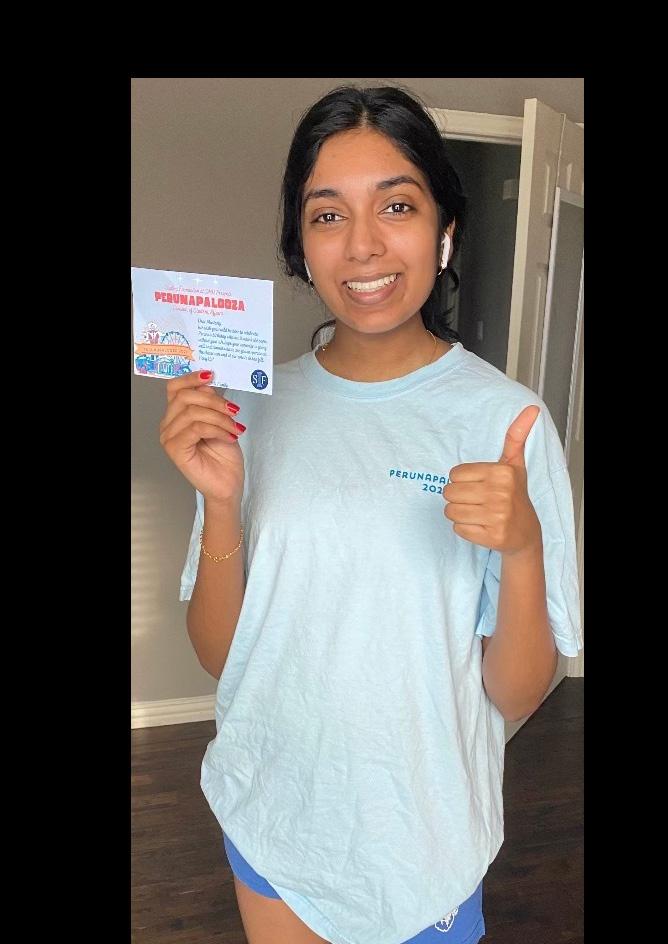
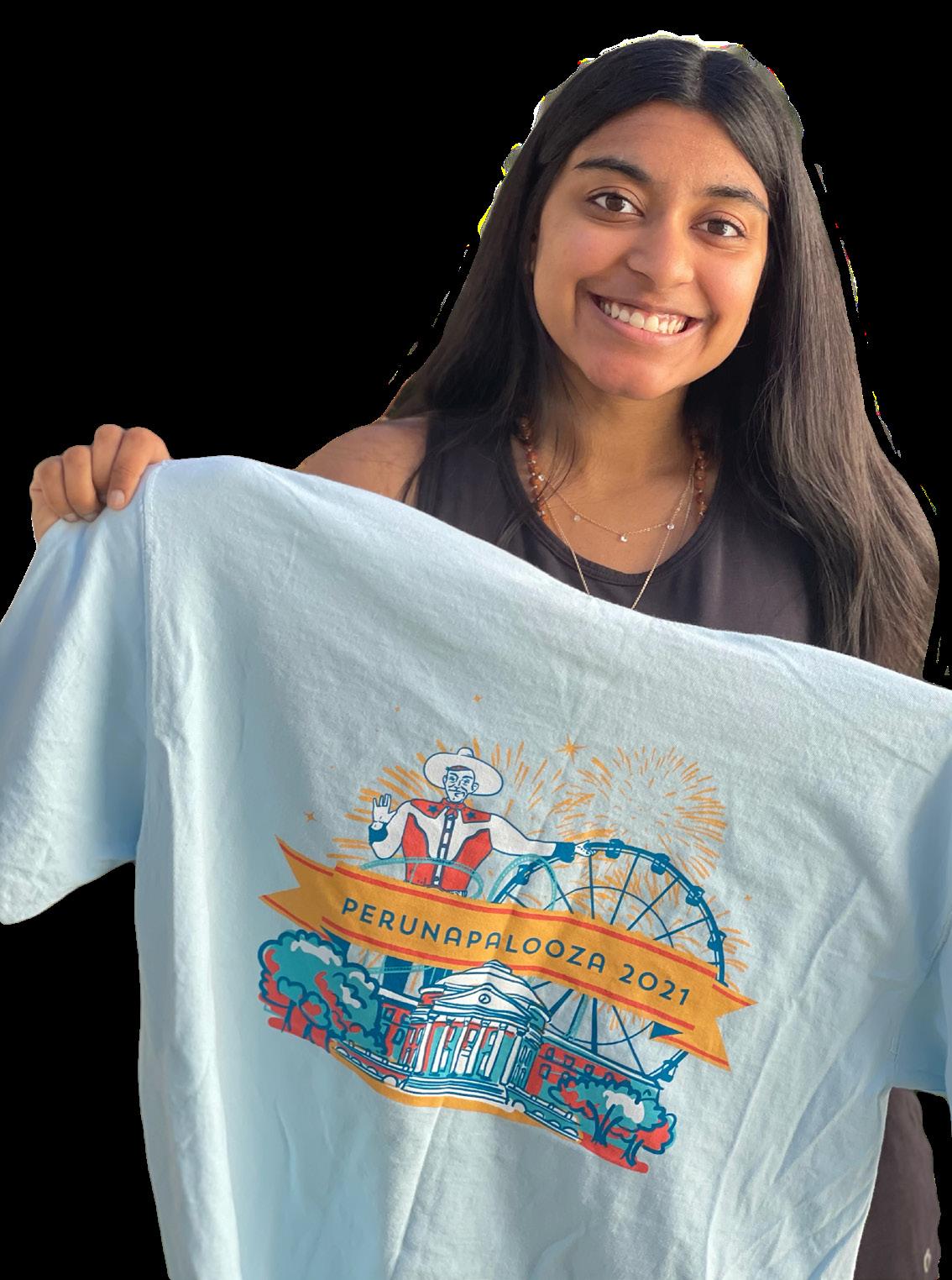
This year, Student Foundation wanted to make sure that remote students could participate in traditional campus events as much as possible. For some events, that meant watching a livestream – while you can’t compete with the charm of a live Christmas tree-lighting, watching it online is the next best thing. For other programs, providing a livestream doesn’t make much sense. An online experience just wouldn’t allow you to ride the rides, play the games, and enjoy the smells and tastes of carnival treats at PerunaPalooza. The next best thing was to send a souvenir t-shirt to every remote student – a tangible way to remind those students that we miss them, and that we can’t wait to see them next year.
Campus Events Chair Ben Jaksick brought this big idea to Dr. Adam Cebulski, not sure if such a large financial ask could be supported by Student Affairs alone. With over 1,000 remote students, it was a lot of t-shirts. However, Dr. Cebulski provided support from Student Engagement and Success, and enlisted more resources from the Office of the Student Experience, Enrollment Management, Student Academic Engagement and Success, and Marketing and Communications. Thanks to this team effort, Student Foundation was able to send a party favor to everyone who couldn’t attend Peruna’s birthday celebration in person.
Visit
I was quite surprised and pleased to receive the Perunapalooza t-shirt from you in the mail. As you probably imagine, as a remote student this year I miss being on campus. I'm glad to say that I'll be back next year as a graduate student and expect to be in-person as well! Thank you again for your kind gesture.
- Robert Hillsley (student)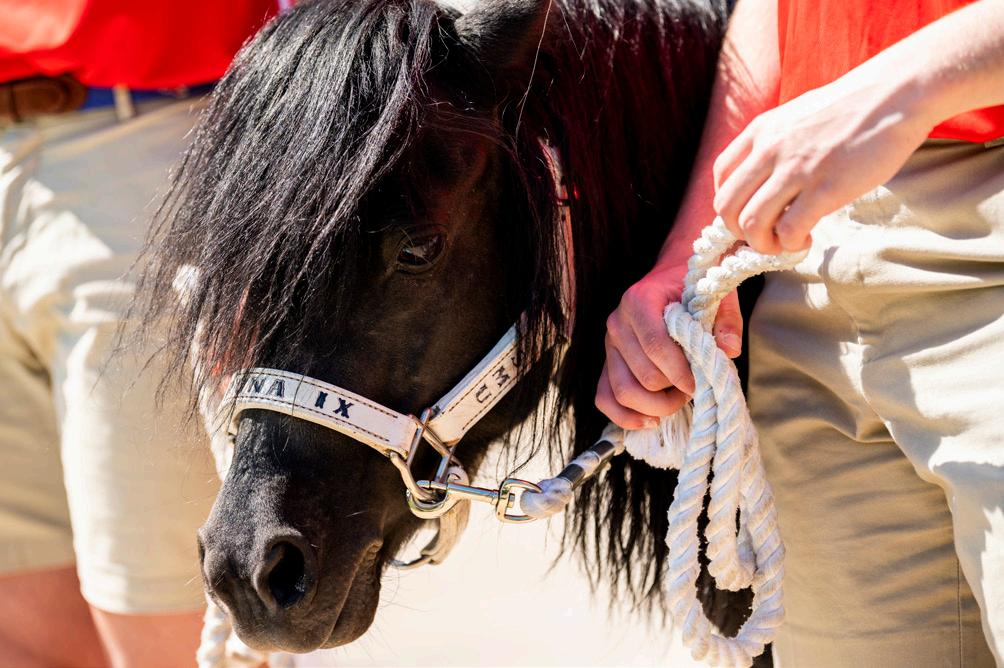
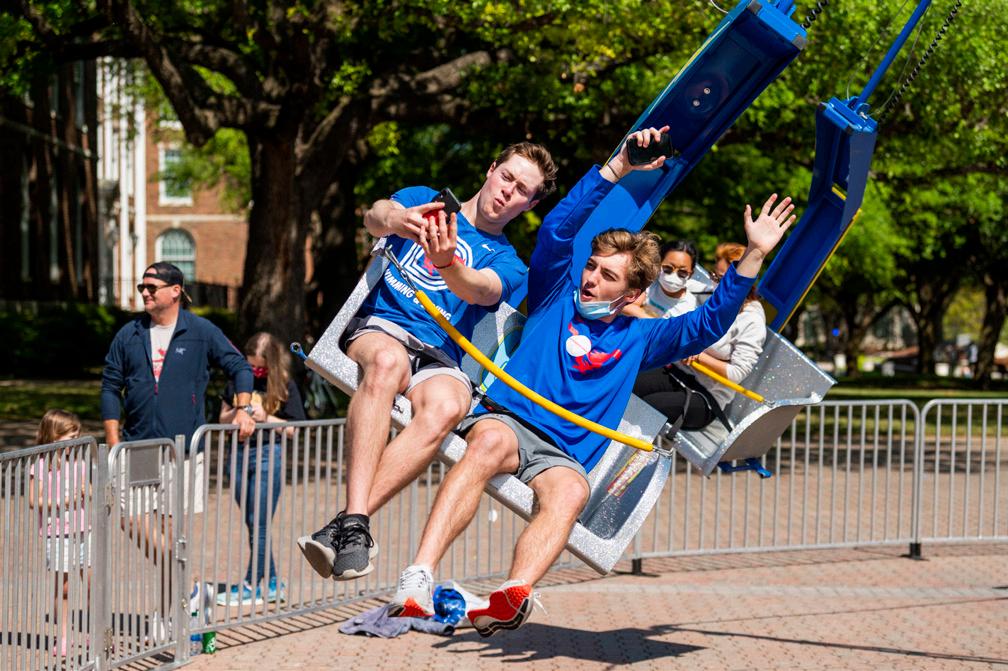



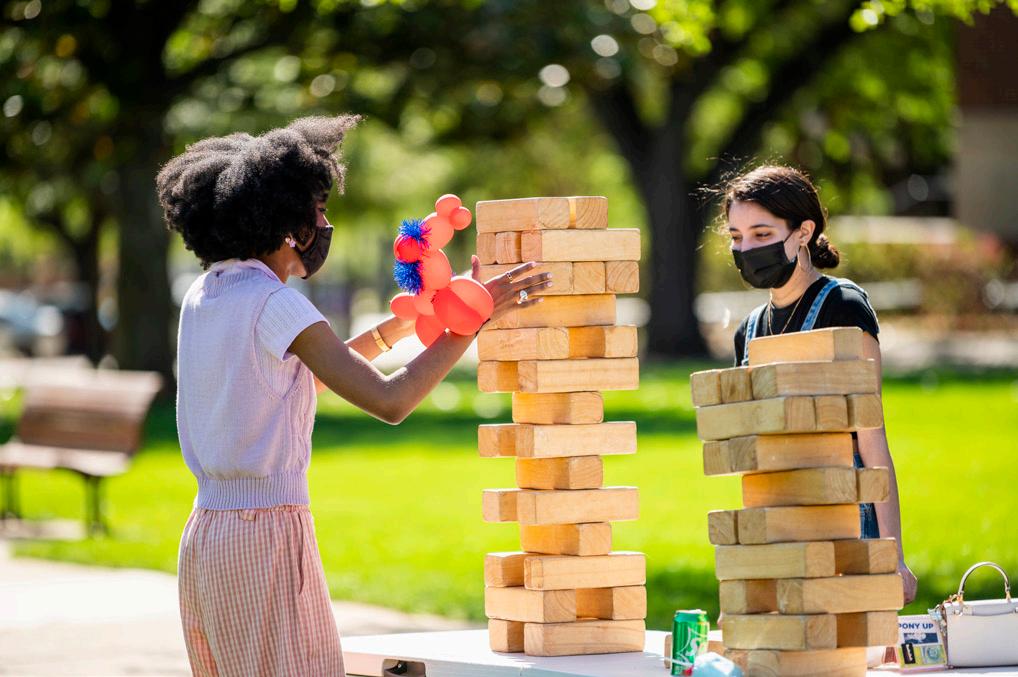
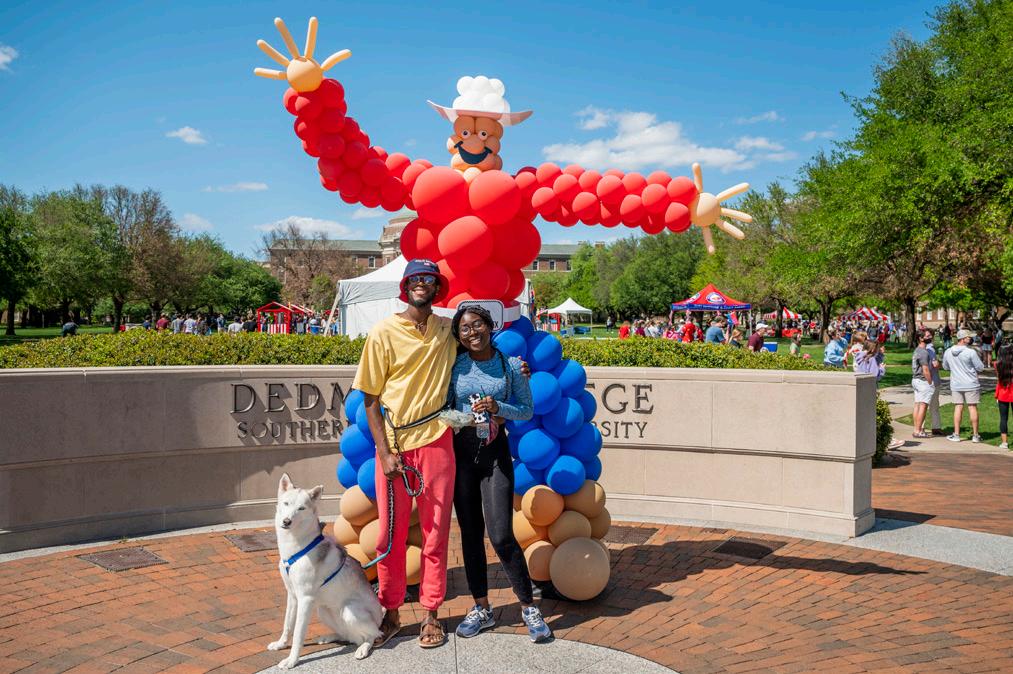
Thebeginning of any academic year is filled with excitement, anxiety, and unknowns for both students and families! For the Division of Student Affairs staff, a new school year means lots of logistics, meetings, and welcoming students to their new home at SMU. Due to the COVID-19 pandemic, nothing about last year was expected; however, our incredible staff went above and beyond to make quick plans that prioritized student safety so they could have an on-campus experience. Through ever-changing circumstances, our Division persevered to give new and returning students, both on-campus and remote, experiences that made the Hilltop feel like home.
New student move-in day is normally a joyful, chaotic, hectic, busy, exciting, and crowded day. New students and their families crowd into lobbies, elevators, and hallways. Nothing about the 2020 move in process was normal. To meet CDC guidelines during move-in, Residence Life and Student Housing (RLSH) revamped a three-and-a-half-day process into an eight-day process, limited the number of helpers a student could bring with them, and distributed customized face masks instead of t-shirts. The result was a calmer, less hectic move-in process, but no less joyful or exciting. Families felt less rushed, had an easier time moving in with fewer crowds and access to multiple bins. The longer move-in schedule required a shorter Resident Assistant (RA) training schedule, and the long days were difficult from a staffing perspective. Reflecting on the process, Dr. Jenn Post, Director of Residence Life said, “We are taking the lessons learned to create a middle ground for Fall 2021, not quite eight days of move in, but more than three and a half, hopefully keeping the less hectic process while regaining some of the much-needed RA training time. While everyone is ready to get back to ‘normal,’ we’ll take the lessons we learned with us.”
“Welcoming students to the Hilltop amid a global pandemic was a bit of a rodeo,” said Meghan Perez, Assistant Director of the Office of the Student Experience. The Orientation Team, known as the “O-Team,” worked quickly and collaboratively for six weeks to plan an in-person Stampede experience that prioritized our campus community’s health and safety. However, nine hours before the program’s start, Stampede was transitioned to a virtual program out of an abundance of caution. The team jumped into action to completely revamp the Stampede Kickoff ceremony, making it a fun and informative clip show. These selfless students did not even take a moment to consider how the events they had spent their summer planning would not come to fruition. Instead, the O-Team began planning, writing, filming, producing, and editing skits that would later make up the live broadcast of Stampede Kickoff! The next few days were spent supporting Stampede Guides as they facilitated virtual small groups to welcome new Mustangs to their home on the Hilltop safely. Orientation is always a bit of a wild ride, and last summer was one for the record books. At the end of all the events, though, we welcomed many new members into the Mustang family!
“During Stampede, I had an eye-opening conversation with my first-year residents about attending college in a pandemic. They expressed frustrations with not getting some traditional SMU experiences and concerns about not being able to meet new friends. Similarly, I shared the perspective of a returning student who already had friends in other Commons that I could no longer visit. We came up with a few ideas like going to the Dedman Rec Center or getting food on- or off-campus. Everyone wanted to stay safe while experiencing everything SMU has to offer, and remembering that shared desire helped ground me for future encounters I had with residents.”
- Wade Glover, ‘23, is from Frisco, Texas and affilated with Mary Hay Peyton Shuttles Commons. Wade is double majoring in Business Anaytics and Supply Chain Management & Corporate Communication and Public Affairs.
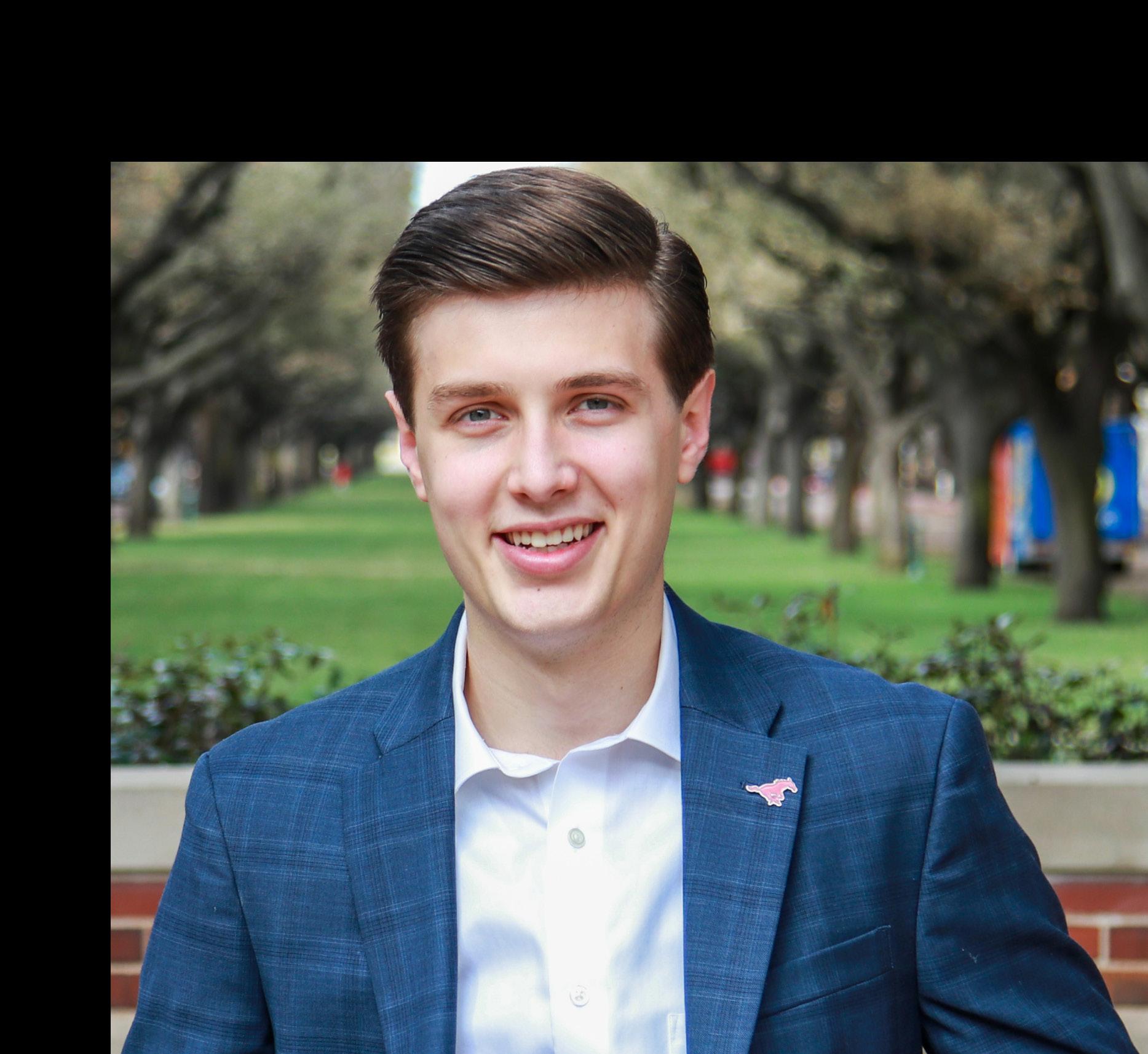
“I had a unique experience as an Orientation leader this past summer during such unprecedented times. Although there were undoubtedly pandemic-related challenges, my team was able to work together and bond. We created a new experience for incoming Mustangs to welcome them to the Hilltop, and I was able to grow as a leader, learn new skills, and meet new students. I cannot emphasize enough how much I truly appreciated the opportunity to show our new Mustangs what their life will look like on the Hilltop.”
- Brinda Bobbala, ‘23, is a Finance major from Coppell, Texas and is affiliated with Mary Hay Peyton Shuttles Commons.
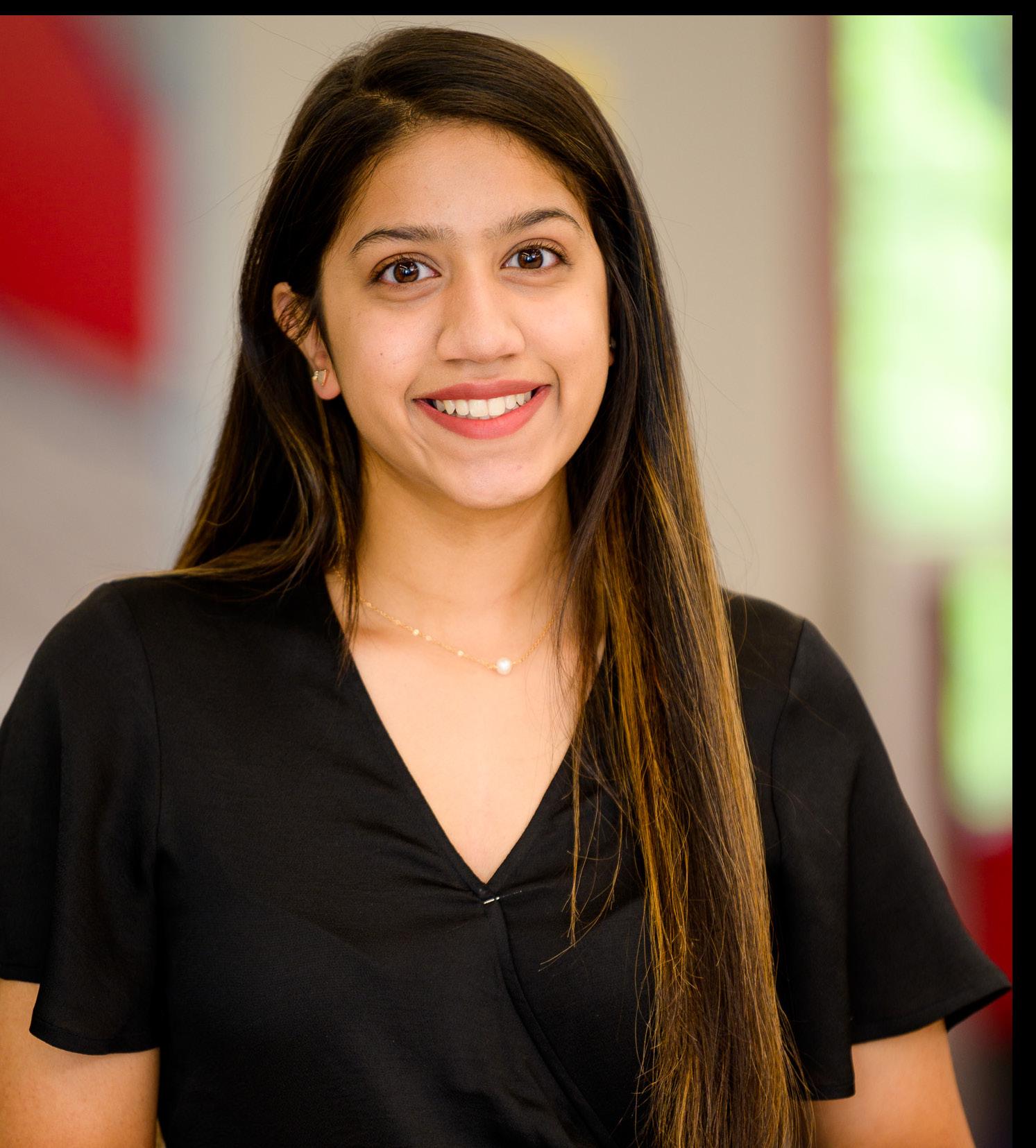
In the 2019-20 academic year, the Hegi Family Career Development Center participated in a program review process as outlined by the Council for the Advancement of Standards in Higher Education (CAS). Based on the principles of rigor, comprehensiveness, and critical, evidence based decision-making, the outcomes of this review have culminated in the formation of the Center’s 2020-2025 Strategic Plan: Cultivating Courageous Careers.
At the conclusion of the formal CAS Program Review process, Executive Director of the Hegi Family Career Development Center, Dr. Cystal Clayton, was presented with a comprehensive final report penned by the three members of the visiting external review team. The report synthesized findings from SMU’s internal review team paired with the external review team’s analysis of more than 2,000 documents constituting evidence related to the Center’s performance across the 12 CAS standards and findings from their two-day campus visit which comprised a total of 18 meetings which included 65 SMU community members consisting of students, staff, faculty, employers, alumni, and board members. Aware of the common pitfalls associated with the tendency for such reports to end up languishing on bookshelves, Dr. Clayton and her team spearheaded an action plan to build upon the assessment momentum built by the review and catalyze real action.
In the summer of 2020, the Hegi Center staff worked to clarify top priorities from CAS recommendations and formed a CAS Workgroup to further strategize departmental planning based on external reviewer recommendations. This CAS Workgroup consisted of Hegi representatives from both the Employer Relations and Career Development Teams and select Hegi Board members. Over the course of the summer, the workgroup hosted three meetings focusing on discussion and strategy of key Hegi CAS priorities. Campus partners deemed as subject matter experts from appropriate priority collaboration areas were invited to these meetings to present perspectives for collaborative action, while follow up was designated with these partners for continued planning.
CAS Themes Discussed during Summer 2020 CAS Hegi Board Workgroup Meetings:

• Support for International and Special Student Populations
• Lack of outcome and engagement data to inform and promote The Hegi Center
• Extensive Partnerships/Alignment with Academic Colleges
• Campus-wide Employer Relations Team (ERT) Consistency
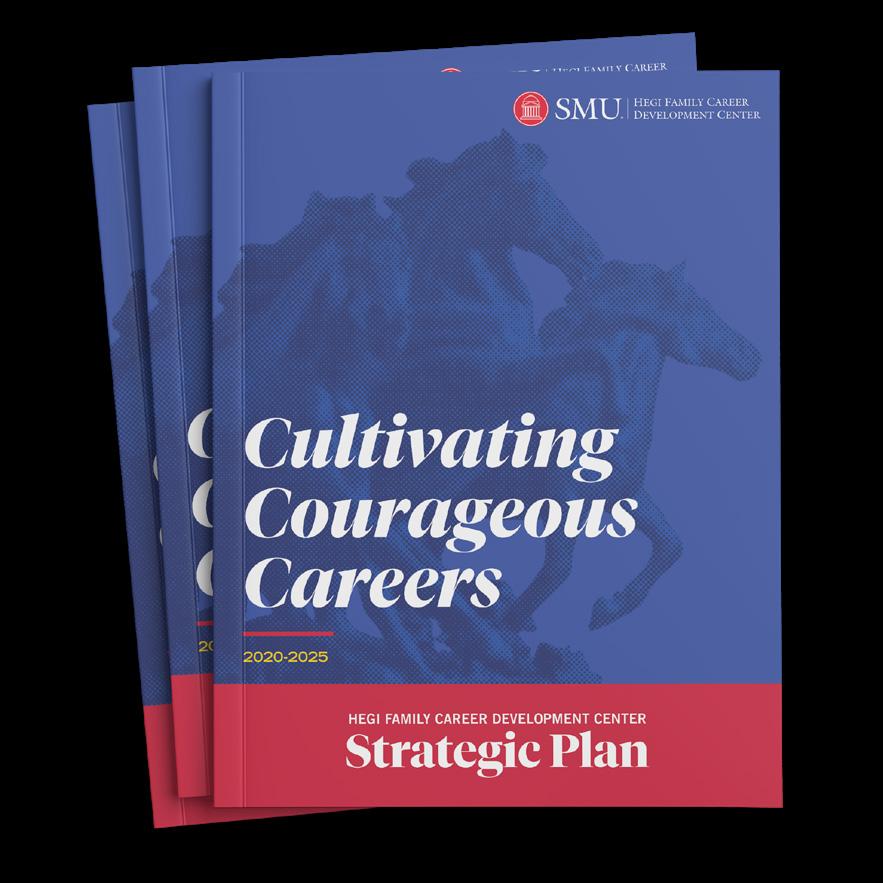
• Handshake/Technology Utilization
• Counseling Load & Expectations
Working with CAS reviewers and members of the Hegi Board, the CAS Workgroup assisted in clarifying needs for the Center, cultivating goals for next steps, and defining action items for continued strategic planning. These discussions assisted in building a unified conversation around which external reviewer recommendations should be accepted and how to move forward with differentiating the Hegi Family Career Development Center as a premier resource for SMU students, as well as distinguishing our Center as a high performing national career services operation. As a result of this extended CAS review and strategic planning process, a revised mission statement, prioritized goals, pillars representing our Center’s values, and team commitments to the SMU community have been established, verified, and confirmed as part of a larger strategic plan for the Hegi Family Career Development Center.
In partnership with the SMU Division of Student Affairs Strategic Plan for 2018-2023 titled, Cultivating Courageous Change, and SMU’s Second Century, the University Strategic Plan for 2016-2025, the Hegi Family Career Development Center’s new strategic plan adapts its CAS program review recommendations into a comprehensive success roadmap to build the Center and maximize its impact during the next five years.
Revised Mission Statement
The Hegi Family Career Development Center equips students and alumni to cultivate meaningful lives through career development, continuous learning, and professional growth. We provide relevant experiential learning opportunities for students to gain tangible skills that position them for professional success. Through these experiences, we empower students and alumni to find their passion and purpose to navigate careers for a lifetime.
Goal 1: Optimize Technology and Data Management
Goal 2: Increase Support for Special Student Populations
Goal 3: Align Practices & Processes with Campus-Wide Career Services Community
Goal 4: Maximize Connections with Campus and Academic Partners
Goal 5: Scale Counseling Load for Continued Expansion of Services
Goal 6: Amplify Student Voice
Hegi Family Career Development Center Pillars
CAREER DEVELOPMENT
Prepare students to navigate careers for a lifetime
PROFESSIONAL GROWTH
Teach skills that position students for professional success
Employer Relations Team Commitments

EXPERIENTIAL LEARNING
Teach skills that position students for professional success
EMPLOYER CONNECTIONS

Cultivate meaningful lives through professional connections
• Recruit, develop, and expand relationships with employers


• Broaden and deepen campus and community partnerships
• Navigate employer relations trends, best practices and challenges
Career Development Team Commitments
THE HEGI FAMILY COMMITS $1 MILLION TO HEGI FAMILY CAREER DEVELOPMENT CENTER
A $1 million gift from the Hegi Family – Fred ’66 and Jan Hegi ’66 and their sons and daughters-in-law, Peter and Amy ’96 and Brian and Elisabeth (Libby) – will help the center reach the goals laid out in its new strategic plan, Cultivating Courageous Careers, which will galvanize Mustangs to achieve their dreams.
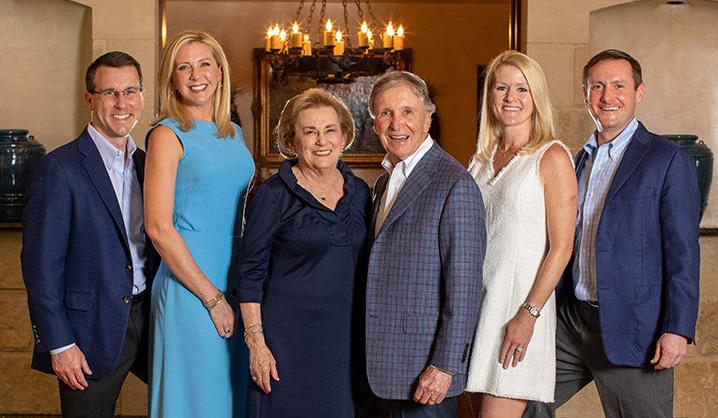
INCLUSIVE SUPPORT


Equip all students to find their passion and purpose
The Hegis’ generous commitment will empower students to navigate today’s fast-changing work environment and find lifelong career success through the renovation and expansion of SMU’s Hegi Family Career Development Center. Specifically, the gift will modernize conference rooms and the lobby of the center, as well as fund the addition of two new career counselors to equip students with skills that position them for professional success.
• Equip all students with a foundational understanding of the career development process
• Guide students in identifying their passion and purpose
• Build career efficacy and hone students’ professional skills
The Hegi Family Career Development Center (The Hegi Center) is the all majors career center on campus serving undergraduate and graduate students as well as alumni. The Hegi Center provides programming, resources, and advising to the campus community, while leading collaborations with employers and community stakeholders in order to develop strategic partnerships divisionally, institutionally, locally, and beyond.
To view the full plan, Cultivating Courageous Careers, visit www.smu.edu/hegistrategicplan. To learn more about the Hegi Family Career Development Center visit www.smu.edu/careers.
“Because of the unwavering and generous support of the Hegi family, SMU students can access the Hegi Family Career Development Center where they can explore their professional goals and learn foundational skills that will make them career-ready upon graduation and serve them long after they leave the Hilltop. We are grateful to Fred, Jan and their family for continuing to support SMU’s students as they plan boldly for their future.” - Dr.
K.C. Mmeje, Vice President for Student Affairs.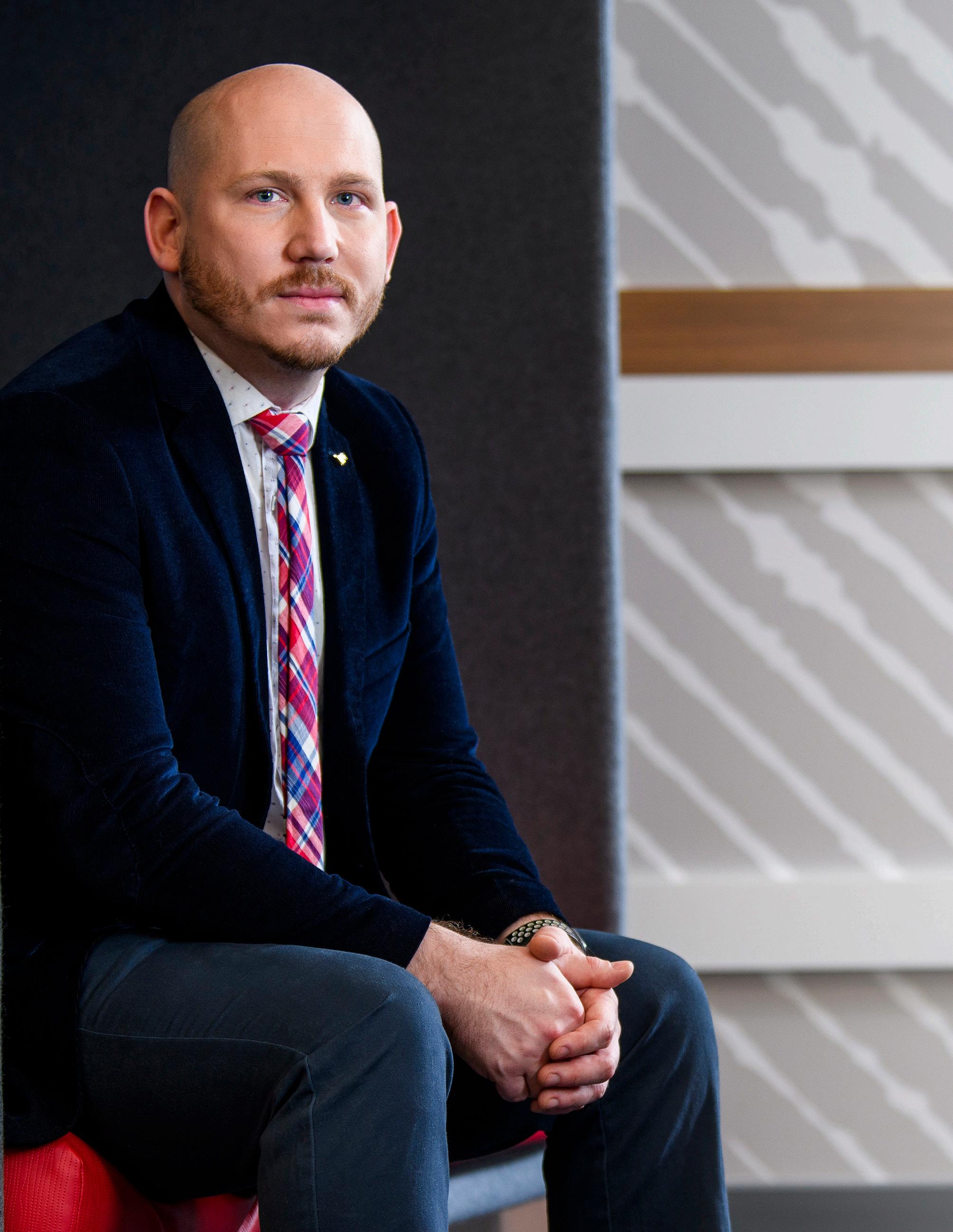
"To see students working together and with staff to provide engagement opportunities across campus was inspiring and highlighted why we do what we do."
Dr. Adam R. Cebulski reflects the collaborative work of students and staff throughout the past year to contribute to the collective success of the SMU community

Over the last few months, Student Engagement and Success (SES) has been interviewing many candidates for our open positions, which have been on hold as we sought to navigate the uncertainty of COVID times. I meet with each candidate we bring to campus as part of their interview process, and during each of those meetings, I start off by describing the offices, departments, and programs that make up SES. While not particularly new to this past year, one of the things that struck me recently as I held these conversations is that all our significant departments start with “student.” The SES unit is home to Student Development, Student Experience, and Student Involvement, all comprised of multiple offices and programs that serve students. More so than any other year during my time at SMU, I feel the staff within SES have sought to not only put students first in name, but in action.
This year brought incredible uncertainty and trauma for our students as they navigated another school year where COVID (and its variants) were front and center, and where they saw their friends and relatives from LGBTQ communities and communities of color experience incredible violations of their rights—both physically and politically. But despite that, our students committed to their college experience. It would have been enough to just focus their entire energy on academics and get through their classes—that is and should be their first priority while enrolled. Instead, however, many of our students went above and beyond and became part of the collective success of our unit.
This year we hired our first full cohort of student employees to help navigate re-opening the student center post-renovation; this was no small feat considering that we’ve maneuvered to recreate many of our processes and procedures in new systems. These students serve as the first face for visitors at the Welcome Desk and support all of the programming in the building. We also had students graciously serve on our Policy Review Task Force and the resulting Events Equity Task Force that reviewed every policy in our area to identify areas for improvement in terms of inherent bias, unintended obstacles, and the ability for equitable application. These students and staff participated in difficult but important conversations to help make our programs better for everyone. Additionally, we saw students put their creativity and innovation to the test as they hosted programs and events under ever-evolving COVID guidelines. This year witnessed the return of beloved campus traditions, many reimagined, and the start of new and exciting activities. We held events on campus and also sent care packages to our remote students. To see students working together and with staff to provide engagement opportunities across campus was inspiring and highlighted why we do what we do.
I am excited to see what next year brings as we orient new students to campus and returning remote students who have yet to set foot on the Hilltop. While COVID may not be a thing of the past any time soon, I am confident our students and our student-centered staff will help our community thrive!
 Dr. Adam R. Cebulski Assistant Vice President for Student Engagement and Success and Chief of Staff
Dr. Adam R. Cebulski Assistant Vice President for Student Engagement and Success and Chief of Staff
The opening line of the email sent to Counseling Services (CS) staff stated, “In response to SMU’s Plan for reduced operations that begins today, March 19, 2020, Counseling Services will be providing tele-counseling and psychiatric care via the Zoom platform or by phone.” These few words represented many hours of meetings, phone calls, brainstorming, and consultations with key personnel within the Dr. Bob Smith Health Center. The CS staff’s response was predicated on how to best meet the ongoing needs of our current clients as they transitioned to a totally new way of doing things—returning home and attending online classes, as well as meeting with their counselor— virtually if possible. Additionally, we established ways to meet the needs of students 24/7 who might be in crisis.
By the time students attended their first online classes, all current clients of CS had received an email blast followed by a phone call to reschedule their in-person session to a virtual format, or to refer them to services in their home state, and make them aware of crisis services available to them. During this time, staff and our unsung superhero Department Systems Administrator, Gina Benavides, rewrote forms to reflect new policies and procedures. Staff participated in many hours of training as we ventured into a new way of connecting with our clients. Our goal was to ease the way for students who were shifting to an unprecedented way of doing ‘university and counseling’ via the internet. By the second week of online learning, we were able to provide referrals for those located out of state as well as to accept new clients in Counseling Services.
As the spring and summer semesters rolled along, we saw students who were experiencing the upheaval associated with an unprecedented time for our families and communities, in our nation, and in the world. Students were in transition, many endorsing feelings of being overwhelmed. A frequent refrain we heard was that they were ‘drowning’ with the unknown and unexpected. Some were anxious, others were depressed, but all were experiencing a profound sense of loss. In addition to counseling and psychiatric services, CS staff responded with access to 24/7 crisis counseling and with various types of programming and outreach to the university community via Zoom and recorded presentations. These presentations included topics such as, "Tips for Coping with Covid," and "How to Access Services," along with referrals to mindfulness meditation exercises and contacting students in quarantine. SMU provides WellTrack, a free app that offers students ways to contribute to their own wellbeing through monitoring their moods, learning the benefits of mindful breathing exercises and other ways to manage distress. One staff
member offered an Anxiety Toolbox that ran most of the fall and spring semesters. Others offered support groups to graduate and undergraduate students, and most of the staff spoke to groups of law students, graduate students in Cox School of Business, or offered mindfulness meditation to library patrons. Our Post-Doctoral Fellows established an Instagram account, providing tips three times weekly featuring:
• Motivational Monday - tips on overcoming procrastination, increasing productivity, getting motivated


• Wellness Wednesday - tips on sleep, self-compassion, movement, overall wellbeing
• Fun Fact Friday - psychological knowledge/tidbits
The staff of Counseling Services is looking forward to the return of students in the fall and is planning how to best support their needs. In addition to individual and group therapy, our MindSpa, which features an awesome feel good massage chair, fun biofeedback software to aid in anxiety reduction, recliner and weighted blankets, yoga mats and other ways to defuse stress and distress will open in early September. -
Written by Dr. Cathey Soutter, Director of Counseling Services and the Counseling Center staff in the Dr. Bob Smith Health Center.Students were in transition, many endorsing feelings of being overwhelmed. A frequent refrain we heard was that they were ‘drowning’ with the unknown and unexpected. Some were anxious, others were depressed but all were experiencing a profound sense of loss.
Charged with Strategic Plan Objectives 6.2 and 6.5, the 2020-21 Professional Excellence Committee developed a staff needs assessment that was deployed in March 2021 to better understand current perceptions, self-ratings, preferences, and needs among staff as they pertain to professional development. The goal of this assessment was to gather the necessary information to conceptualize and implement a comprehensive approach to professional development within the Division of Student Affairs; such an approach provides needed structure for ongoing professional development opportunities. The committee worked to create specific questions that would help staff offer their feedback and insight into the professional development curriculum so that it aligned with the NASPA/ACPA competencies, while also addressing the needs and wants of the Division. The spring semester was focused on developing and facilitating the assessment and then analyzing the survey data to make recommendations to the Vice President’s Leadership Team (VPLT).
75 18 450+ TOTAL RESPONSES (PARTIAL & COMPLETE)
COMPLETE SURVEY RESPONSES MINUTES (AVERAGE TIME TO COMPLETE)
106 179 88 89 OUT OF 15 19
COMMENTS ON OPEN-ENDED RESPONSES
AVERAGE WORD COUNT FOR RESPONSES TO THE FINAL OPENENDED COMMENT BOX (APPROXIMATE EQUIVALENT OF 2 PARAGRAPHS OF TEXT)
STAFF THAT MENTIONED “MORALE” IN THEIR RESPONSE TO THE FINAL SURVEY QUESTION, “WHAT OTHER FEEDBACK, IDEAS, OR QUESTIONS DO YOU HAVE TO SHARE?”
PERCENT OF STAFF SELECTED EMBEDDING PROFESSIONAL DEVELOPMENT INTO DIVISION MEETINGS AS THEIR 1ST OR 2ND CHOICE OPTION
PERCENT OF RESPONDENTS INDICATED THAT STAFF DEVELOPMENT PRESENTED A HIGH OR MODERATE NEED OF THE DIVISION
Armed with this information, the committee put together a recommendation to VPLT regarding how professional development is structured within the Division as well as how Division meetings can be utilized to support those intiatives. As a result of the resounding staff commitment to providing feedback through the survey and committee work, the following items have been agreed upon, and the committee has begun work to develop the first year of the new professional development series for the Division of Student Affairs.
• Incorporate Professional Development Keynote Speaker Series in four Division Meetings with optional in-house offerings
• Keynote speakers external to SMU
• Collection of feedback regarding keynote presentations and other professional development sessions to inform future topic and speaker selections
• All professional development session invitations to be sent to divisional staff following annual kick-off meeting
• Sessions will only be calendared duing non-lunch work hours
• Plan to livestream Division Meetings as well as professional development sessions
• Keynote presentations and applicable professional development sessions will be recorded for future viewings
• Slide deck made available to staff following Division Meetings
• Updated evaluation tool and training regarding the use and purpose of the evaluation tool and timeline
• Continued conversation regarding salient themes from the survey amongst VPLT
• Staff Development Lead role on the Professional Excellence committee tasked with planning staff development offerings focused on fellowship among staff
• Broadened, annual staff climate survey timetable and continued professional development needs assessments
• Facilitate a method for staff to submit questions for the Vice President for Student Affairs to respond to as time allows during Division meetings

While this year was a difficult one, the Professional Excellence Committee worked diligently to focus the voices of the Division’s staff in the creation of a new and exciting professional development curriculum and plan. Hopefully, the plan is something the Division can look forward to for next academic year.
6.2 Create a culture of professional excellence that cultivates talent development and demonstrates an investment in each individual employee.
As many will attest to, this year brought forth significant challenges. The Student Support Steering Committee was charged with addressing objectives from the Strategic Plan that reached beyond the challenges of the year. This task was particularly difficult at a time when priorities shifted and certain plans were set aside to attend to the current needs of our community. We learned that our objectives were broader than we had previously thought and anticipate the work to continue in the upcoming academic year.
To make determinations about far-reaching student support programs and initiatives, our committee recognized the need to answer the following questions:
What are we already doing?
What gaps have we identified?
How should we move forward?
Our work exceeds the scope of division responsibilities, but we have identified an opportunity to lead the charge. The Division of Student Affairs is well-positioned to provide data about student needs, to discuss how we are meeting those needs, and to lend its expertise in infusing well-being throughout the SMU community.
4.3 Utilize local and national benchmarking instruments to implement best practices in health and wellness programs tailored to the needs of our campuses.
6.5 Develop a dynamic professional development curriculum preparing and supporting staff and graduate assistants to advance the components of the strategic plan.
4.4 Create campus-wide strategies to help students cope with stress and destigmatize the utilization of mental-health resources.
IN THEIR OWN WORDS
Amidst global protests for racial justice after the murder of George Floyd, we joined our peers in reflecting on how our campus could meaningfully enact the “Black Lives Matter” vision for tangible change. Seeking to amplify the voices of those who courageously shared their experiences of being #BlackAtSMU and show solidarity for the Black Unity Forum’s action plan, we leveraged the summer’s momentum to advance an initiative that SMU community members had been working on for many years: the commemoration of Dr. Martin Luther King Jr.’s speech to a standing-room-only audience in McFarlin Auditorium on March 17, 1966.
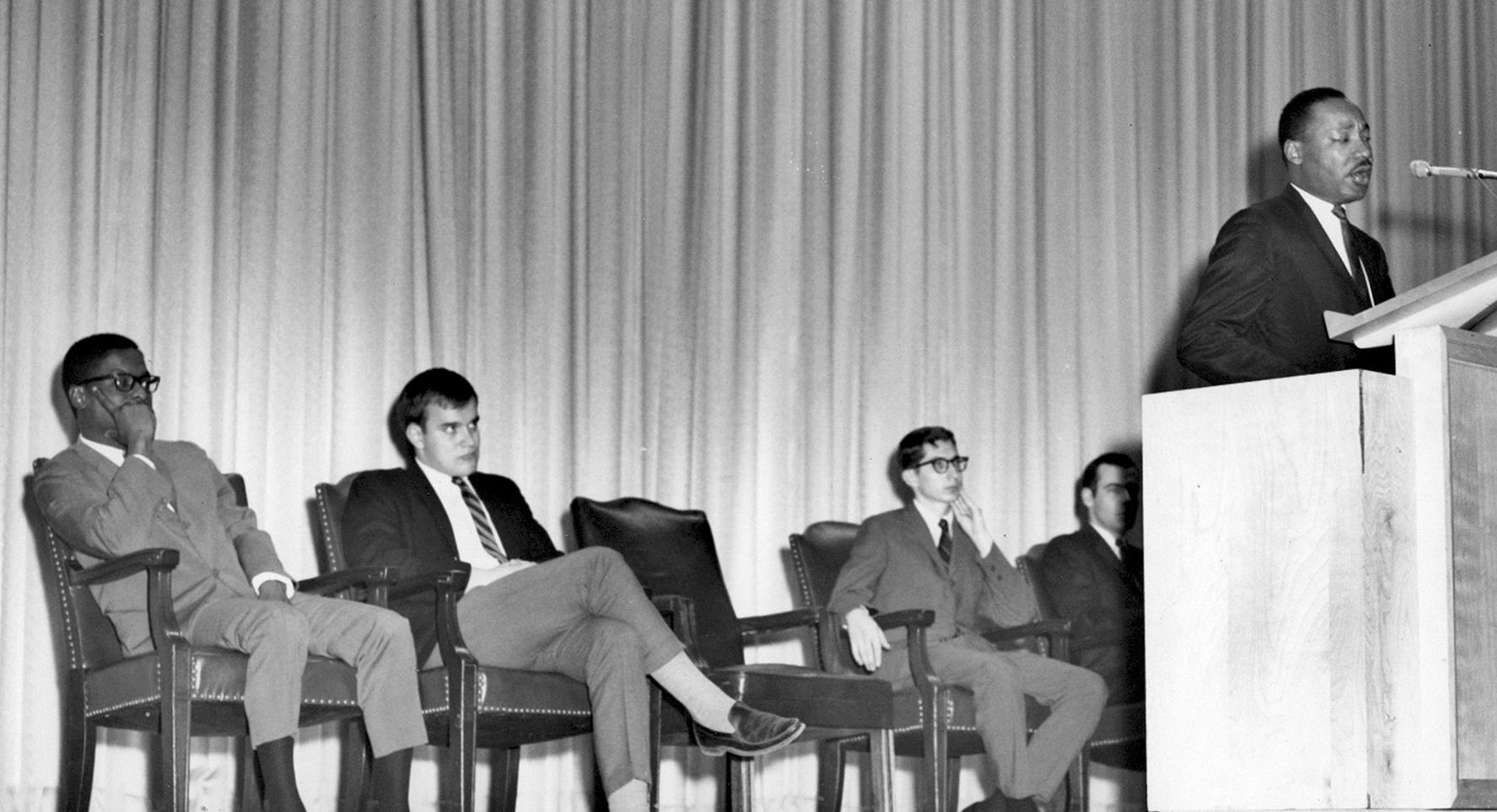
Dr. King’s speech was the culmination of efforts by Black and White theology students and the Student Senate to effect change at SMU and in America through engaging with the Civil Rights Movement. It inspires us to remain so involved, for as Dr. King proclaimed to the SMU audience, “our goal is freedom.” The speech was Dr. King’s first at a predominantly white university in Texas and one of only five recorded visits in Dallas. Moreover, the speech is unique among those as the only one at the invitation of university students. It is important to SMU and Texas history as a first but also significant because of the student leadership that made it possible.
In the 1965 invitation on behalf of the Student Senate, then-Student Senate Vice President Bert Moore wrote that hosting such a prominent civil rights leader could have great influence. While the speech was widely publicized and received a standing ovation, its enduring impacts are immeasurable. The occasion has been memorialized through Voices of SMU oral history interviews with alumni of color who were in attendance, an SMU Human Rights Fellow-created podcast, and numerous news stories. However, students, faculty, and staff have long desired for permanent and public recognition commensurate with the historic moment.
Committed to making SMU an equitable and inclusive campus, we wanted to build upon ongoing advocacy to honor the speech with a physical marker; last summer presented a singular opportunity to gather Black student-leaders and other stakeholders who had been involved for years. Recognizing the student invitation to Dr. King as an undertold part of Texas history, our committee decided to apply for a Texas Historical Commission subject marker due to its official, state-wide visibility.
Anticipating the May 2021 application deadline, we quickly organized to get required approval from administrators and collaborate with them to submit necessary components. To strengthen our internal proposal, the 107th Student Senate unanimously passed S-107-17 to support applying for the subject marker and commit funding for it. Additionally, the Faculty Senate Executive Committee unanimously voted to support the Student Senate’s legislation and our committee’s initiative. If approved by the Texas Historical Commission, the subject marker will be placed on the outside of McFarlin Auditorium for anyone who visits campus to learn about this inspiring part of our trajectory. While we await a response from the Texas Historical Commission, we hope that our efforts can demonstrate how student activism for social justice has powerfully shaped our society. Learn more at www.smu.edu/AboutSMU/MLK.
Thank you to the many students, staff, and faculty members (in addition to the students authoring this article) who have worked on this effort: Darian Taylor ‘20, Past Students’ Association President; Carson Dudick ‘20, Research Assistant, Voices of SMU Oral History Project; Dr. Jill Kelly, Associate Professor of History; Joan Gosnell, University Archivist, DeGolyer Library; Zana Morris, Coordinator, Social Change and Intercultural Engagement; Arlene Manthey, Leadership Gifts Officer, Annual Giving and Alumni Relations; Paul Ward, Vice President for Legal Affairs, General Counsel, and Secretary to the Board of Trustees; Dr. K.C. Mmeje, Vice President for Student Affairs; Dr. Thomas DiPiero, Dean, Dedman College of Humanities and Sciences; Dr. Steve Rankin, Past Chaplain and Minister to the University; Dr. Ben Voth, Director of Debate and Speech and Associate Professor; Suzanne Massey ‘18, Past Community Relations Coordinator, Development and External Affairs.
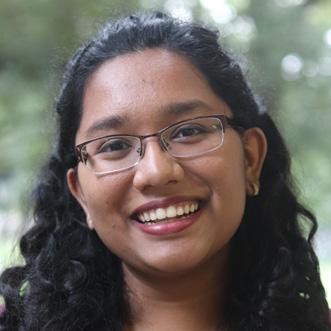
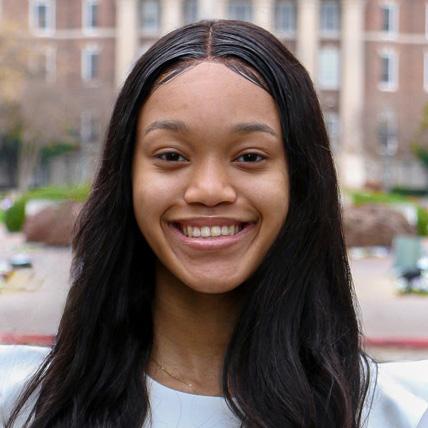
“The fight for racial equality and equity for the Black community has been going on for decades. Nationally, leaders of the social justice movement, like Dr. King Jr., have made monumental strides toward our goals. Locally and campus-wide, students are actively taking the initiative to create spaces for underrepresented voices to be heard. It is such an honor to have SMU recognize the work of the Black community and continue to make sure that every Mustang will be valued.”
- Sparrow Caldwell ‘23“Commemorating Dr. King’s speech is a pivotal step for the SMU community to take in honoring one of our nation’s greatest civil rights leaders and the efforts of student-leaders to engage in important dialogue related to justice, equality, and peace. The speech is historic for our state, city, and university, and I am glad that the initiative to celebrate it is student-led. Hopefully, community members and visitors will look upon McFarlin Auditorium and remember King’s legacy and the boldness of our students for years to come.”
- Matthew Hutnyan ‘21“This initiative has reminded me of the importance of honoring those who paved the way for us today. Of course, we all remember Dr. King Jr., but instead of just remembering, it is important that we honor him for being a catalyst for many movements that fight for the rights of marginalized groups to this day. I hope this marker serves as a symbol of hope, bravery, and encourages the SMU community to work even harder to strive for a more diverse and inclusive campus environment.” -
Caleb Mosley ‘24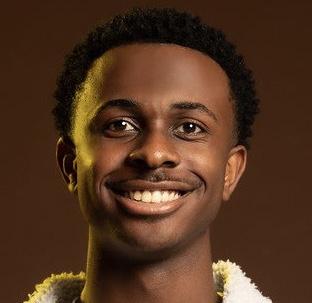
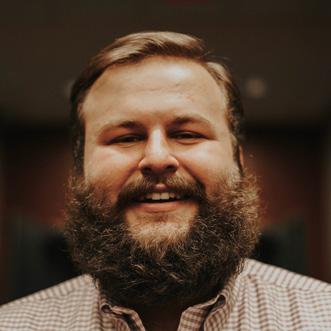
“Our efforts made me realize how impactful public remembrance can be in not substituting real change, but in forging it. I am dreaming about the day when we can see this physical marker and tell others about the story behind its existence. I am especially grateful to all the students, staff, faculty, and administrators whose long-term groundwork made our initiative possible in the first place. As we seek to build a campus where all Mustangs belong, I hope this recognition of Dr. King’s speech will serve as inspiration for SMU’s journey ahead.”
- Lamisa Mustafa ‘21“After many years of hard work setting up this proposal, I am so thankful that we were able to properly commemorate this historical speech by Dr. King. May this commemoration bring our community reflection, growth, and momentum as we continue to fight for equality and equity for all.” -
Molly Patrick ‘21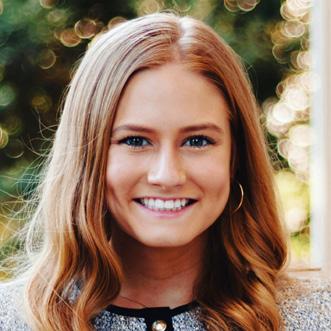
It is important to SMU and Texas history as a first but also significant because of the student leadership that made it possible.
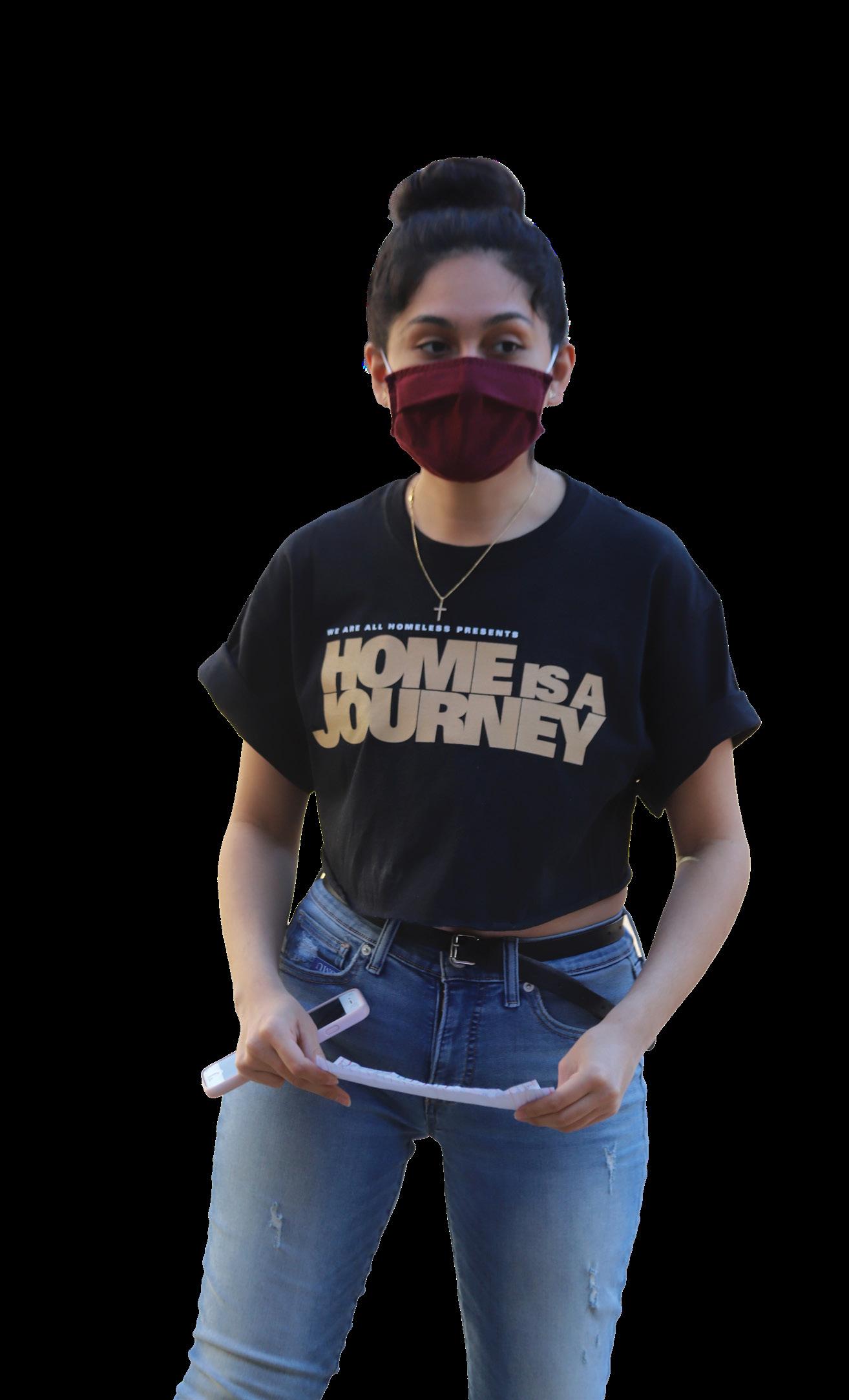

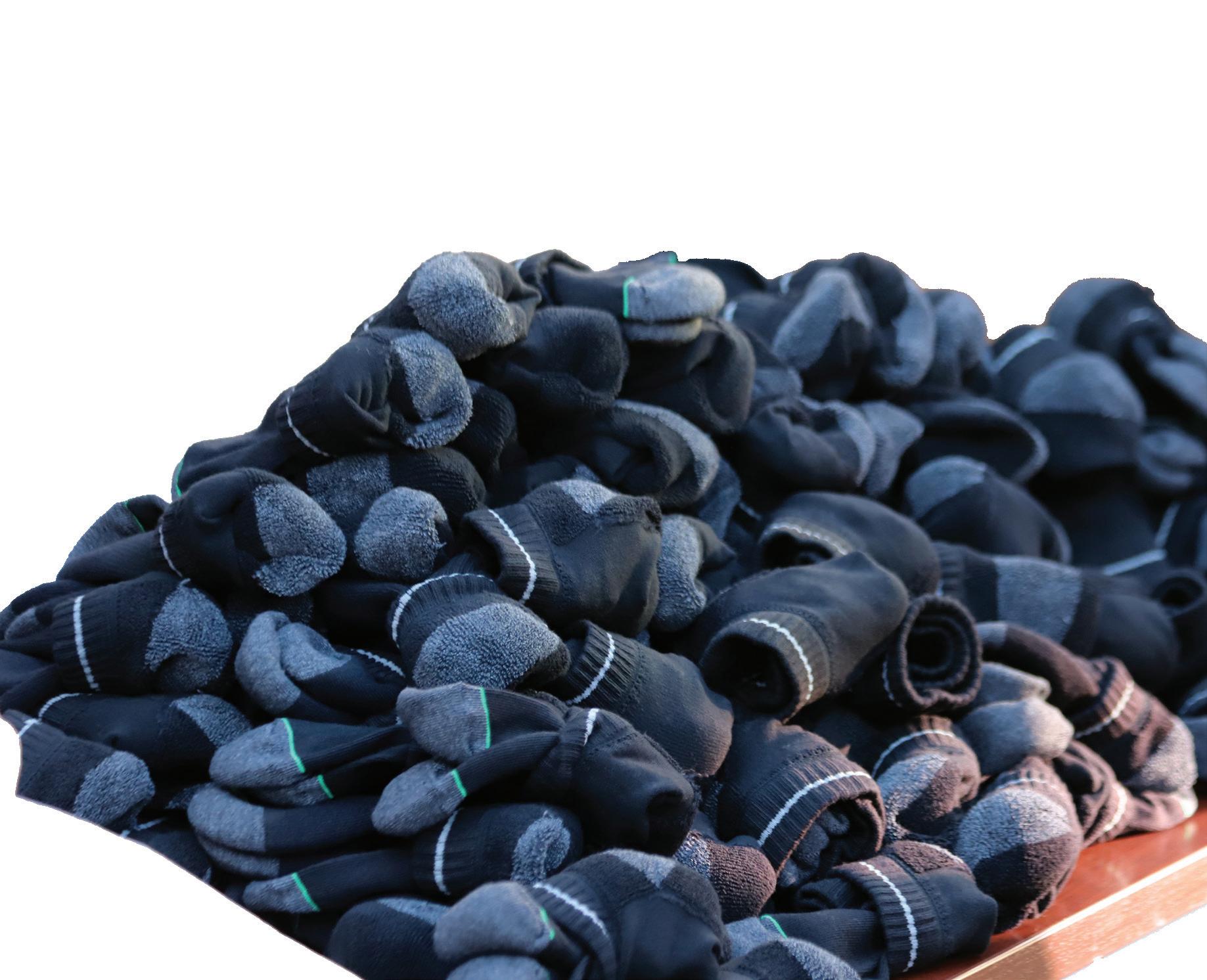
ngage Dallas is an interoffice initiative dedicated to cultivating community vitality. Dr. Dustin Grabsch, Director of Academic Initiatives for Residence Life and Student Housing, and one of the core team members for Engage Dallas, said, “We are honored by the opportunity to serve Dallas through this new university commitment which animates our mission – world changers are indeed shaped here. We’re excited to help build an initiative that will make our city proud, and that will build the belief that SMU is better because of the city we call home.” The Engage Dallas initiative is a long-term, place-based community engagement initiative where students residing in eleven Residential Commons (RC) have avenues for service in South and West Dallas. Through these experiences, students complete education and training, reflections, and share their talents with community partners from around the city of Dallas. Staphany Lopez-Coronado, Assistant Director of the Office of Social Change and Intercultural Engagement, and fellow core team member, reflected on the year and launch of the initiative, “Engage Dallas was launched at a time of great need amid COVID-19 and the subsequent Texas ice storm which severely impacted the South and West Dallas communities.” Lopez-Coronado explained that the initiative launched in October 2020 – one year ahead of schedule - with education and training for students and COVID-19-friendly direct service experiences during the spring 2021 semester.
In Fall 2020, the Engage Dallas offsite and risk management committee began to identify community organizations already well-positioned who are addressing the RC-chosen community needs. Matt Nadler, co-chair of the committee, explains there was an “intentional pairing process involving conversations with non-profit leaders. The committee focused on identifying community organizations whose missions align with the RC-chosen community need with which SMU could assist, and who — in the era of COVID-19 — offered virtual opportunities for our students.” Seventeen organizations were announced as the initial community partner cohort for Engage Dallas. Each Residential Commons is listed with its chosen community need and initial partner(s) on the Engage Dallas website (smu.edu/EngageDallas). These nonprofits and organizations will serve as long-term partners with the Commons, where SMU students will serve via the RC fall service day, monthly service opportunities, internships, and other individual pathways for student service.
As a student-led initiative, Engage Dallas student directors serve as the primary contacts for SMU students in each Residential Commons. Within their role, they plan and facilitate the monthly service experiences, host educational sessions, and more. Guadalupe Roman served as Armstrong Commons’ Engage Dallas student director this academic year. She is a first-year triple major in human rights, Spanish, and international studies. Roman has planned a series of in-person and socially-distanced events on campus to support their nonprofits addressing homelessness. For instance, Roman reflected, “Our first event had 15 students and we setup a line to stuff blessing bags.” The group stuffed and delivered 250 blessing bags, which contain toiletries, socks, water, and other necessities,
to the Austin Street Center. Roman shared that when they stuff the bags for distribution, they also discuss homelessness and how the items in the bags will impact the day-to-day experience of those receiving them. Students also discussed the other implications of homelessness and individuals access to daily necessities as well as job access and healthcare. Roman shared how the program has grown over the course of the spring semester. “At first, I didn’t think SMU students would care. This topic is so far from most of the typical SMU student’s experience.” Roman was pleasantly proven wrong, because at their most recent event, they logged over 30 students in attendance. During this COVID-19 year, Roman has also raised over $800 and facilitated the distribution of over 500 additional blessing bags for their partner organizations.
A unique feature of Engage Dallas is that SMU students are able to fulfill the Common Curriculum’s Community Engagement Proficiency and Experience requirement for graduation. A number of staff and faculty members sought approval via the Common Curriculum office.One faculty member serving on the research and assessment sub-committee is Dr. Caitlin Anderson. Anderson is a senior lecturer within the department of Applied Physiology and Wellness, as well as the assistant director of the Hilltop Scholars Program. “The Engage Dallas team has been quite thoughtful in the design of this initiative. The requirements of the community engagement proficiency, such as students’ 20 hours of engagement work, necessary trainings, and written reflections, are built into the program directly.” Anderson says that, “As a result, our SMU students are able to fulfill their community engagement proficiency, with very little extra work. It is a great example of SMU students, faculty, and staff working to align co-curricular experiences with broader academic goals, and thereby reducing barriers to graduation.” Engage Dallas serves as a wonderful platform for faculty involvement as well. Anderson noted that “Through Engage Dallas, I’ve found a supportive community of faculty, staff, and student researchers interested in investigating placebased community engagement and potential student-level outcomes. I’ve enjoyed collaborating with this team on several projects.” As Engage Dallas enters its second year with relaxed COVID-19 protocols, the program team is excited to witness the collective impact of SMU students, faculty, and staff can have on South and West Dallas via the Residential Commons.

The Courageous Change Leader Award is the highest honor bestowed on a staff member within the Division of Student Affairs. It was created to honor the individuals who have embodied the commitment statements outlined in our Strategic Plan. Any member of the campus community is welcome to nominate a staff member.
This past year has been one of uncertainty, loss, triumph, and confusion. Yet, we all have persevered, not knowing what changes were on the horizon from day to day in our personal and our work lives. However, our staff rose to the occasion and continued to uphold and live out the commitment statements outlined in our strategic plan. This year, we are excited to award the Courageous Change Leader Award to two recipients within the Division.
Our first winner is Staphany López-Coronado. Staphany currently serves as the Assistant Director for Social Change and Intercultural Engagement. Staphany is committed to advocating and creating a more just and equitable campus and society, and is not content to just talk about supporting students from underrepresented backgrounds. Instead, she challenges her colleagues to create more access and equity in our programs and policies. Her nominators identify how she puts student development at the heart of all she does. “It is easy to see by the relationship she has with her students that she cares deeply about their development and growth. Staphany's decisions are student-centered and prioritize their learning.”
In her role and with our students, Staphany is always thinking outside of the box and creating ways to do her job better. Another nominee said, “She is a strong advocate for students, a dependable colleague, and demonstrates the ability to go above and beyond on a consistent basis. Staphany models the way for staff and students alike and works to break down barriers on a consistent basis. I cannot think of a more deserving member of the Division of Student Affairs to be awarded the title Courageous Change Leader.”
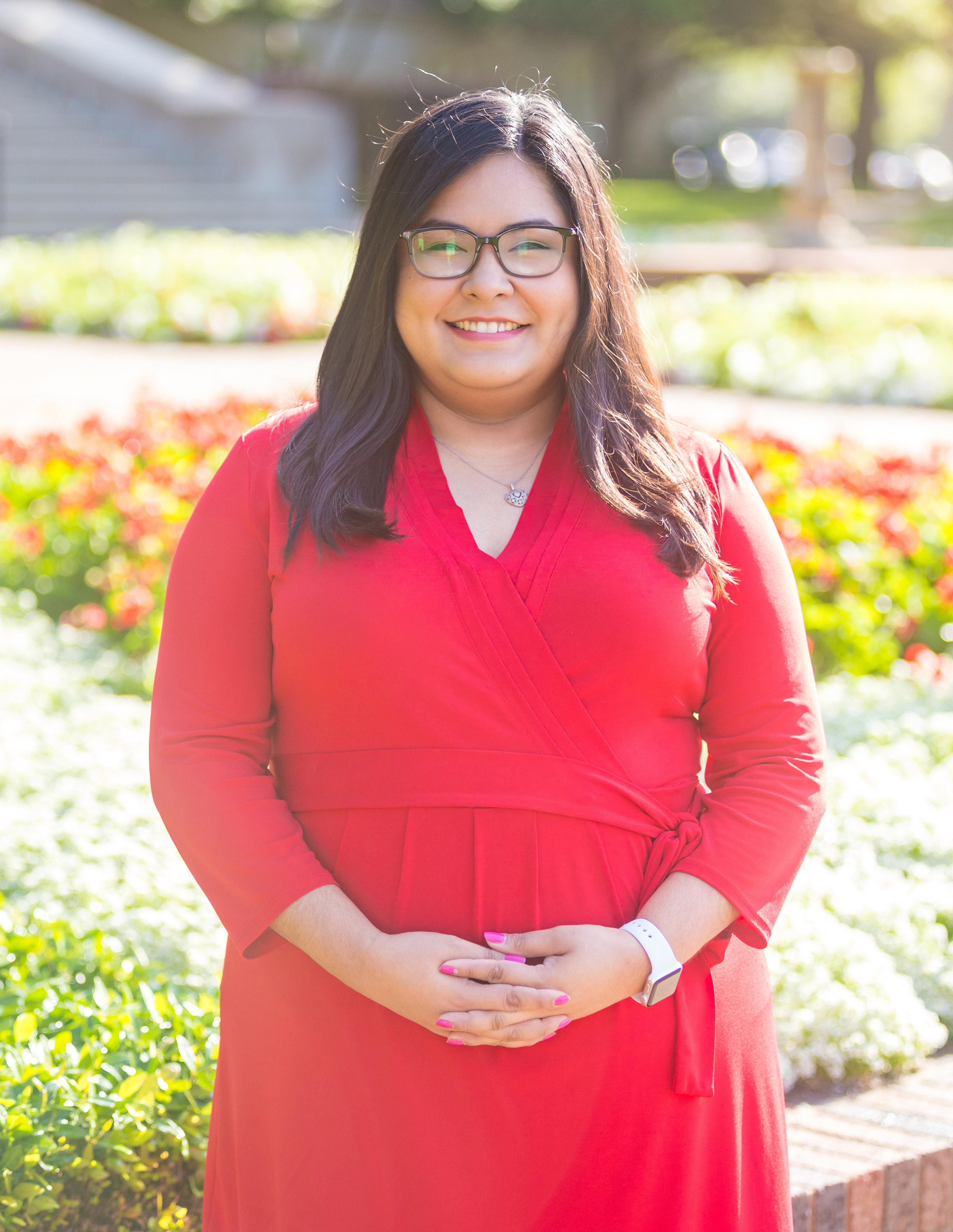
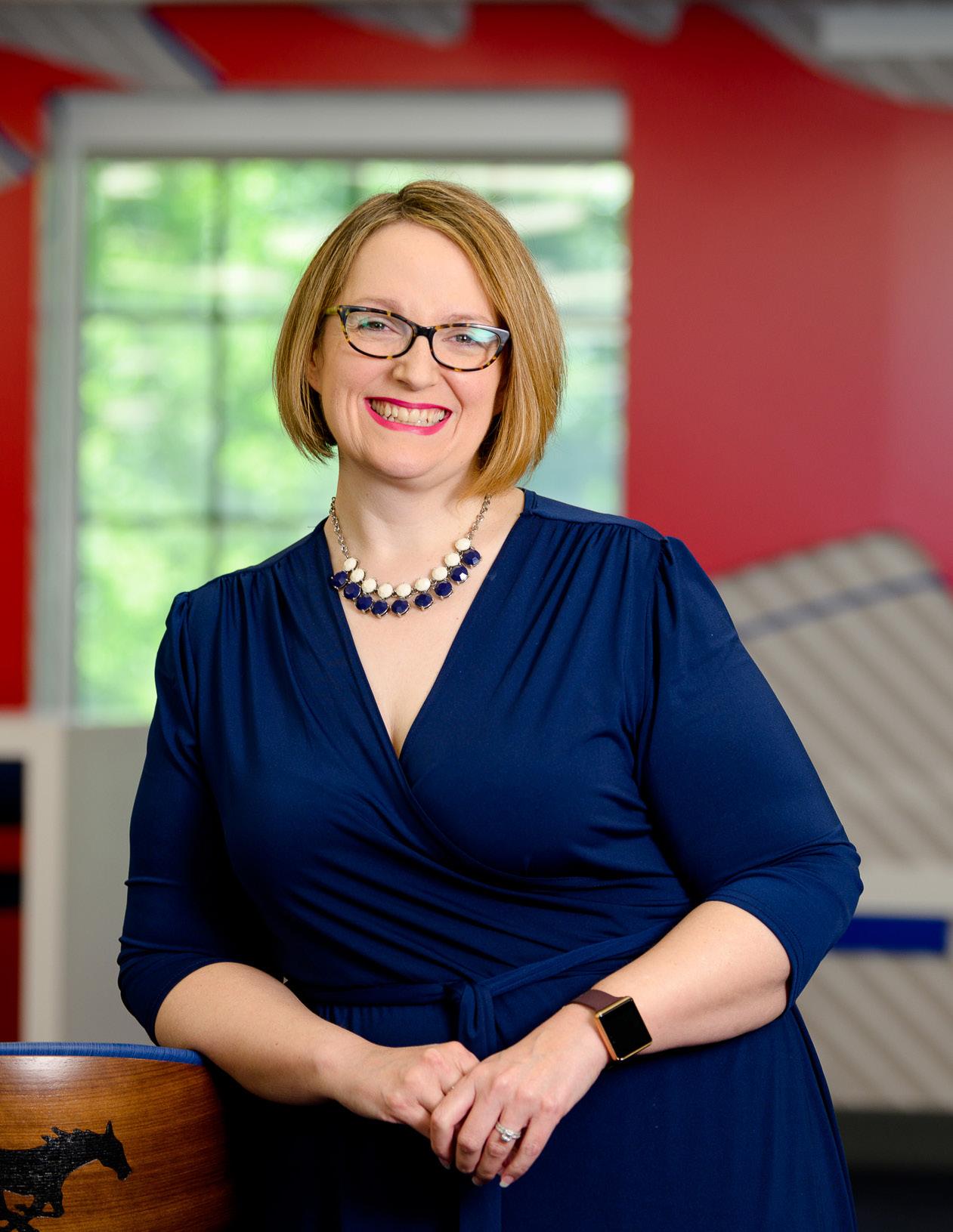
Our second winner is Dr. Sidney Gardner. Dr Gardner currently serves as the Director for the Women and LGBTQ Center. One of her nominees describes Dr. Gardner as “always the first to raise her hand to help. She volunteers out her passion for the work and because she wants to be an asset and not a liability to our department and our division. She has come to SMU and dug her hills in the ground and made this place her home. She is a great colleague, team player, mentor, advisor, presenter, and just an all-around extraordinary individual.”
This year, Dr. Gardner exemplified innovating her work to another level. Not only was she able to transition both the Women’s Symposiums and LGBTQ Symposium to virtual formats, but she also created additional engagement opportunities through a podcast and an online mentoring program. Traditionally, both the Women Symposium and LGBT Symposium are large, in-person programs. Due to COVID, traditional in-person meals or speakers were unable to happen, so she created an opportunity for the participants and community attendees to have a conversation with their student presenters on a podcast. These podcasts were recorded and presented to the community throughout the year leading up to the symposium. On top of her regular work in the Center, Dr. Gardner also stepped up to help the division and the university as a COVID contact tracer and Title IX investigator – all without missing a beat for the Women and LGBT Center.
By embodying these commitments in both words and actions, we strive to move our division forward, together.
We commit to helping students break down the social, physical, and emotional barriers that may inhibit their success.
We commit to modeling the way for our students by engaging them with respect and integrity, and by demonstrating congruence in expectation and action.
We commit to a culture of intellectual curiosity and innovation to develop, with student input, new strategies and implement new programs to more effectively serve our entire campus community.
We commit to being responsible stewards of our resources and influence, and promise to hold ourselves and each other accountable in our daily work.
We commit to being agents of positive change on our campus and in our communities, excited by what the future holds for SMU and empowered to help shape that future.
We commit to purposefully engaging our students as individuals and leaders, to recognize their unique skills, talents, and identities and to help develop each one as a world changer in their own right.
To learn more about the Student Affairs Strategic Plan, Cultivating Courageous Change, visit www.smu.edu/cultivatingcourageouschange.
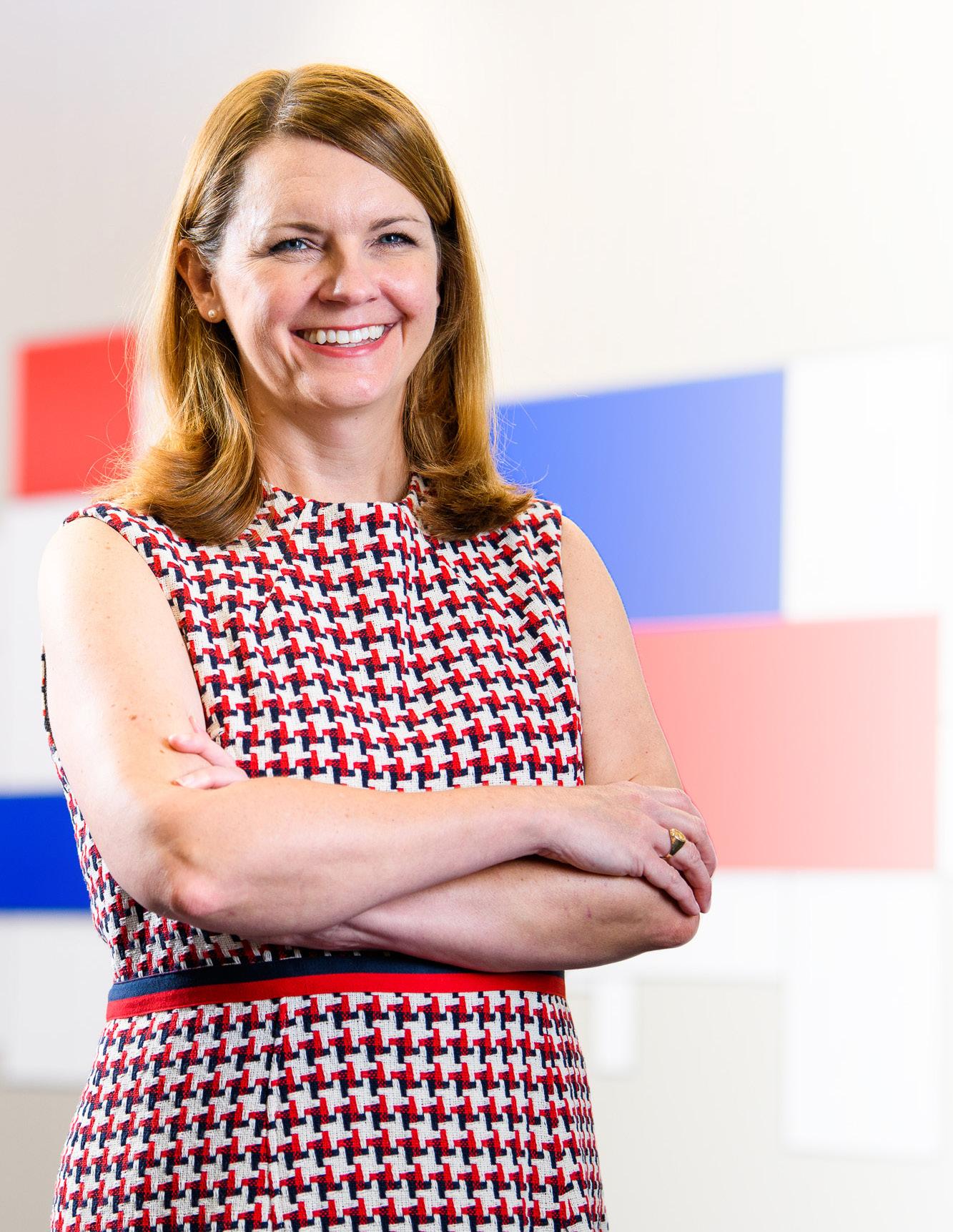
“Witnessing all of the achievements over the past year has been humbling, encouraging, and energizing, and I am reminded again how thankful I am to be part of this community.”

How does one accurately describe a year like 2020, or an academic year like 2020-21? I’m not sure any reflection I could write could do that experience justice as I, like many, am still processing what just happened. Personally, I keep thinking about that well-known line from Charles Dickens’ A Tale of Two Cities: “It was the best of times, it was the worst of times….“ And, it really was.

Certainly, the “worst of times” in 2020 are what come to mind first. Rising numbers of COVID-19 cases, hospitalizations, and tragic and heartbreaking deaths dominated the news cycle. Individually, we worried about keeping ourselves and others healthy and safe and figuring out what a new “normal” would be for each of us personally. Grappling with racial injustice and how best to support our faculty, staff, and students of color as we work to become an anti-racist institution were also on our minds and hearts. Faced with so many daunting challenges and difficulties, I believe everyone reached their breaking point at some point during the year.
But, on the other hand, there were many beautiful moments as well that brought out the best in each of us. Our campus community came together to Pledge to Protect Our SMU Community from COVID-19. This required sacrifices from everyone, but we all had a common goal: to defeat the virus. The tireless work and commitment of our faculty, staff, and students were inspiring as they practiced flexibility and resiliency on a daily basis. Many of our campus community members also led and participated in Black Lives Matter marches that brought attention to the injustices within our country and community and developed initiatives on our own campus to improve the experiences of people of color at SMU. Witnessing all of the achievements over the past year has been humbling, encouraging, and energizing, and I am reminded again how thankful I am to be part of this community.
The 2020-21 academic year really feels like a year that should have an asterisk beside it, and for good reason. I hope we never have to experience another like it, but I also believe we have learned lessons and gained a new appreciation for things we took for granted previously. I am proud of SMU and the way we have weathered the past year, but I am excited and optimistic about the future as well. Just think about what we can do when we put our collective minds and energy behind it! This past year demonstrated once again what amazing individuals we have at SMU and what a special place this is. I look forward to what lies ahead on the Hilltop in 2021-22!
Dr. Mindy Sutton Associate Vice President for Student Affairs and Dean of StudentsIN

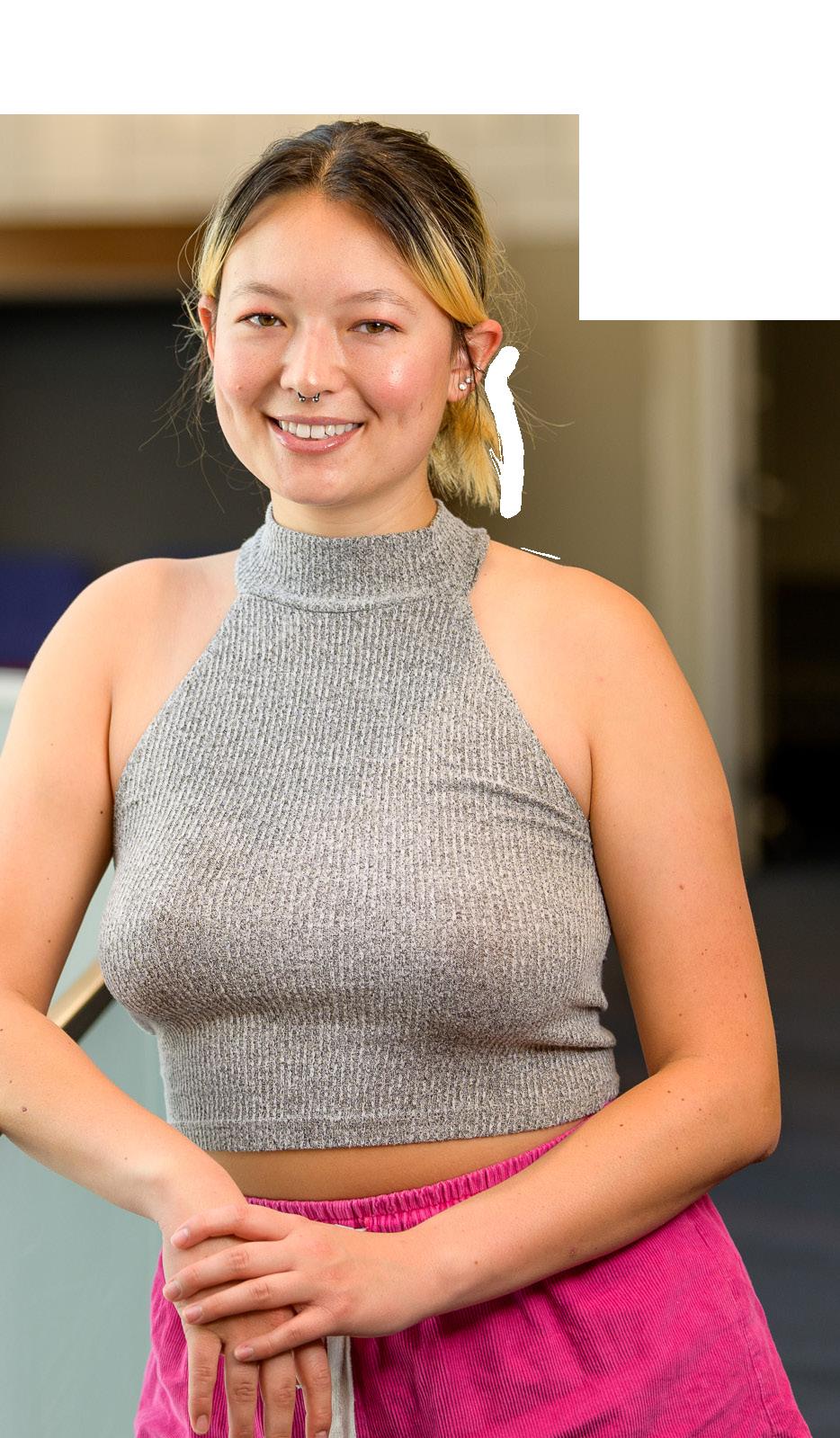
One way that the Division of Student Affairs ensures SMU students are meeting their personal and professional goals is by allowing undergraduate students to participate in research. Led by Drs. Allison Kanny and Dustin Grabsch, the undergraduates who pursue research opportunities in the Division gain practical experience that ensures success both in and out of the classroom. A closer look at two of the graduating members of the Student Affairs Undergraduate Research Program highlights how these research opportunites can play a role in the next steps beyond the Hilltop.
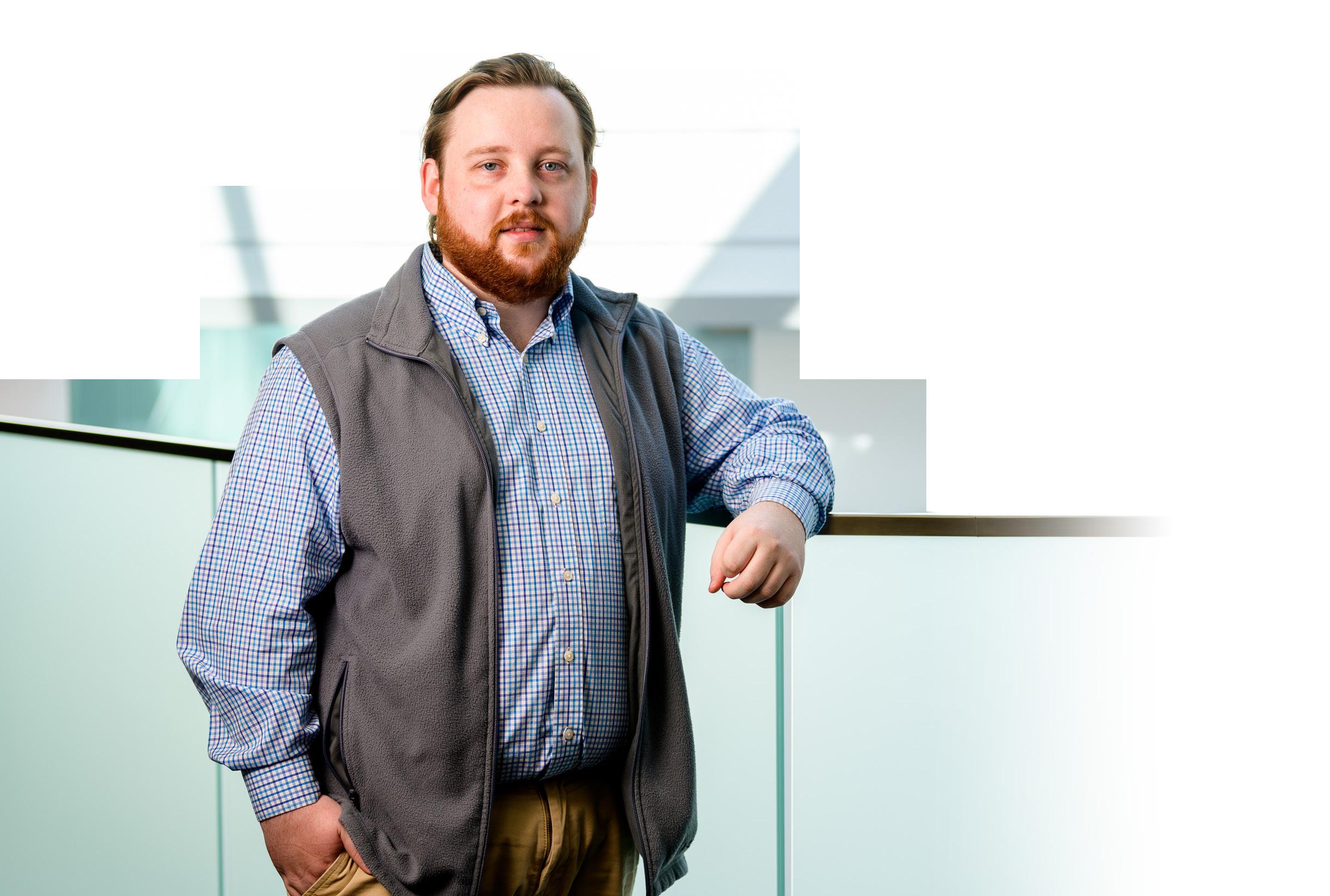
“Conducting research with the objective of bettering students’ lives, especially vulnerable populations at SMU, has been both informative and fulfilling.”
-Tara Greig
Tara Greig: For the past two years, I have worked as an undergraduate student researcher on the Student Affairs Undergraduate Research Team led by Dr. Allison Kanny. I was excited to start this position as a junior as I wanted to gain research experience that implemented both of my majors. I expected to learn the processes and protocols behind research work, but what I did not anticipate was how compelling the work would be. My first year on the team was unfortunately halted by the onset of the pandemic. Originally, our team planned on studying the sense of belonging among non-Greek students on SMU’s campus. We felt this topic was salient given our position within Student Affairs and collective objective to better student lives. In light of the events of last summer, we decided to conduct a study in the 2020-21 academic year to support the Black community at SMU. We conducted an exploratory study using social media to seek out aspects of the Black student experience at SMU that needed better understanding. Our team proceeded with examining Racial Battle Fatigue (RBF) among Black and/or African American students, and the sources and mitigators at different environmental levels on campus. This study helped me discern plans after undergrad, where I will be pursing a Master in Public Administration from the Univerity of Texas at Austin’s LBJ School as part of a dual-degree program in the Energy and Earth Resources Program in the Jackson School of Geosciences.
Conducting research with the objective of bettering students’ lives, especially vulnerable populations at SMU, has been both informative and fulfilling. My undergraduate majors were incredibly data-focused, so this research opportunity introduced me to the personal aspects and impacts of research and analysis work around human populations and policy. I have enjoyed this position and the ability to illuminate spaces, people, and interactions that need to be addressed to increase equity on SMU’s campus. I expect that the experience gained in this position will translate well into future research I conduct during graduate school. In this position, I learned a lot about positionality as a researcher in respect to the populations being researched. I now know that positionality is extremely important to be cognizant of if I work with domestic and/or international policy surrounding specific populations. I would like to thank my fellow teammates and supervisors for all their dedicated work and support.
Jonathan Lindbloom: Serving as a research assistant on the Residence Life and Student Housing (RLSH) Research Team over the past two years has been an incredible opportunity to hone in on my skills in data analytics while also answering questions about student engagement and success. As a mathematics and finance major, this excursion into the social sciences has taught me how to think critically about humangenerated data and has opened the door to similar such jaunts in the future. I first joined the RLSH Research Team during the fall of 2019 to work on a project titled Historical Academic and Student Success in Residential Life. My role in this project was to synthesize disparate data sources on student demographics, housing, academic performance, and conduct incidents to derive insights on how all these things have historically been related at SMU. Our team then used these insights to create a list of recommended interventions and policy changes for SMU administration. During this project I became an expert at manipulating datasets with Python and gained a greater appreciation for the importance of data cleaning in quantitative analysis. In the following summer I participated in an applied mathematics research program in which I relied heavily on these skills to analyze a climatological dataset – already having these skills under my belt allowed me to hit the ground running.
Recently, my work with the RLSH Research Team has transitioned towards building dashboards and data workflows as part of the Tableau Team. After SMU’s adoption of the Tableau last fall, I’ve since become one of the students championing the software on campus. My experiences through the Tableau Team have allowed me to pick up further technical skills related to data automation and DevOps that I certainly wouldn’t have gained otherwise. The skills will certainly be useful as I begin my research career as a graduate student. After graduation, I will be interning at the Los Alamos National Laboratory prior to joining Dartmouth’s Applied Mathematics Ph.D. program this fall. It should be no surprise that my research interests center around the general theme of learning models from datasets. Overall, my involvement with the RLSH Research Team has added a unique dimension to my undergraduate career that has equipped me to be a data-driven researcher. I will always be grateful for this opportunity and the mentorship I received from Dr. Dustin Grabsch.
Jonathan Lindbloom ’21 is a Finance and Mathematics major from Coppell, TX. His Residential Commons affiliation is Ware Commons.
Tara Grieg ’21 is a Statistic and Mathematics major from Gilbert, AZ. Her Residential Commons affiliation is Boaz Commons.“My involvement with the RLSH Research Team has added a unique dimension to my undergraduate career that has equipped me to be a data-driven researcher.”
- Jonathan Lindbloom
first doses
of the Pfizer-BioNTech vaccine were administered in the first week of SMU’s vaccine clinic opening
80% were student recipients
4992 4992 total vaccinations administered
from March-May 2021
3046 administered from the Health Center*
COVID-19 tests
to the staff in the Dr. Bob Smith Health Center for your tireless work supporting SMU community health throughout the COVID-19 pandemic.
RANDY P. JONES
PETER DAVIS
ARTHI KRISHNAN
PARUL HARSORA
ASHA MEHTA
KARA SJOGREN
JESSICA KING
SHEILA PRICE
DIANE MELCHER
EMILY HOWLEY
VIRGINIA SNODGRASS
JANET BERRYMAN
MADGE EARNSHAW
KARRAH GAGNON
STEPHANIE MIDDENDORF
BRIDGET STUECHELI
ANGELA TAKEN
CYNDI HEATH
LANITA PAYNE
CINDY NICHOLSON
QUYNH-DAO NGUYEN PHAN
BILLIE SCHMITT
MARY SKIDMORE-GIBBS
CAROL KREBS
TAMI SMITH
ANGELA WARFIELD
GINA BENAVIDES
JEREMIAH GAINES
Theresidential experience of students currently living on the Hilltop has been vastly different from that in the preceding years, as SMU navigated a new normal during the COVID-19 pandemic. However, the Faculty-in-Residence (FiR) program continued to offer the foundational student experience—a oneof-a-kind experience students have come to expect at SMU since 2014.
As the SMU Residential Commons enter their eighth year, we caught up with the four newly-selected FiRs and their families — maintaining, of course, social distance at all times. We asked these FiRs to tell us about their “why” and about the impact they hope to make on the residents. Their “certainly” in their “why” led them to apply to serve students in the height of a global pandemic.
You applied to serve as a Faculty-in-Residence when COVID-19 was at its height in fall 2020. What made the position appeal to you even during such a time of uncertainty?
Carol: When I was nominated, I was honored and felt that I should look into what the position entailed. But when I saw what a great program it was, it almost felt like a calling—especially during a time when so many are feeling so isolated and anxious. I felt even more compelled to help foster a sense of community, academics, and fun!
Daniele: The pandemic showed me more than ever how much I value my relationships with students and the SMU community, which extends well beyond the walls of the classroom. Serving as a Faculty-in-Residence will allow me a unique opportunity to build back those important connections that broke down due to the pandemic.
Jack: Two conversations cemented my commitment. First, an undergraduate blurted out, “You should be a FiR!” I replied, “A what?” When Laura explained, I knew I was all in! Second, I spoke with a current FiR, Sandy Duhé, and felt the same way in my gut—full of enthusiasm about this possibility, COVID or not.
Alberto: My interest in becoming a FiR began in 2012 when I was part of the Program Committee for the new Residential Commons. Then, as a Faculty Affiliate for the Ware Commons, I witnessed firsthand the implementation of the ideas that we envisioned as a Committee. The Residential Commons have always been a special place for my family and me. We have known personally some of the FiRs for years, with whom we have enjoyed live music at Crowchella and food from all over the world at Taste of Diversity, among other events.
What are you and your families bringing to your Residential Commons?
Carol: I will bring compassion, discernment, and my eclectic skillset to foster a sense of school and work/life integration so the students can thrive personally, academically, and professionally. Our family as a whole will bring self-awareness, humor, food, and fun!
Daniele: We hope to benefit from and contribute to the global perspectives that make the SMU campus a special place. My family, which combines Italian, Italian-American, and Asian-American cultural values and practices, is a microcosm of the diversity we so much appreciate on this campus. Moreover, I hope that my own experience as a first-generation college student, and later as an international student, can serve as a positive role model for many students.
Jack: We want to create an especially hospitable space for the vast variety of students who live in Boaz Commons. Particularly for the new students, this adjustment can be tough. We’d also like to carve out a red-solo-cup-free zone—that is, to become an exemplary and environmentally responsible community. Finally, we’d like to stand by the Boazies’ shoulders as they navigate the semester, with gatherings around topics like, “How to write a great first paragraph.”
Alberto: My family will bring a multicultural perspective to the Commons. I am from Madrid, Spain, my wife Martha is from Cali, Colombia, and our son Alejandro was born in Dallas. As a family, we believe in respect, tolerance, social justice, environmental protection, and education. We are all three very social and outgoing. We enjoy hosting and having friends over at our house.
Which Residential Commons tradition or experience are you most looking forward to?
Carol: Any opportunity to de-stress through art is a winner to me. The concept of “fun art” rather than the pressures of “fine art” with
their Bob Ross tradition is a fabulous one. Continuing the evening snacks tradition is also something I’m looking forward to.
Daniele: Of course, I look forward to experiencing Crowchella, but most of all I look forward to daily opportunities to connect one-onone with the residents of Kathy Crow and share in the excitement of studying and living on campus.
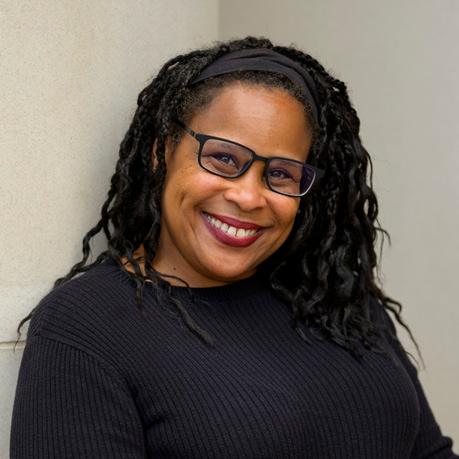
Jack: Definitely Boaz + Bowties, which traditionally takes place in the beautiful confines of the Dallas Arboretum. We hope to develop new, even exotic, traditions, as well!
Alberto: Being a FiR will allow me to participate in energizing conversations and academic exchanges with students. It will also allow me to engage in academic events in which I can contribute to the students’ personal growth by bringing my area of expertise on multilingual societies to the Commons.
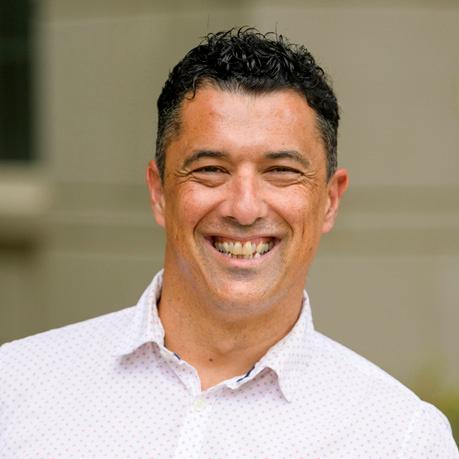
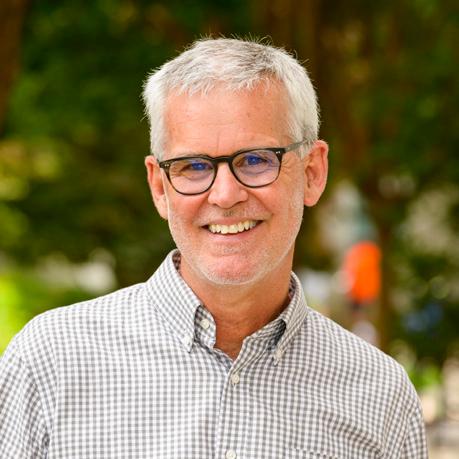
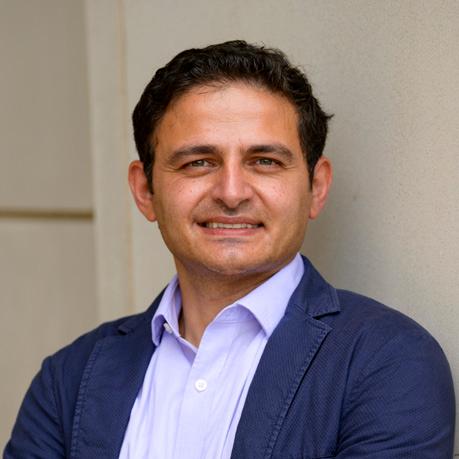
After our conversations with these new FiRs, we are even more eager to witness the difference made on our on-campus community by these families. Starting in fall 2021, they will join an established program of faculty who go above and beyond in their commitment to student learning and success. We are grateful they answered the call to serve so that current and future Mustangs can benefit. Our existing Faculty-in-Residence worked together and kept going. Now, hopefully, our 11 FiRs can look forward to a more traditional fall and foundational student experience on the Hilltop.
Carol Dickson-Carr is a professor of practice serving both the economics and English departments in the Dedman College of Humanities and Sciences. She also serves as a Faculty Mentor to the Rotunda Scholars and first-generation students. Carol, her husband Darryl, and her daughter Maya are excited to make the Virginia-Snider Commons their new home and serve the students there.
Daniele Forlino is a lecturer and area chair of Italian in the Department of World Languages and Literatures in Dedman College of Humanities and Sciences. He joined SMU in 2017 after earning an undergraduate degree in economics and a Ph.D. in Italian, with a focus on contemporary literature and cinema. Along with his wife, Aria, and their children, Sofia and Rocco, he looks forward to calling Kathy Crow his casa dolce casa.
Jack Levison holds the W. J. A. Power Chair of Old Testament Interpretation and Biblical Hebrew at SMU’s Perkins School of Theology. Jack and Priscilla Pope-Levison, a senior administrator at Perkins, came to SMU in 2015. They are pleased by the prospect of living tooth-to-jowl with the winning and wonderful students of Boaz Commons.
Alberto Pastor is an associate professor of Spanish and general linguistics in the Department of World Languages and Literatures in Dedman College of Humanities and Sciences. In his classes and personal life, Alberto tries to serve as an advocate for multilingualism and multiculturalism in the society at large. He and his family are thrilled to continue the diversity values and traditions of Mary Hay Peyton Shuttles Commons to be a part of and foster this community.
The Caring Community Connection (CCC) program is 13 years old—a whole adolescent! It’s hard to believe how much has changed and developed since the program started, and though the program’s start predates my tenure here, I can’t help but feel immense gratitude about how we’ve been able to support students through CCC.
The CCC program began in the 2008-09 academic year following a difficult year in which we lost three students. What came out of those tragedies is that there were people on campus who had concerns about those students, but no real place to share that information. Around the same time on a national level, many universities were forming clearinghouses to report issues following the campus shooting at Virginia Tech that revealed the same challenge—people with student concerns, but no place to report them. The CCC program is SMU’s clearinghouse for reporting and addressing student concerns and has grown into a vibrant, necessary resource.
So, what happens when you develop a resource for anyone in the SMU community to share a wide range of issues (academic, medical, financial, social, emotional, etc.) through an online submission form? Well, you hear things! We have grown from addressing 185 student concern cases in the 2008-2009 school year to 1394 cases in the 2020-21 school year. I’ve been asked often about what this growth means, and I have to say how proud I am of the SMU community for remaining cognizant of the value of developing a culture of care. In my mind, 1394 student concern cases means that we have a community in which people truly look out for students’ wellbeing and work to connect them to resources on campus through the CCC program. Students in distress may not truly be thinking about what’s available on campus, have difficulty navigating systems, or may have reached a point of stagnancy if they perceive their concerns as too challenging to overcome. Our goal is to meet students where they are and work to get them appropriately connected, such that they can troubleshoot and continue progress towards graduation.
When people think about the kinds of concerns we receive, they default to mental health. While it’s certainly true that we often work with students to address mental health concerns, the CCC program is purposefully all-encompassing. We believe that’s really the only way to get a true picture of what might be going on with a student, as well as understand more about how one concern may impact other areas of a student’s life. For example, we may receive a concern about a student’s class attendance from a faculty member, and then learn from their Resident Assistant that the student has disclosed significant mental health concerns. When we have individual puzzle pieces, it helps us to triage the issues and guides our contact with the student. We can then ask intentional questions to start strategizing appropriate resolutions with the student to address the concerns. Specifically, that might mean that for the student described above, we directly connect them to Counseling Services through a referral and send notice to faculty to advocate for additional time on assignments or deadlines.
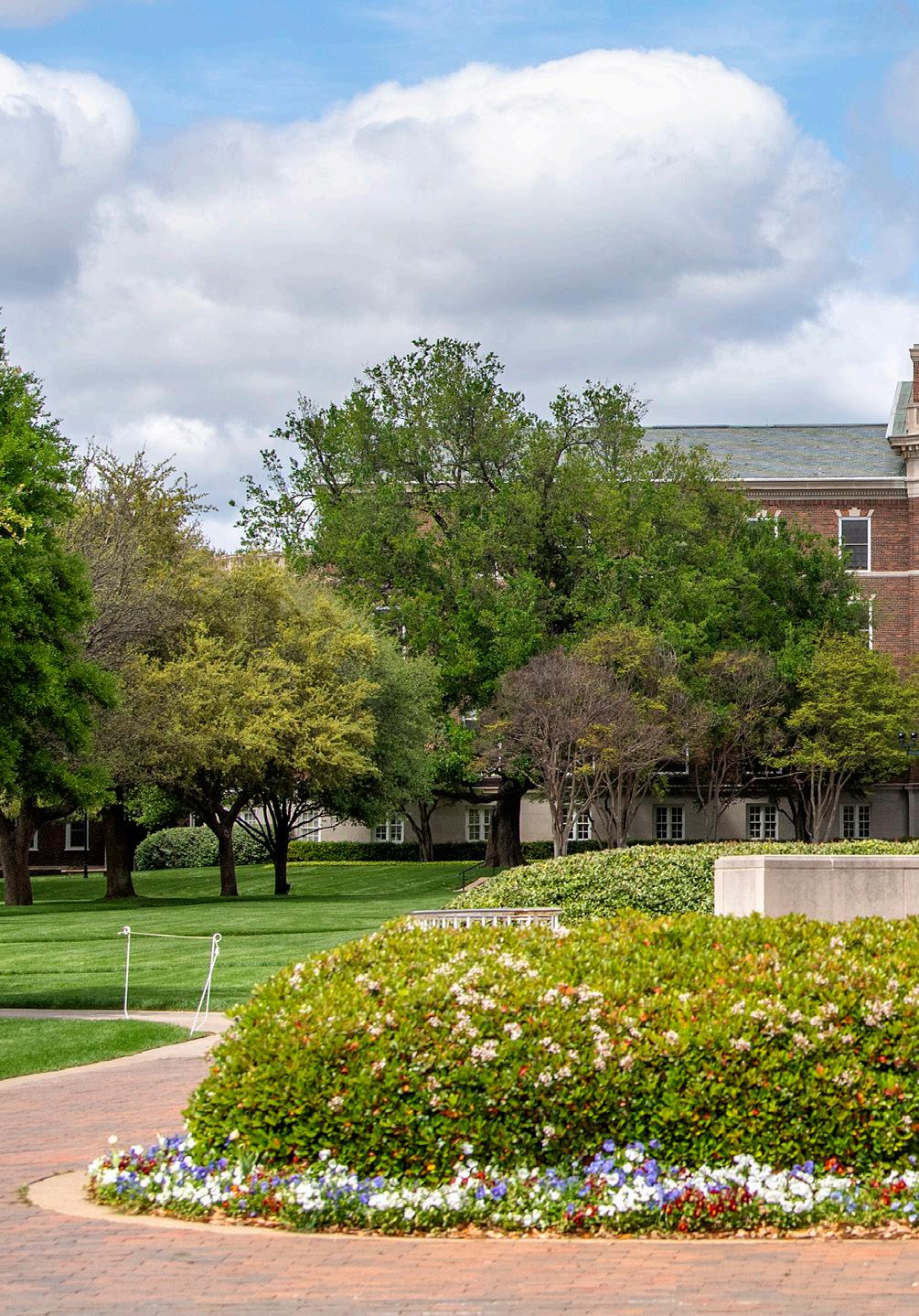
Our CCC program includes the CCC team, a multi-disciplinary group that meets weekly to review our more significant issues and outline appropriate interventions. The CCC team is SMU’s version of a behavioral intervention team, which most campuses have, given the need to not only connect puzzle pieces in one area, but to be sure that there is a campuswide approach to resolving concerns that may be impacting multiple areas of campus. I am grateful to our CCC team members for the time and effort they dedicate to working with students of concern, especially because they consistently balance the needs of the individual student with those of the campus community to arrive at resolutions that provide maximum benefit.
As we move into the next year of the CCC program, we are particularly excited to resume some of the work we were expanding prior to Covid-19, which forced us to focus solely on responding to concerns, rather than thinking proactively about need. We are looking forward to resuming training for our campus community around recognizing and referring signs of distress, and continuing to expand partnerships across campus to support our students of concern. We are grateful to our campus community for helping to create a safe, caring, and enriching environment, keeping the CCC program thriving and fulfilling a purpose that has stood the test of time.
The Shop, SMU’s on-campus food pantry, is an initiative born out of the CCC program. Over the last few years, we noticed an increase in concerns related to economic hardship and food insecurity. We also recognized that we were likely only aware of some of the problem. We needed an option for students to access that did not involve any perceived barriers to access, such as meeting with a staff member. The Shop was created in partnership with SMU Libraries, and Parent and Family Programs, and this resource provides non-perishable food and basic essentials free of charge to students that are in need.
The Shop temporarily closed in March of 2020 when SMU went remote due to Covid-19. There wasn’t a way to operate consistently and safely and we had to strategize other ways to meet student needs, especially because those needs only grew as a result of the pandemic. At first, we provided an opportunity for students to submit an application for funding for food insecurity. We also partnered with a non-profit called United Network for Collegiate Pantry Sharing (UNCPS), which provides restaurant meals to students in need. Those options, while worthwhile, did not quite meet need in the same way and very few students took advantage.
We retooled in the spring, reviewed our utilization data, and aimed to meet at least half of the student need The Shop filled. Since The Shop’s opening, 168 students had accessed it at least one time and we wanted to see half that number access what they needed for the spring. We developed and implemented two curbside pickup opportunities. Fortunately, 106 students took advantage of this initiative, surpassing our expectations and getting our wheels turning about continuing to offer curbside even when The Shop reopens.
Written by Elsie Johnson, Director of the Office of Student Advocacy and Support -To learn more about the Caring Community Connections Program and the Office of Student Advocacy and Support, please visit www.smu.edu/studentsupport.
Speaking of reopening, we’re now open! We will fully relaunch in the Fall of 2021 and look forward to continuing to meet student need.
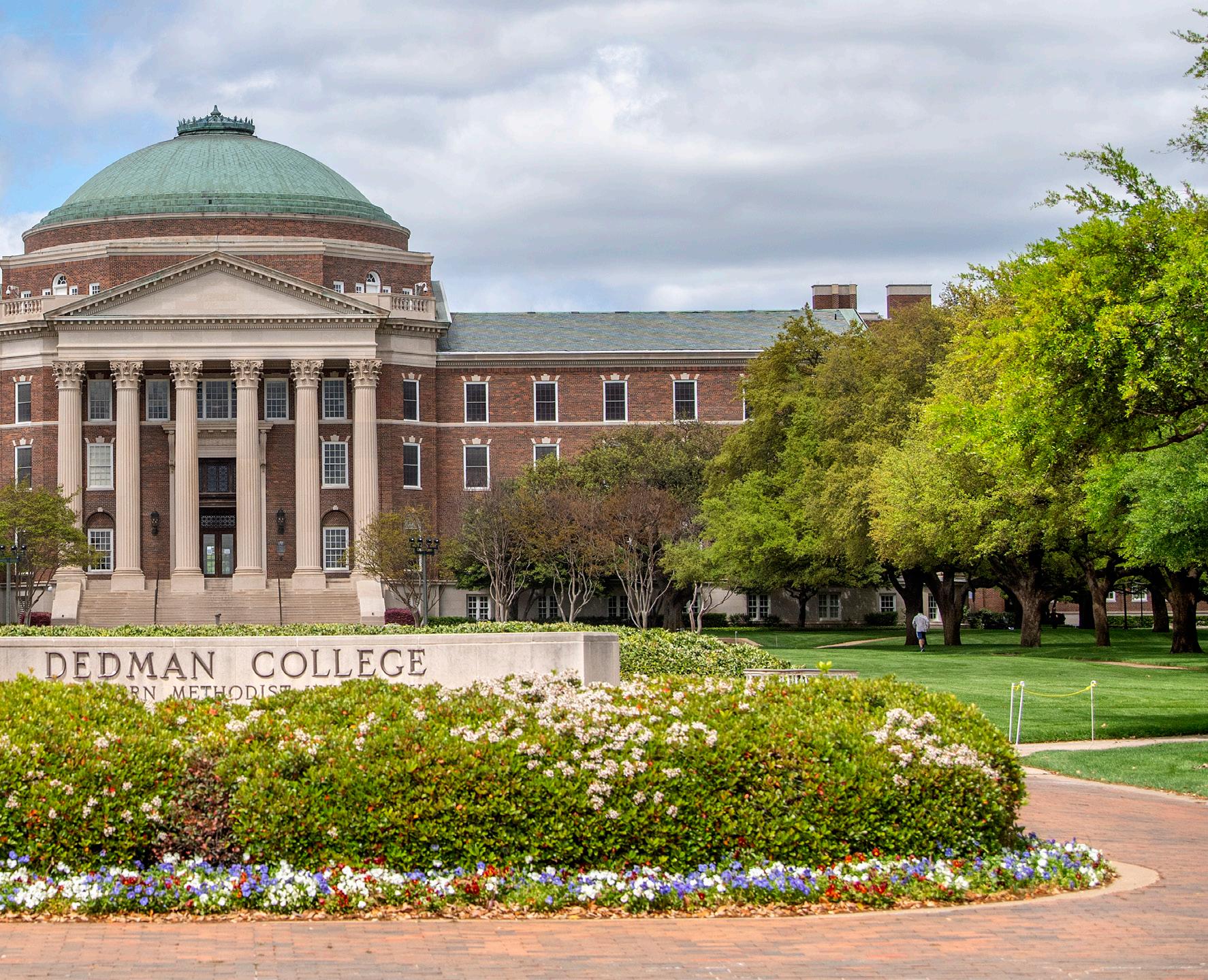
“I have to say how proud I am of the SMU community for remaining cognizant of the value of developing a culture of care.”

As students moved into their Residential Commons in August 2020, in the fifth month of a global pandemic, Dr. K.C. Mmeje extended an invitation to the new Chaplain and Minister to the University! This year was enveloped in all the uncertainty of COVID-19 and all the anticipation of a leadership transition. The year offered overwhelming challenges and abundant opportunities to try new things! The opportunity for innovation is a wonderful gift for a new Chaplain.
Faced with the challenge of getting to know students and understand campus culture without in person engagement, we seized the opportunity to convene a multi-religious group of Student Advisors. We invited chaplains and campus ministers, Student Affairs colleagues and faculty members to recommend students who are interested in religious life and who would offer feedback on the current offerings of the Office of the Chaplain and their perspectives on religious life on campus. We invited 18 students; 16 enthusiastically accepted the invitation! Students were undergraduate and graduate students representing four academic units and a variety of other campus organizations and activities. The group included students who identify with three different religious traditions (Christianity, Islam and Judaism) and five racial/ethnic identities.
Throughout the Spring semester, the group met twice a month to:

• Review and provide feedback on office programming, presence, and policies; and
• Brainstorm and communicate needs of the SMU student body that Religious Life is situated to address.
In addition, we asked Student Advisors to be ambassadors for the Office of the Chaplain and Religious Life (OCRL), sharing OCRL information in their spheres of influence across campus (Residential Commons, academic unit, co-curricular organizations). At the end of the semester, we talked about inter-religious dialogue, experienced one model of dialogue that builds religious literacy, and considered possibilities for nurturing inter-religious dialogue and multi-religious community building at SMU.
SMU is fortunate to have an array of strong Christian campus ministry organizations and thriving Hillel and Muslim Student Association chapters on campus. The Student Advisors are the first attempt (in recent history) to bring together students of different religious traditions for community building and developing religious literacy. Each meeting was energizing – to OCRL staff and to students alike. Everyone learned from one another and had the opportunity to share their tradition and beliefs. Being together regularly, raised our awareness of the religious diversity of our community and offered opportunities to build relationships that will shape these students and the ways in which they lead and learn across campus.
The Student Advisors’ perspective and feedback will shape what OCRL does and how OCRL communicates with students in the future. Students indicated a strong desire to continue to build community and learn with one another. In the coming year, we will offer new opportunities to gather as a multi-religious diverse group of students who will focus on increasing religious literacy and building a community that celebrates diverse religious values and puts those values in action through service in the world.
Reverend Lisa Garvin Chaplain and Minister to the University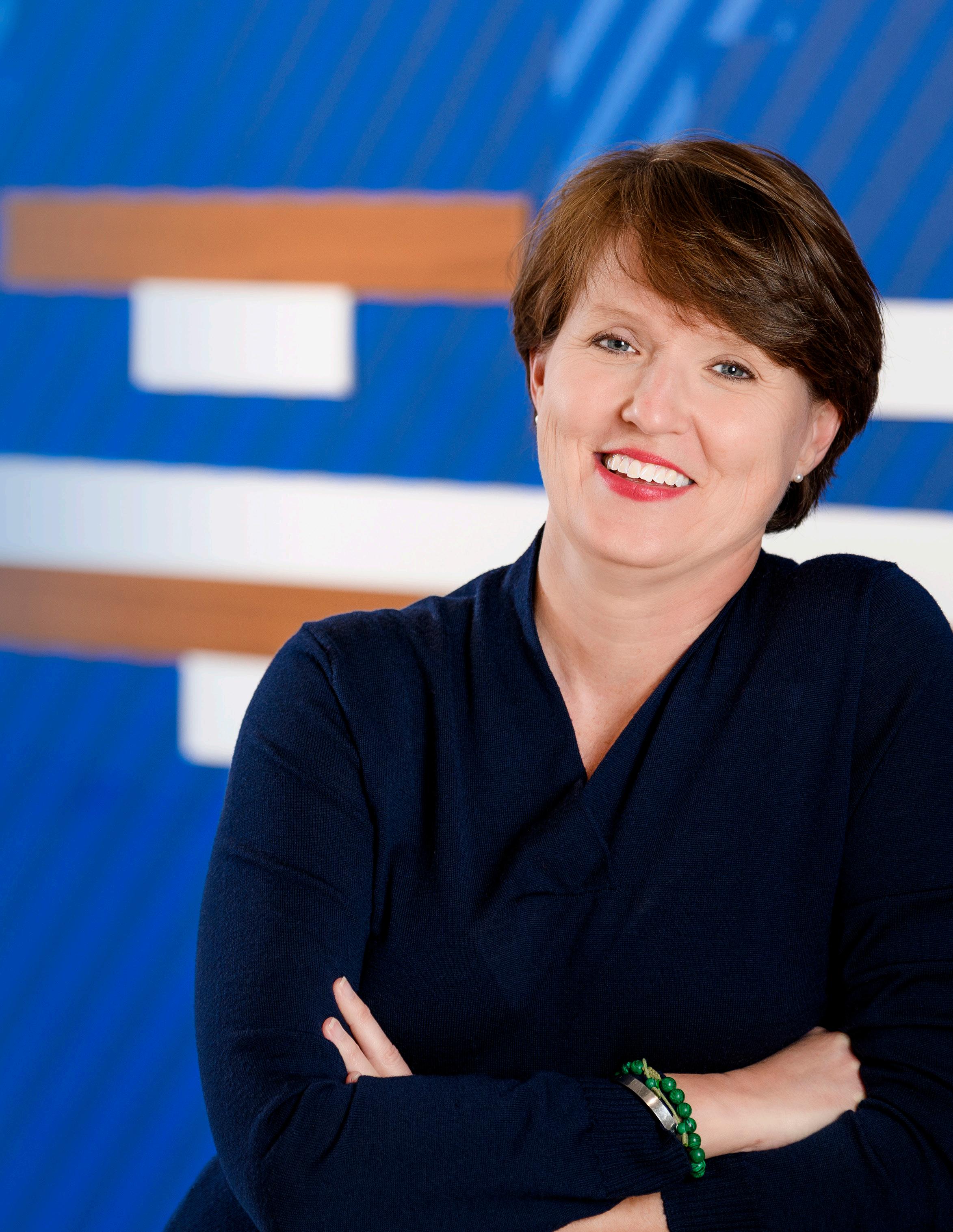
“The year offered overwhelming challenges and abundant opportunities to try new things! The opportunity for innovation is a wonderful gift for a new Chaplain.”
The unprecedented impact of the COVID-19 virus on the Hilltop led to complications in regular partnerships and caused transformational innovations. Reports from the Division Partnerships Steering Committee this year offer insights into the transformed landscape of academic, business and employer, community organization, and SMU partnerships led by the Division of Student Affairs.
An impressive 150 partnerships were led by the Division of Student Affairs this academic year, one of which is now connected to SMU in Four, the quality enhancement plan to improve undergraduate retention and graduation rates. Becca Umobong, Director for Academic Skill Development within the Student Academic Success Programs (SASP), partnered with Residence Life and Student Housing (RLSH) on the micro-assessment.
“The micro-assessment effort occurs around midterms in the fall and spring semesters. It asks students to self-report their academic performance,” says Umobong. Students who indicate they are struggling then have a member from RLSH or the SASP personally reach out and connect them to resources. Over the Fall and Spring semesters, the team was able to reach nearly 800 students who faced pandemic-related struggles. The team facilitated resource connections with academic counseling, counseling and psychological services, Caring Community Connections (CCC), and more. Umobong closed with, “this partnership seemed even more meaningful during a year like this one—many students expressed gratitude that staff reached out to them individually.”
The pandemic complicated the transformation to existing partnerships, 33 of which were paused due to COVID-19, 60 were reimagined, and six were discontinued. There were 51 partnerships with no changes this academic year. Blake Red Elk, Assistant Director of Student Experience, who oversees SMU’s socialization process for new students, discussed a major transformation with how SMU onboards new students to the Hilltop. “Delivering a virtual orientation was decided in 2019 for a summer 2021 launch. In response to COVID-19, the timeline was accelerated for students starting in fall 2020,” said Red Elk. Virtual orientation was deployed in the summer 2020 and updated with new information for summer 2021. This orientation experience, called the Campus Life modules, is a portion of the Office of the Student Experience’s three-step orientation process for new students.
2.9 Leverage the opportunities for community engagement in Dallas and North Texas by creating intentional experiences for students to learn about and connect to diverse populations.
3.2 Increase faculty engagement with student affairs departments to help inform evidencebased programming and align curricular and co-curricular learning experiences.
3.4 Increase strategic collaborations between student affairs and academic affairs including the academic deans, University Libraries, and support services within the Office of the Provost to provide more robust programs and services increasing retention.
3.5 Grow opportunities leveraging Dallas and North Texas as an offcampus laboratory for experiential learning to build experience increasing their marketability to employers.
3.8 Leverage opportunities for community engagement and student-support partnerships in Dallas and North Texas.
We all know this was a challenging year, and this was especially true for the Student Experience Steering Committee. Despite significant ground gained in the previous year, we ran into several roadblocks this year that prevented progress. The most significant challenge was the decision by the institution to move away from the plan to implement a required First Year Seminar (FYS) for all new students. Without the time FYS would have allowed for introducing the Learning Domains in a meaningful way, the goal of engaging students in an in-depth, interactive Comprehensive Student Experience - like the one we had been creating – would be impossible. The challenge this posed to our committee was not one we could strategize around on our own, so we were forced to pause progress until Divisional leadership could consider our options. We learned late at the end of the Spring 2021 semester that the Comprehensive Student Experience would need to be scaled back from our original vision to create a more attainable experience. The 2021-22 Student Experience Steering Committee will be able to utilize the work done previously to consider ways to rollout a scaled back version of the Comprehensive Student Experience.
Blake Red Elk further shared, “virtual orientation brings more flexibility and a customized experience. Transfer and international students have unique content within the online system with tailored material to support and maximize their college experience. A separate parent and family module provides information which is helpful in steering conversations between new students and their families. It is a different way of doing business, but this innovation is here to stay as it shapes the experience of future Mustangs.”
Transformations not only have occurred on campus but also with community and corporate partners. Dr. Crystal Clayton, Executive Director of the Hegi Family Career Development Center, reflected on the year and her team’s partnerships with employers. “This year’s 2021 employer recruitment is looking strong. Employers are actively hiring SMU students and posting increasing numbers of jobs on our SMU Handshake career services platform.” Clayton further stated that, “In order to transform our work with employers this year, we maintained all signature Hegi Center events. We accomplished this through shifting interactions via Zoom and greater utilization of Handshake. This shift allowed the Hegi Team to incorporate local and global business partners more strategically.” This pivoting helped create meaningful experiences for students and supported graduating students to find jobs in an uncertain time.
COVID-19 provided the Division of Student Affairs with the space to reflect on the programs and services offered to on-campus and remote students with the goal of ensuring every student had an opportunity to experience everything the Hilltop has to offer, despite being socially distant. As we resume to a more traditional campus experience this Fall, the Division Partnerships Committee hopes to strengthen and nurture partnerships which will positively impact the student experience at SMU.

1.1 Develop a framework for a comprehensive experience guiding students from orientation through graduation to increase retention and persistence.
2.1 Increase intentional opportunities within every Residential Commons, and across the division, for students to engage in topics of diversity, inclusion, equity, civility, personal responsibility, and cultural intelligence concepts throughout their experience.
2.2 Incorporate cultural intelligence and inclusive leadership concepts into all formal student leader training as well as staff development opportunities.
2.4 Create an interdisciplinary approach to cultural awareness through relationships with academic partners including the implementation of the Cultural Intelligence Initiative.
2.7 Establish a sequence of student experiences and learning opportunities to explore self-identity, engage across difference, and promote respect for all people.
Note: partnerships can be with more than one entity and was presented as a check all that apply.Graduate Assistants (GAs) are integral pieces of the Division of Student Affairs. The GA Experience is valuable both for the Division and for the graduate assistants, as it allows graduate students the opportunity to gain practical experience in higher education. GAs typically work twenty hours per week and assist their respective offices in programming and professional development opportunities. Many GAs are studying for careers in higher education, but the Division attracts a wide variety of graduate students from across campus. By connecting graduate students to assistantships, offices within the Division of Student Affairs provide meaningful work experiences that prepare students for the jobs and careers they will pursue once they graduate. Working in Student Affairs is highly collaborative, meaning graduate assistants get to see a broad spectrum of programs and events, while gaining and developing skills that will make them competitive in the job market.
Dr. Sondra Barringer, Assistant Professor in the Department of Educational Policy and Leadership, serves as the Graduate Assistant Coordinator for the department. On the Division of Student Affairs, Barringer said, “The Division of Student Affairs takes a number of steps to facilitate the professional growth of the graduate students working within it. They provide their graduate assistants with work experience that can help many of them advance their careers and professional development whether that is via work experience in their desired field or the development of transferable skills. In addition, the supervisors in the Division provide professional development opportunities for the students that further advance their development and that many of them find valuable.”
The pandemic certainly complicated the typical graduate assistant experience over the past year, but our GAs have adapted to the challenges accordingly, proving why they are the next generation of leaders in higher education.
“Something that surprised me about my Graduate assistant experience is how much I am able to learn about the field as a whole and not just my specific position. My supervisor is so great at helping show me all sides of student affairs.”
- Jessica Borne ‘22, Graduate Assistant in Residence Life and Student Housing, for Mary Hay Peyton Shuttles Commons, M.Ed. in Higher Education student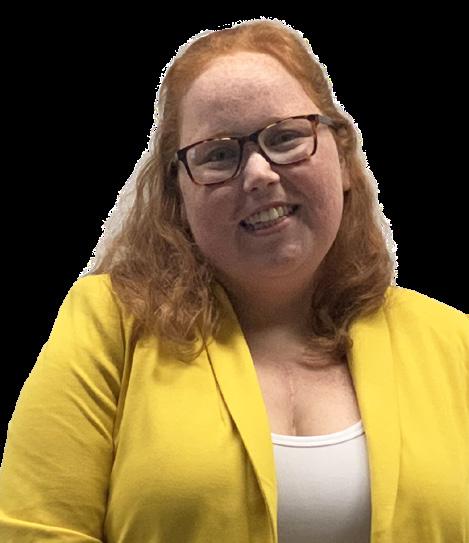
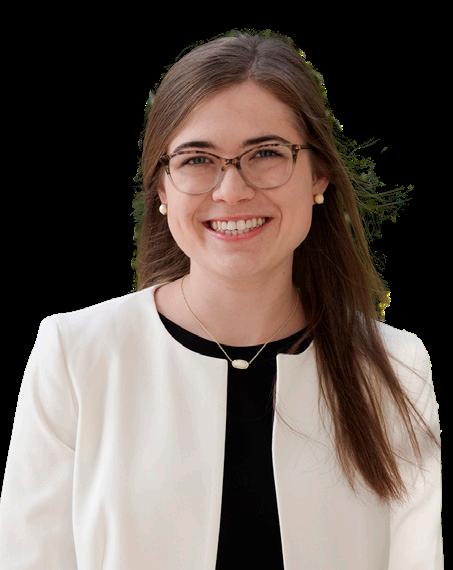
“My first year as a Graduate Assistant for the Women and LGBT Center was everything I wanted and more. I didn’t know what to expect doing the GA position virtually. However, working alongside Dr. Sidney Gardner virtually in Florida, I was able to grow, learn, connect with SMU from afar, and have a ton of fun. I am so excited for the coming year to be able to be a GA in person, on campus!”
- Colleen Collins ‘23, Graduate Assistant for the Women and LGBT Center, 2L, Dedman Law School“As a former undergraduate student of SMU, and a current graduate student, I was surprised and grateful for the above-and-beyond work that Student Affairs team members put into their roles. There is so much genuine and intentional care for students and it was awesome to be a part of the giving end of that instead of the receiving end.”
- Laura Bell, ’20, ’22, Graduate Assistant for Assessment, Research, and Planning in Residence Life and Student Housing, M. S. in Mechanical Engineering student
“What has surprised me the most about the past year would be how involved I was with my office. Coming into my role, I thought that GA’s would be glorified errand runners and insignificant, but the SCIE office really made me feel super involved and part of the team. I think that really shows the great culture of the Division of Student Affairs.”
“The most impactful experience I had was getting to serve in an on call capacity and respond to issues of student concern. As a Graduate Assistant in RLSH, I was valued and treated as a member of the team. In my role, I was provided opportunities that have prepared me for the next step in my career in Student Affairs.”
- Cody Dumas, ’21, Assistant Residential Community Director in Residence Life and Student Housing, Hillcrest Houses, M.Ed. in Higher Education student
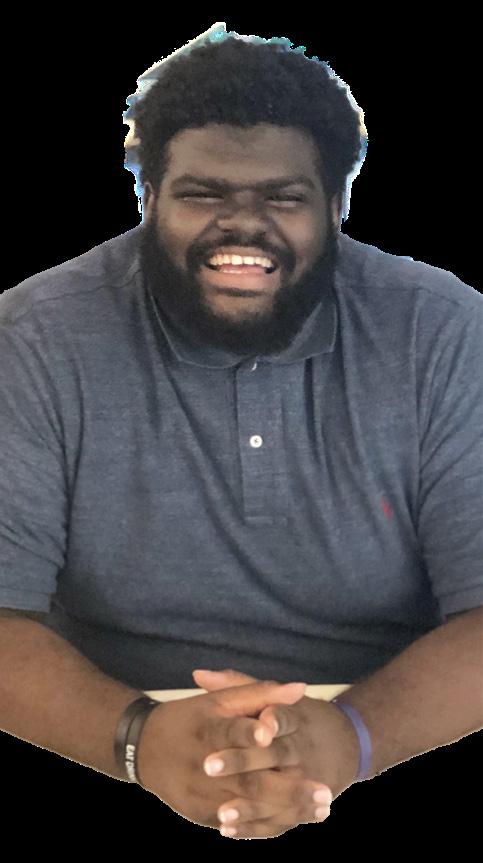
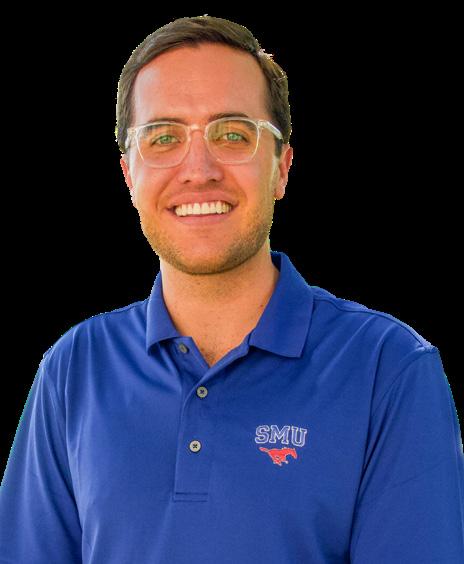
“In my first year as a GA, I was surprised by how much I loved working with my student leaders. From opening a new residential building, to all the amazing programs and events they put on, to watching them grow as individuals and leaders, they truly exceeded all my expectations and I’m so thankful I got the opportunity to work with them.”
- Kayley Carter, ’22, Assistant Residential Community Director in Residence Life and Student Housing, Airline Houses, M.Ed. in Higher Education student
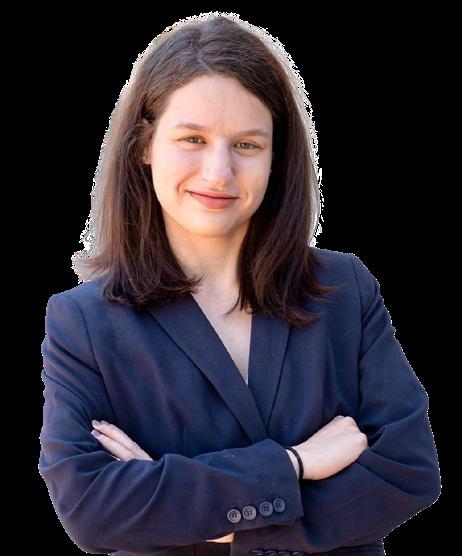
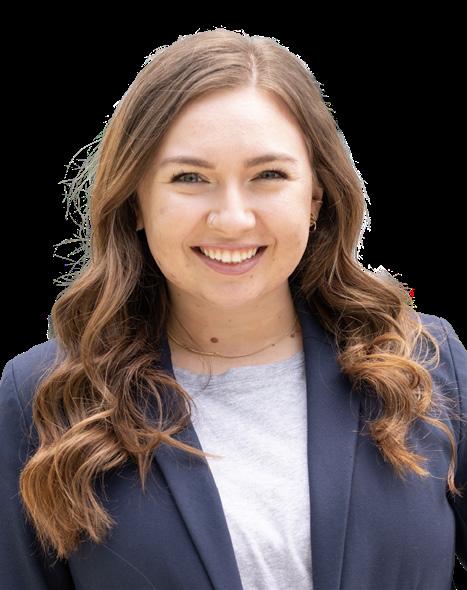
“The most surprising aspect of my GA experience has been both the ability for me to directly apply classroom materials and concepts to my assistantship and the incredible research opportunities that my role provides. Utilizing my academic skillset in a practical context has allowed me to envision what my career in higher education can look like long term, which excites me for the future.”
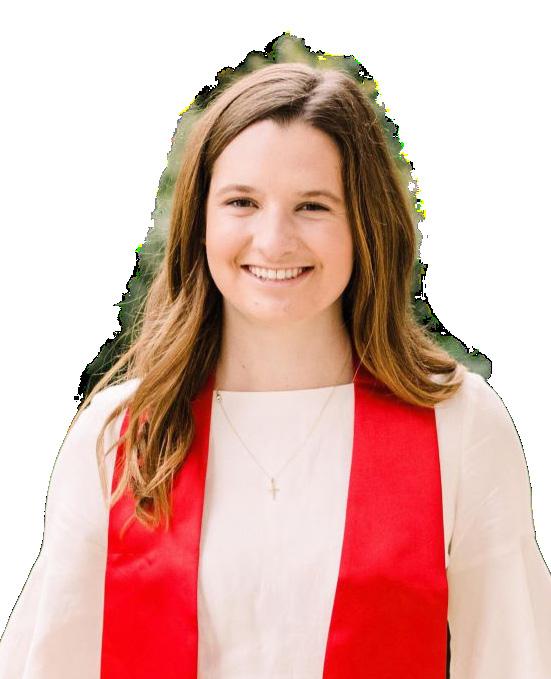 - Emily V. Rasch, ’22, Graduate Assistant for Student Affairs Administration, M.Ed. in Higher Education student
- Emily V. Rasch, ’22, Graduate Assistant for Student Affairs Administration, M.Ed. in Higher Education student
Despite the challenges faced with COVID-19 guidelines, Intramural Sports provided valuable experiences for students that helped to create lasting memories and a sense of community amidst a global pandemic.
456 456
UNIQUE PARTICIPANTS
FACTS 5
200

19 19 INDIVIDUAL / TEAM CHAMPIONS CROWNED
1,407
1,407 200 PARTICIPATIONS TEAMS
264 264 GAMES PLAYED
Lyon Hamill, a member of the theatre department, mentioned how the sense of community was strengthened through Intramural Sports: “The Intramural Box Soccer tournament was a great way to get off of our computers and bond with friends in a competitive atmosphere. For my team, we connected with people across all years as we represented the theatre department. We were appreciative that Intramurals gave us an outlet to meet in person in this tough year where our department is close with one another. Our team, SMUT Dawgs, has participated in Intramurals for many years and it was exciting for us to get our first championship!”
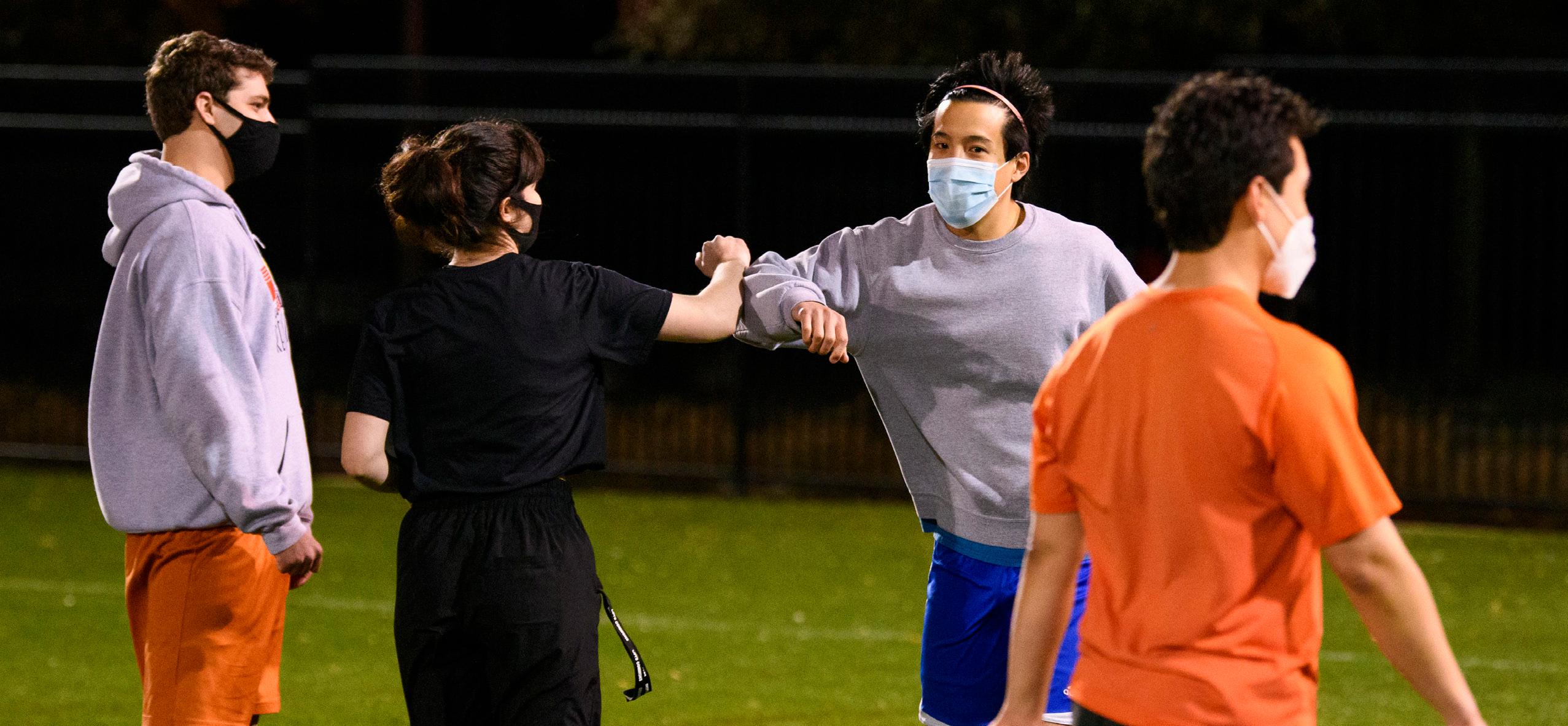
Jimmy Joe, an Intramural participant, expressed a similar sentiment, noting that, “The impact that SMU Intramurals has had is incredible. The friends that I have made have all been from my intramural teams. This program made it easier to meet new people and adjust to my new environment that I transferred into. Intramural sports at SMU has made it so much easier to enjoy sports and meet new friends.”
Ethan Tapp, Intramural Supervisor, reflected upon the challenges this year brought: One of the most difficult parts of navigating COVID in Intramurals was discovering what students wanted to participate in amid the uncertainty the pandemic brought. We weren’t sure whether they wanted to stick to strictly virtual competition, modified versions of sports, or regular competition. We also wanted to ensure that our sports that we offered followed the university’s COVID guidelines. While there were challenges, I enjoyed what this year gave us. I especially appreciated how much I was able to grow out of this year and work on my leadership and communication skills. Even though this year was difficult, it was equally rewarding, with the most rewarding part of this year was being able to witness the fun our participants had when they were finally able to enjoy real competition. The first time that happened was during our Rec Your Stress event where people were able to play sand volleyball against each other in a tournament. Witnessing the enjoyment from our participants when they competed against one another in person was an incredible feeling. One of my major takeaways from this year is that you can never be prepared for every single mishap. We must be able to think on our feet whenever necessary to make events and activities happen.
To learn more about Campus Recreation and Intramural Sports, visit www.smu.edu/recsports.
“This program made it easier to meet new people and adjust to my new environment that I transferred into.”
What you see may not be quite all of what you get when it comes to the Office of Student Conduct and Community Standards. Often the general perception of any student conduct office is that it’s only a place students go when a policy violation has occurred. However, the Office of Student Conduct and Community Standards (SCCS) here at SMU does so much more than just conduct meetings. Over the last few years, SCCS has been working to foster a positive and unique relationship with both students and campus partners alike. Whether it’s presentations, trainings, programming events, working with student organizations, or even just supporting and assisting with resources, SCCS has you covered.
The Student Conduct and Community Standards Office is housed on the second floor of the Hughes-Trigg Student Center in the Office of the Dean of Students (Suite 205). It is here where our staff work daily to educate and advocate for students during their time at SMU. Spanning from when a student first arrives on campus for orientation to when they walk across the commencement stage, SCCS is there every step of the way to make sure students have a positive, insightful, and productive college experience. The SCCS team is made up of Robert Braswell (Director), James Ramey (Assistant Director), and Jamie Baker (Coordinator) who together have a combined 30 years of student conduct experience. Each individual plays an integral role in helping to maintain campus and community standards as outlined in the Student Code of Conduct.
ROBERT BRASWELL Director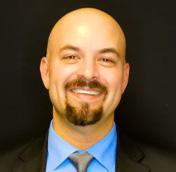
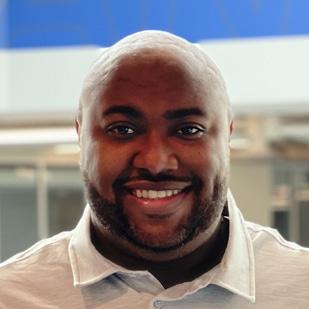 JAMES RAMEY Assistant Director JAMIE BAKER Coordinator
JAMES RAMEY Assistant Director JAMIE BAKER Coordinator
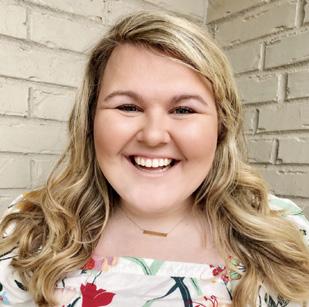
In addition to the SCCS office staff, the University Conduct Board, University Honor Council, and University Conduct Council also meet and work out of the SCCS office. While each uniquely distinct, what these three bodies hold in common is their collective role in providing a fair and equitable outcome during challenging conduct cases that require additional perspective.
The University Conduct Board (UCB) is a collective group of students, staff, and faculty members that hear cases that could result in separation from the institution along with more complex incidents or cases where the individual has had an active prior history. The case load for the UCB varies and is dependent upon the needs of SCCS in any given timeframe.
The University Honor Council is a student run organization that has student and faculty participation. There are two potential resolutions of an Honor Council violation. The first is that student members discuss the incident with the student who violated the Honor Code in a one-on-one meeting that is referred to as a faculty disposition. Students are allowed to have only one faculty disposition during their time at SMU and it is an option selected by the professor whose course the violation occurred within. Any further alleged violations will result in a more formal hearing with student and faculty participation.
The University Conduct Council is the appeal board that hears all case and hearing appeals for SCCS. They are a selected group of members that actively participate in UCB and Honor Council hearings and have experience with a variety of incidents and cases.
SMU students’ interactions with the Office of Student Conduct and Community Standards is hardly relegated to the conduct process alone. SCCS works hard to initiate contact with students via engaging programs that allows students to conduct with staff outside of an official capacity. In recent years there have been a few reoccurring programs and events that SCCS has done to meet and educate students including Popcorn Wednesdays, Cookies with Conduct, and Campus Cab. Popcorn Wednesdays is a weekly meet and greet as well as a recruitment tactic for the two councils and board. It allows SCCS to get to know students in a more informal setting and helps to demystify the Dean of Students suite. Cookies with Conduct has provided the interactive opportunity of educating students on academic integrity and providing study tips that assist in minimizing instances of plagiarism. Lastly, Campus Cab is an SMU shuttle service where a conduct staff member or representative would quiz students about the Student Code of Conduct and SMU fun facts while giving them a ride to class in a golfcart. Students were able to win prizes for correct answers. The purpose is to test students on their Hilltop knowledge while developing relationships with faculty, staff, and peers. While a lot of this type of programming had to take a pause during the 2020-21 school year due to the pandemic, we are excited to restart our more interactive programming while creating new events and opportunities as well.
...tracked over 1,000 student points of contact through traditional hearings, presentations, and outreach


..provided a variety of 60 pathway options to help students focus on their wellbeing while restoring and gaining perspective of their actions
...worked with the approximately 50 students, faculty, and staff members that make up the Honor Council and University Conduct Board


There are many resources and programs in the Hegi Family Career Development Center that excite me due to the important experiential lessons they teach students about career and leadership development. These programs include the Hegi Career Leaders Program, Foundations of Career Development online career course, the Career Development Ambassadors organization, and various workshops and speaker series. One lesser-known program, the SMU Board Fellows Program, has served as a highlight of my work this year. This year we have significantly started to see the fruits of relationships developing from students committed to the Board Fellows experience, and the great collaborative connections that can be built as a result of motivated student engagement in the Dallas community.
The SMU Board Fellows Program was established in 2018 as a collaboration between the Hegi Family Career Development Center and the Office of Social Change and Intercultural Engagement. SMU student Board Fellows serve as non-voting members on nonprofit boards in the Dallas metropolitan area. Organization boards hosting SMU students this year include: Cancer Support Community North Texas, Junior Achievement of Dallas, Inc., Kids-U, Promise House, Texas Ramp Project, Vogel Alcove, and the Wilkinson Center.
Students involved in the Board Fellows Program are expected to attend board meetings and participate as non-voting members for a nonprofit for a full calendar year, as well as engage in regular communication with board mentors and organization staff. Additionally, they are expected to get involved with a board-related committee and participate in quarterly round table meetings led by the Hegi Family Career Development Center and the Office for Social Change and Intercultural Engagement. Benefits of involvement in the program provide professional and leadership development opportunities, real work environments to further develop professional and communication skills, integrating information learned in the classroom to real work applications, and instilling a passion for community engagement and involvement.
Nonprofit organizations also benefit from participation by gaining access to talented emerging leaders with fresh and innovative ideas. As Garner McNett, current Texas Ramp Project (TRP) Board President, says of his organization’s involvement in the program, “We need young, brilliant people to strengthen our organization…The impact [of the Board Fellows Program] has been extraordinary.” Garner goes on to say that student Board Fellows involved with TRP improved the way the organization approached donor relations, volunteerism, and community engagement and that “we couldn’t have accomplished any of this without [our Board Fellows].”
The SMU Board Fellows Program is a win for everyone involved. The participating
This year we have significantly started to see the fruits of relationships developing from students committed to the Board Fellows experience, and the great collaborative connections that can be built as a result of motivated student engagement in the Dallas community.
students and nonprofit organizations, as well as SMU, gain valuable connections and opportunities from these relationships, as students are simultaneously granted the opportunity to further the community engagement missions of nonprofit organizations and SMU. For these reasons, I am proud to be a founding staff member of the SMU Board Fellows Program and happy to have this program housed in the Hegi Family Career Development Center. I am excited about the program’s future, and looking forward to how these relationships with Dallas nonprofits continue to grow and impact students’ professional and career development.
Crystal Clayton Executive Director Hegi
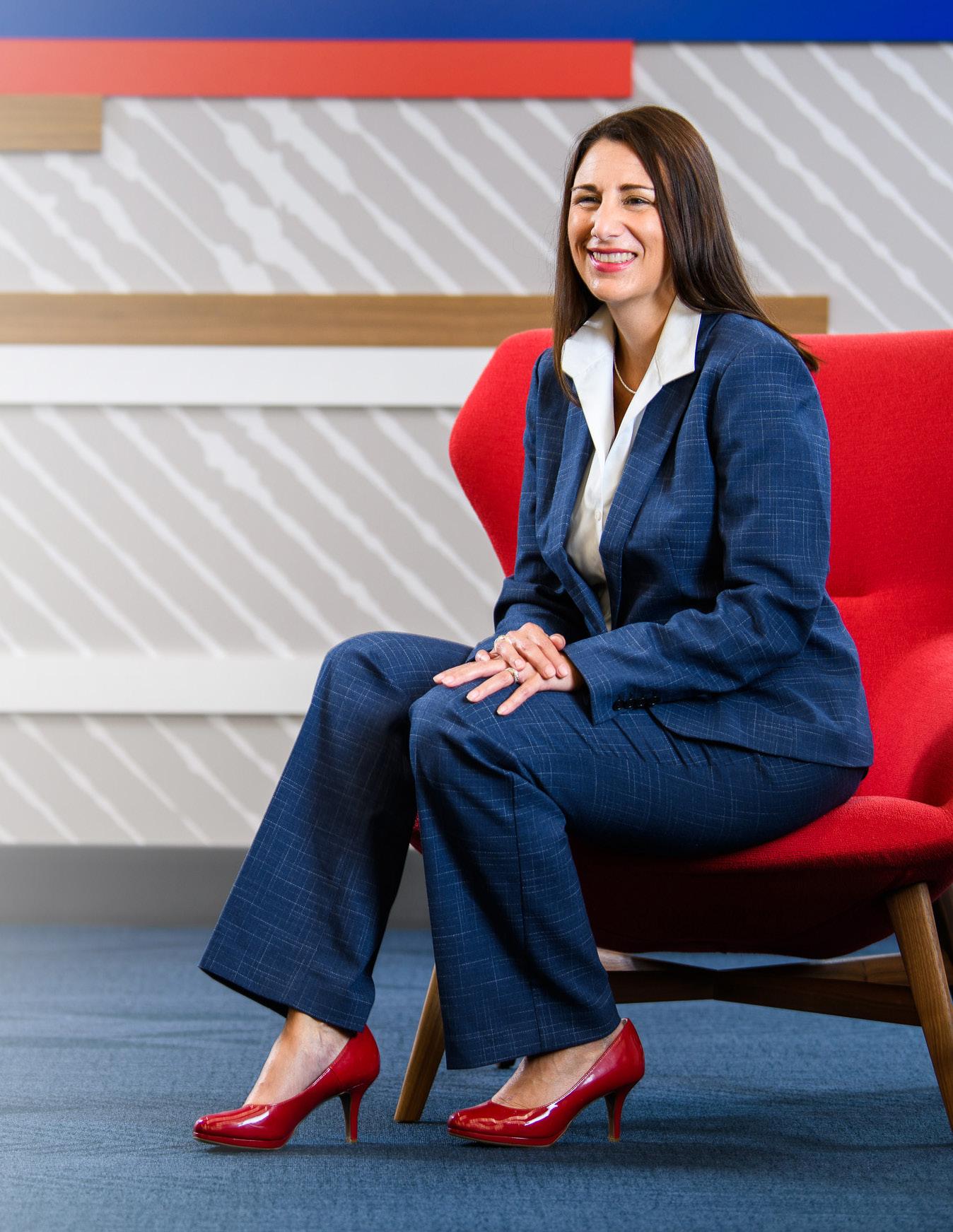 Dr.
Family Career Development Center
Dr.
Family Career Development Center
TheResident Assistant (RA) position is one of the most highly sought-after leadership opportunities at SMU. This year, the RAs completely reimagined how to connect with students and build a sense of belonging and community. Each of the 93 RAs brought their unique skills and personalities to the job, but their collective creativity, affability, and warmth worked to overcome the year’s challenges in the hopes of making campus feel like home for all residential students.
RISING SENIOR MATH & CHEMISTRY
HACIENDA HEIGHTS, CA
Kaitlyn has mastered the foundational responsibility of an RA, which is to develop and facilitate relationships amongst the residents of Virginia-Snider Commons. Even with a global pandemic standing in the way, Kaitlyn has been able to effortlessly navigate building rapport with her peers and effectively acclimate residents to the larger SMU campus community. As Kaitlyn engages with students, she always works to verbally express their name and poses substantial questions that are unique to the person and generates quality conversations. Many of Kaitlyn’s residents talk about how caring and supportive Kaitlyn is to them and how she helps them feel supported and cared for as they navigate life on campus. The influence Kaitlyn has had on the positive community built within VS this year is immense.
Kaitlyn shared about her RA experience, “Through small things like taking time to talk to residents and encouraging them to get involved, RAs can set the tone for a positive and welcoming atmosphere. This lesson has also carried into other leadership positions for me, which has further empowered me to be someone who is kind to and cares for all people.”
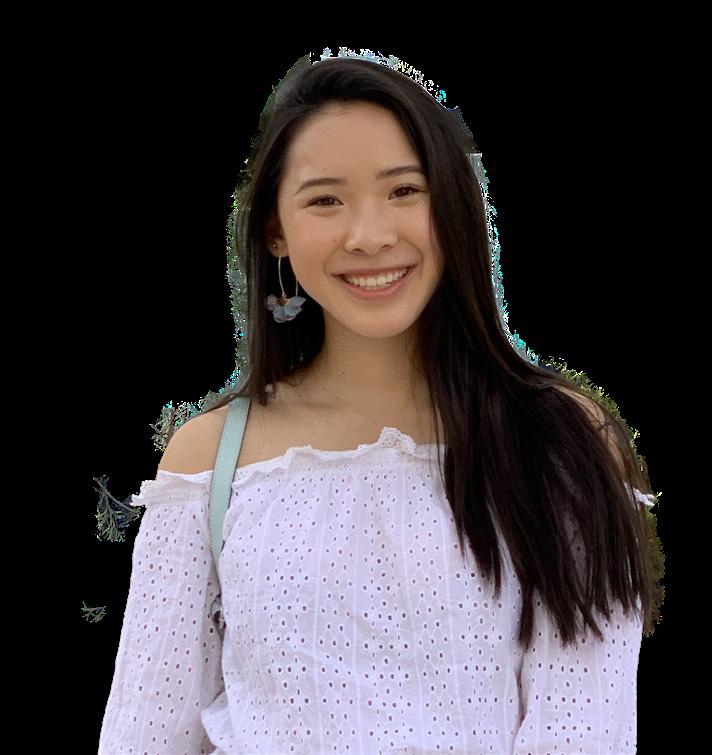
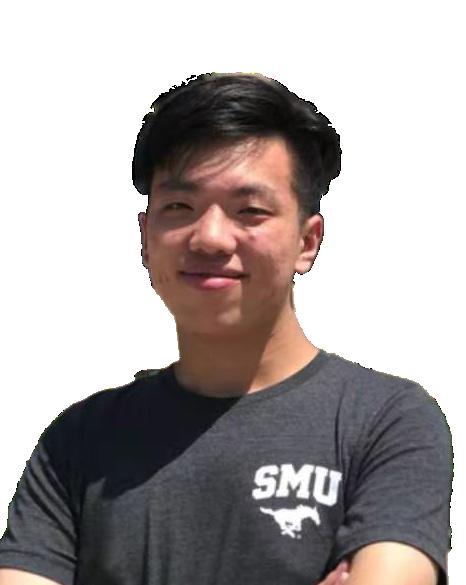
GRADUATING SENIOR STATISTICAL SCIENCE, ENGLISH WITH CREATIVE WRITING, & PSYCHOLOGY
SHANGHAI, CHINA
Despite a global pandemic, a heavy course load, and applying for graduate PhD programs, Moore RA Kevin Wang shined. Kevin continued to meet his residents, assess their needs, and create a wide range of programs and opportunities that facilitated a strong Upper Division Housing (UDH) community. Kevin hosted a Covid friendly drive-in movie on campus so residents could eat and drink in their car while enjoying a movie outside with friends. He transformed the UDH cooking crew into a raw ingredient delivery system and highlighted various faculty, staff, and students cooking through social media. Finally, he facilitated an online game through Slack that consisted of daily challenges and eliminations (similar to Big Brother). Kevin’s exceptional RA work was recognized this year when he won the Dr. James E. Caswell Award at the Hilltop Excellence Awards which demonstrated his service to RLSH and the SMU community.
Kevin shared about his RA experience, “Being an RA has given me so many opportunities that I would never have gotten without it. The friendships I have made, the interactions I had with residents, and the leadership opportunities that allowed me to help build a unique UDH experience for everyone have defined my Junior and Senior year at SMU. I am truly grateful for my colleagues and the leadership team at large for fostering such a supportive and creative team.”
Even with the challenges this past year brought, McElvaney RA Kayla Underwood remained a bubble of positive energy and was determined to help students have a great year. Kayla is passionate about connecting students to their community, to campus, and to one another. Her Residential Community Director, Maya Reeves, shares that Kayla does this by getting to know all her residents, encouraging them to get involved in Commons Council, and by working with her fellow RA teammates to host fun programs such as Pi(e) Day. Kayla also works to help her residents get connected to an organization they are interested in. She enjoys the role so much that she serves as an RA Ambassador, recruiting future rockstar RAs to the role. Beyond her RA involvement, Kayla is a tour guide, where she helps to connect potential future Mustangs to campus. When she’s not busy with academics and the RA role, Kayla enjoys trying new food and restaurants in the Dallas-Fort Worth area, exercising, and crafting, including creating stickers for her iPad.
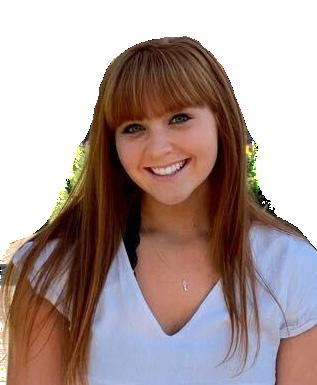
Kayla shares about her RA experience, “As an incoming third-year Resident Assistant in McElvaney Commons, my experience as an RA has greatly impacted my time at SMU. I have been able to connect with a diverse group of students that have caused me to think openly and encouraged me to embrace my role as an influential leader in the community. Using this platform to improve the experiences of McElvaney residents has been extremely fulfilling for me.”
In her role as an RA, Abena has been able to effectively balance relationship building, administrative work, and policy enforcement. She has excellent relationships with her residents and has gained their respect. They trust Abena to be fair and kind and to have their best interests at heart. Abena has spent a considerable amount of time this year forming deep relationships with her fellow RAs. This bond, led in large part by Abena, has helped the team create a strong support system for one another and provide a better experience for our residents. Abena brings the same commitment to inclusion and equity to her interactions with Crum Commons residents.
During the pandemic, Abena was calm and collected and truly rose to the occasion where leadership was concerned. She led by example and always displayed a level of positivity mixed with optimism. She was able to support her residents and her peers despite her own personal experiences and created an environment that was inclusive and trusting. Abena has always found the strength and courage to persist and this has set her apart from her peers in many ways. She is confident in herself and in her role and not afraid to lean into her own vulnerability. This level of maturity in her leadership makes her an outstanding student leader within her community.
Abena shares about her RA experience, “The RA position has pushed me out of my comfort zone for the better. I have been able to serve as a pillar within my community and curate everlasting relationships with my residents and co-workers.”
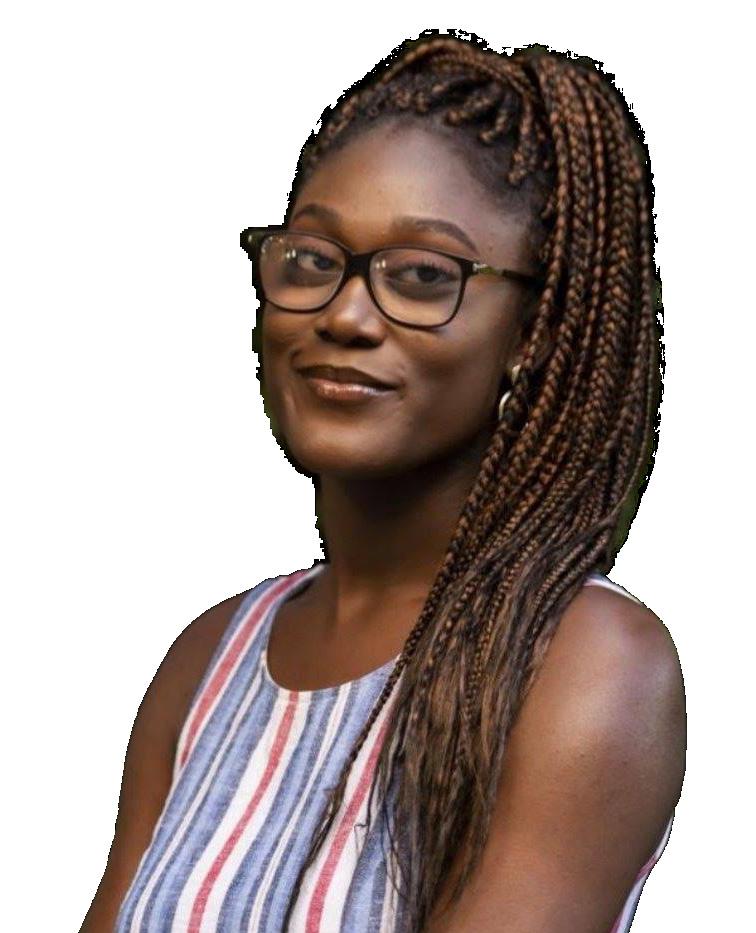
RISING SENIOR SPORTS MANAGEMENT VERONA, WI
RISING SENIOR HEALTH AND SOCIETY, HUMAN RIGHTS & SOCIOLOGY WYLIE, TX

Thesocial and political climate over the course of the last year has been tense as race and racism have been at the forefront of the nation. Over the last year, the Division has worked to provide development opportunities for our staff that are centered around equity. These conversations were draining, challenging, and complicated. Because of the conversations, we grew stronger as a Division to actively support each other and our students. These initiatives opened the door for conversations surrounding racial and social equity. Although these equity-related conversations during this year opened the door for other discussions, there is still so much more we can learn and much more we can do.
Student Engagement and Success hosted the first 30-Day Project centered around Anti-Racism in summer 2020. During the month of July, participants read White Fragility. Every day during the month, participants engaged with educational initiatives like articles, journals, podcasts, videos, and movies. Each week’s resources centered around a theme including: Why anti-racism; Racism in Higher Education; Police Brutality; and culminated in a discussion on white fragility – both the topic and the book. Each day’s resources ranged from engaging in content for a few minutes to watching a full-length movie. Participants engaged in discussions a few hours per week in addition to a 90-minute lunch conversation. Throughout this whole experience, facilitators engaged participants in a Slack back-channel to discuss the topics and engage more fully with each other.
The second of the 30-day projects launched this year focused on the LGBTQ+ community and was open to the entire Division. This 30-day project was intentionally offered during LGBTQ+ History Month with the goal of broadening participant awareness of gender and sexuality. The goal was to broaden participants’ understanding of LGBTQ+ beyond just Gay and Lesbian identities. There were over thirty active participants in the project who explored weekly themes such as: LGBTQ 101, Gender/gender identity/ Sexual orientation, LGBTQ+ in higher education, and Intersectionality. The LGBT+ 30-day project was focused exclusively on staff and intentionally engaged participants with varying levels of familiarity and knowledge of LGBTQ+ identities and communities. Through the project, participants were also encouraged to attend the regular Thursday evening sessions of the LGBTQ Symposium that were hosted by the Women and LGBT Center. This created a unique opportunity for participants to not only learn from one another, but also to hear from students, alumni, local LGBTQ community members, and national LGBTQ speakers. This project successfully created a unique space where participants could engage in immersive learning through workshops, guided conversations, speakers, and self-paced exploration of topics related to LGBTQ+ people.
Throughout the months of June and July 2020, Residence Life and Student Housing (RLSH) held various conversations in a lunch and learn format to discuss current political and social events regarding the Black Lives Matter Movement and the elevated awareness of racial injustice and inequity in the United States. The unit had these conversations for two reasons. One was to learn about racial injustice issues, and how those issues impact staff as people and work they do at an institution of higher learning. On the other hand, RLSH wanted to understand how to best support students of color, peers of color, and all SMU community members who have a marginalized or underrepresented identity.
The first conversation was mainly a space to process and emote about the murder of George Floyd. A goal of this space was to provide the opportunity to come together as people, not coworkers, and to further understand how this moment impacts staff as people and their work. The conversation was difficult as people processed this horrible act of violence and those that came before it. The space felt tense at first, but as the conversation continued those in attendance felt more comfortable sharing, and more importantly, listening to one another and allowing each other space to authentically share.
This led to further sessions where participants watched "White Fragility," a lecture by Dr. Robin DiAngelo. Coupled with the lecture, this conversation was structured and led to a difficult yet fruitful conversation. Staff reported feeling comfortable to share their thoughts candidly, and that seeing peers do the same allowed for vulnerability, creating a space to learn and grow as individuals and as a department. These sessions culminated with an annual retreat in July, where plans were developed to actively incorporate what was learned and discussed into their day-to-day work and departmental values and operations.

In celebration of Women’s History Month, the Hegi Family Career Development Center presented the Diverse Women in the Workforce Panel on Thursday, March 25, 2021. Done in collaboration with the Dedman College of Humanities and Sciences and the Women and LGBT Center, the discussion centered around challenges women face in workplace leadership, defining career success, work-life integration, and strategies for effectively elevating women's voices in the professional setting.
This event was originally planned to only include students, but evolved to eventually include SMU staff through collaborative promotion between event coordinators and both the SMU Women’s Group and SMU Staff Association (SMUSA). Through the outpouring of staff support for this event, the panel became a popular session for professional teams across campus to utilize in Diversity, Equity, and Inclusion training efforts. After the event, multiple offices even requested the recording of the session to use in their ongoing professional team development.
As SMU continues in its efforts to enhance equity-centered initiatives that are rooted in justice, the Division of Student Affairs has show that it is ready, poised, and willing to engage in the difficult conversations that are required to enact change. Planning for continued equity and social justice efforts is underway in perparation for the coming year and the Division remains committed to meaningfully supporting traditionally marginalized groups of students find their passion, vision, and voice on campus.
Acrossreligious traditions, communal gatherings and rituals foster a sense of belonging and form faithful adherents. Throughout the University’s history, chaplains have offered Christian worship to nurture the hearts and minds of students. While the location and style has changed over time, the University’s commitment remains the same: to foster a sense of belonging through communal religious practices. Today, the Office of the Chaplain and Religious Life (OCRL) seeks to provide a sense of belonging for SMU’s religiously diverse community.
OCRL strives to create an inclusive community celebrating religious diversity. Gathering for religious practices is central to strengthening identity; how and when to gather is different for each tradition. To understand the needs of religious communities active on campus, OCRL convened five focus groups to offer their perspective:
• Is it important to you that religious practices happen on campus? Why or why not?
• What facilitates your participation?
• What is essential for your religious practices?
Focus groups were tradition-specific and participants responded to questions that were relevant to their primary communal practices.
• Jumm’ah Prayer: Muslim students
• Mass: Catholic students
• Shabbat: Jewish Students
• Wednesday Worship: Protestant students and campus ministers
This assessment focused on existing religious communities on campus and does not reflect the needs and practices of all traditions represented on campus. In the future, we are eager to engage Hindu, Buddhist, and students of other religious traditions to identify needs and ways OCRL can support additional communities.

Christian, Jewish and Muslim communities on campus are vibrant. An increasingly diverse student body brings new religious diversity and the opportunity to expand religious life on The Hilltop.
In addition to OCRL’s weekly “Wednesday Worship”, twenty Christian campus ministry organizations offer worship opportunities open to all members of the SMU community. Many students worship with their campus ministry community and in local churches to connect with friends and other opportunities for spiritual growth. Christian students desire opportunities that bring together campus Christian groups as an expression of Christian unity.
Muslims around the world gather as a community around 2pm on Fridays. Since the closest mosque to SMU is more than 5 miles away, on campus Jumm’ah Prayer is critical for fulfilling religious obligations and connecting with a community of faith.
Jewish students at SMU gather monthly for a Shabbat meal. In the Spring of 2021, SMU Dining provided fresh challah and kosher grape juice, as well as space in Umphrey Lee Dining Hall for the Shabbat meal. For religious holiday services, such a Rosh Hannah and Yom Kippur, SMU students enjoy being with family in the DFW Metroplex or being welcomed guests at local synagogues.
The strongest theme across the focus groups was the sense of belonging that religious communities offer. More than the ritual itself, the opportunity to gather on campus provides a strong sense of belonging for all students.
Each group also appreciated accessibility, particularly for students without transportation or traditions that are not present near campus. In addition, a desire for space was shared by all.
Being asked to be a part of the OCRL Focus Group communicated both OCRL’s and the Division of Student Affairs’ desire to support and build relationships with campus ministries at SMU. I found our discussions energizing. The focus groups felt like a great way to share the impact that campus ministries have on student life at SMU. – Leanne Dang (Catholic Student Association)
This experience showed me that the Chaplain’s office cares about my opinions! I love talking about my faith, so it was really fun and exciting!Carlie Lara (YoungLife)
I felt heard and noticed, and that the chaplains are genuinely going to take our words seriously. They would try their best to help us with our needs and that also surprised me - their true care and sense of responsibility to all religions. - Lior
Kremer (Hillel)
“TO HAVE CONNECTION WITH OTHER STUDENTS –COMMUNAL ASPECT OF FAITH IS VERY IMPORTANT”
– JEWISH STUDENT
“The ability to have religious activities on campus sponsored by school is integral”
– PROTESTANT CAMPUS MINISTER
“It is nice to participate with a community that understand you being on campus.”
– MUSLIM STUDENT
“I’VE FOUND PEOPLE I WANT TO BE FRIENDS WITH AND GROW WITH.”
- PROTESTANT STUDENT
“Mass and the Catholic Center was a big factor in my college decision and has strongly influenced my college experience.”
– CATHOLIC STUDENT
The Division of Student Affairs creates and supports a robust student experience and forges strategic partnerships to best serve the entire SMU community. As educators and scholar-practitioners, we create purposeful learning and leadership opportunities for students to clarify and develop their knowledge, values, skills, and identitieschallenging each to become a world changer.

